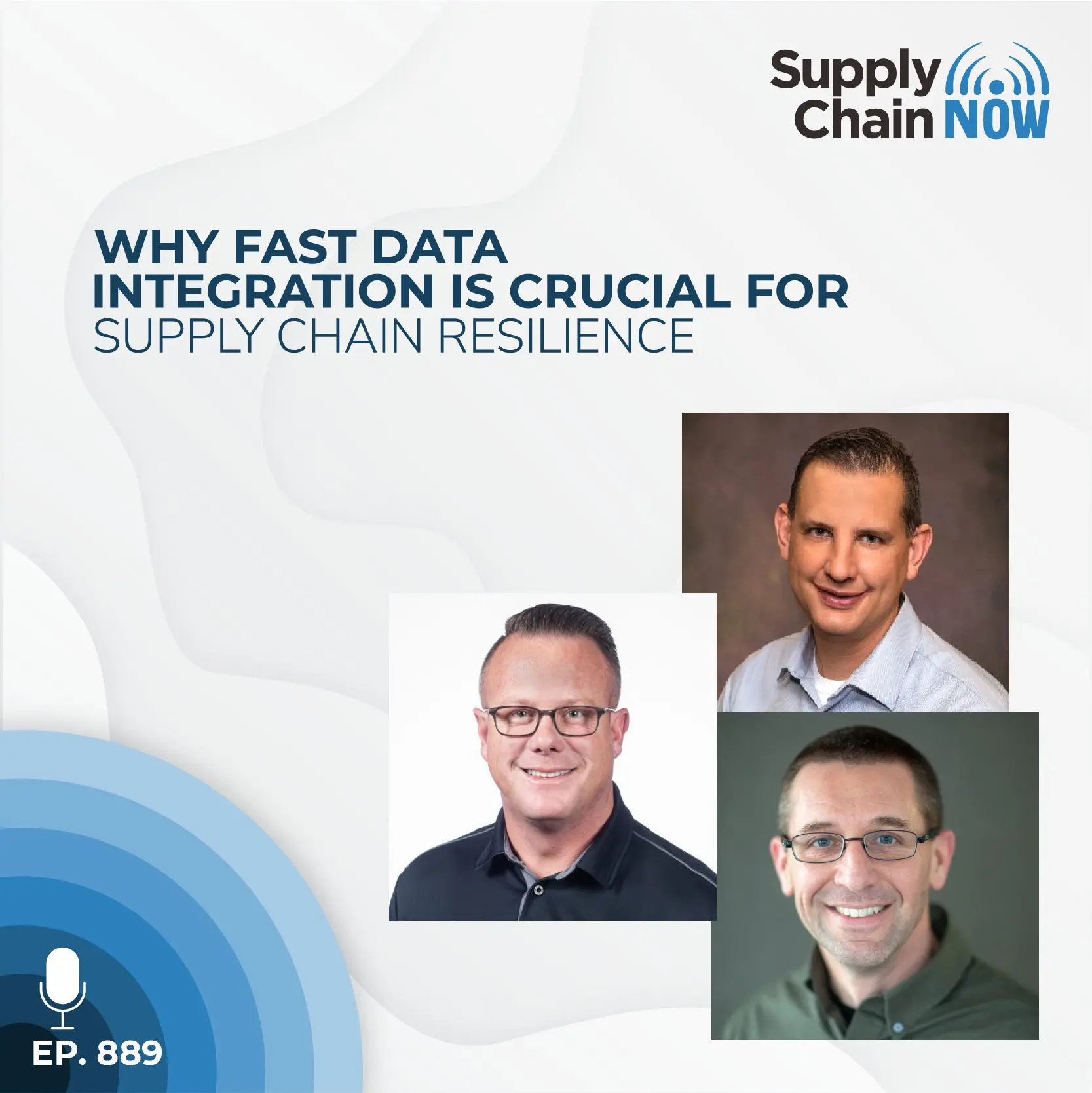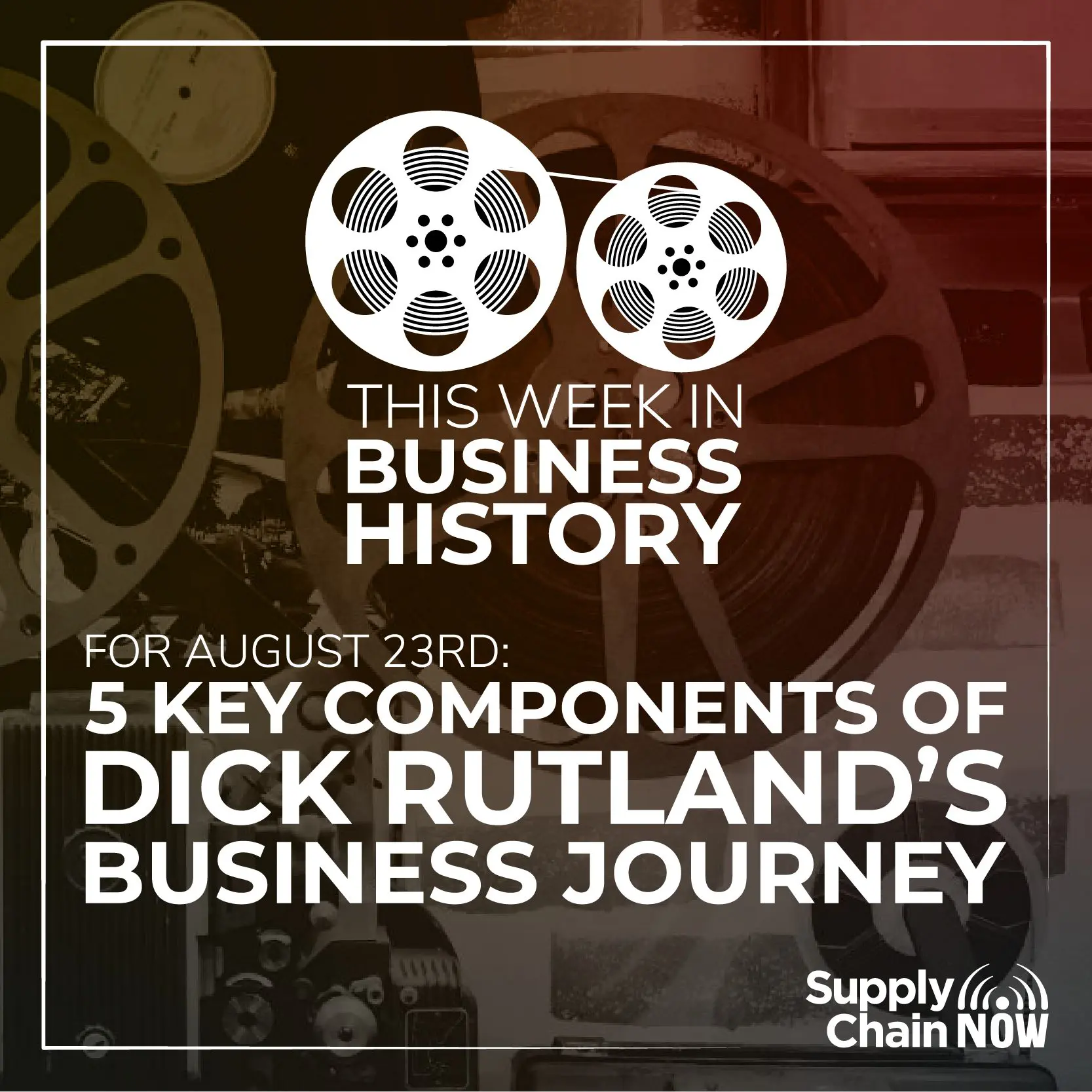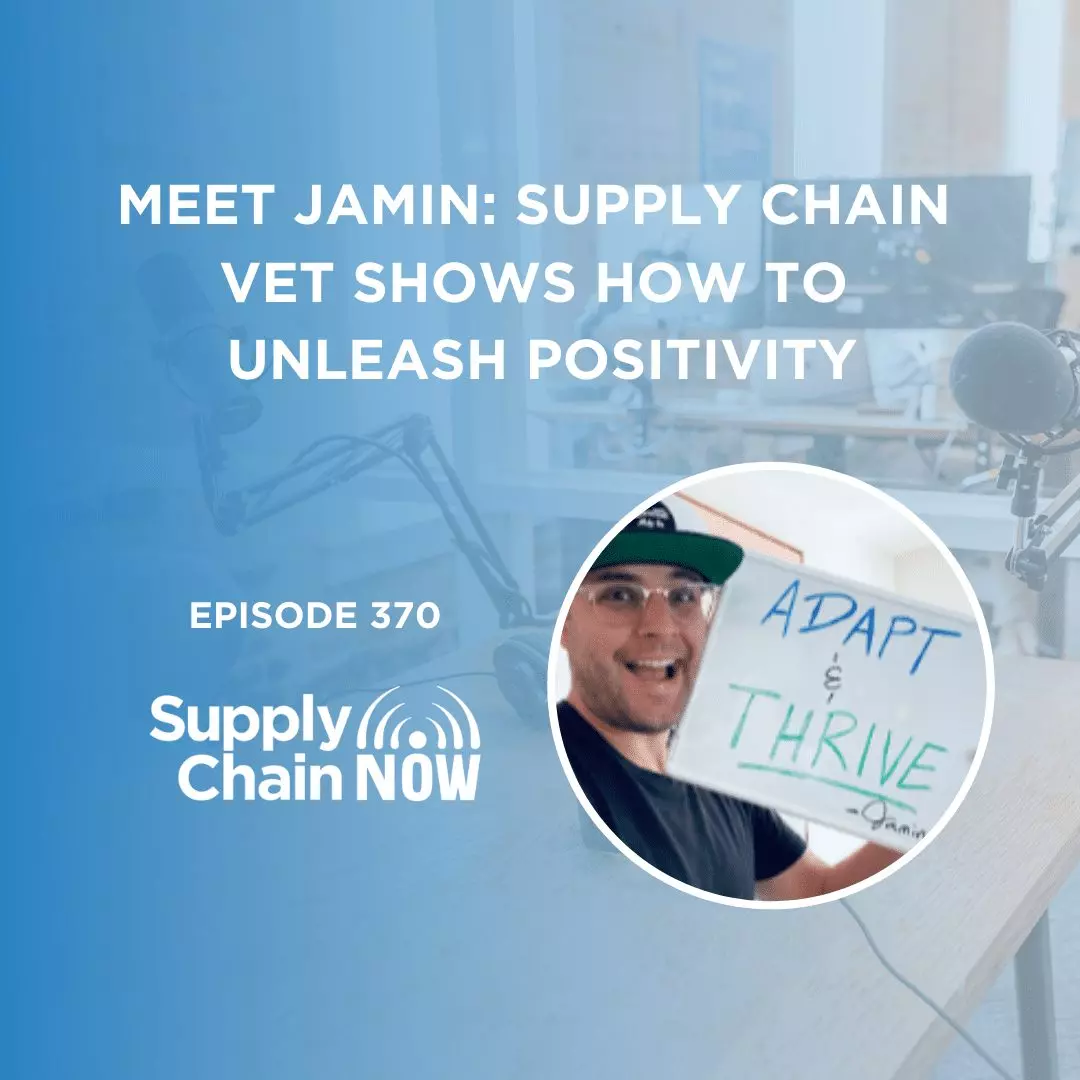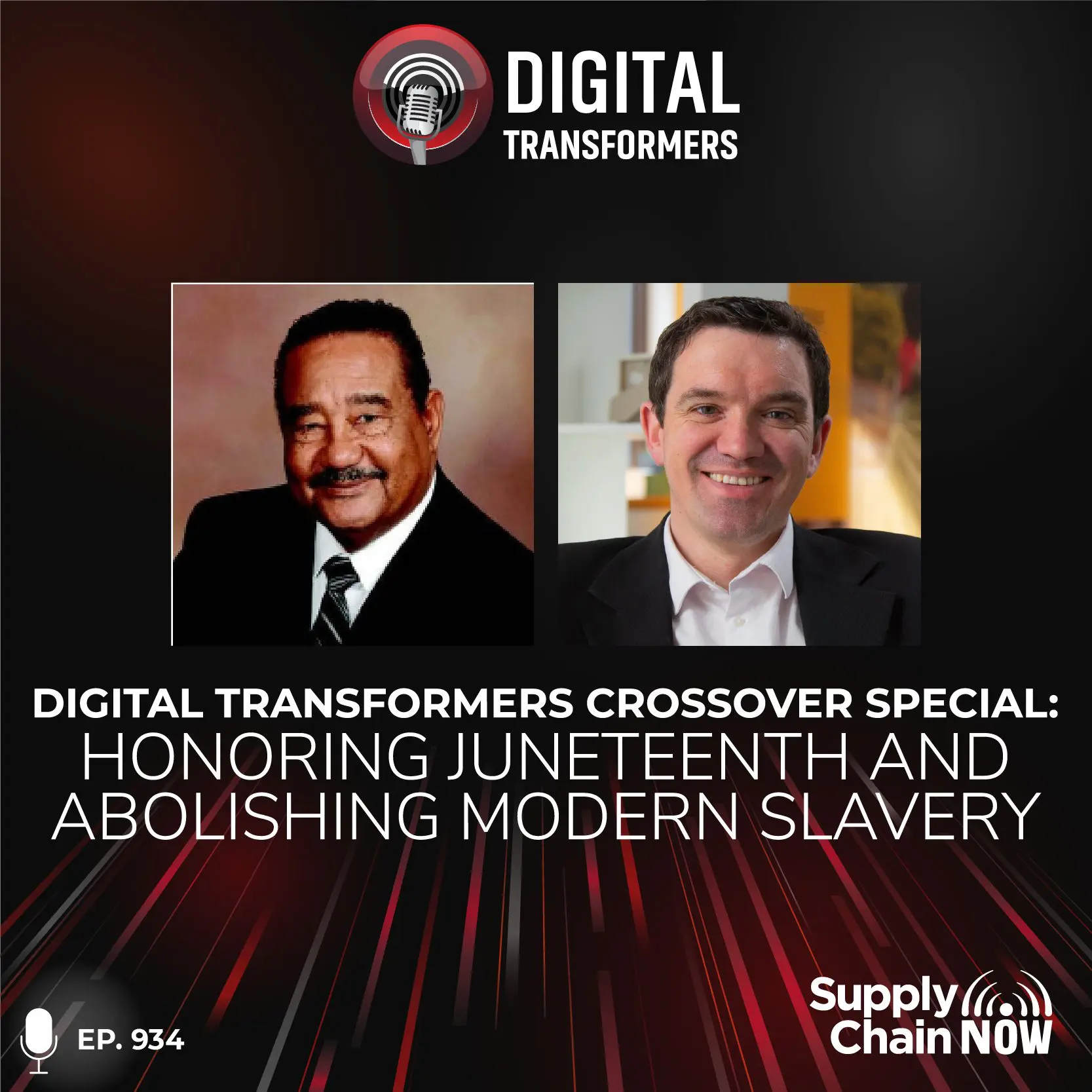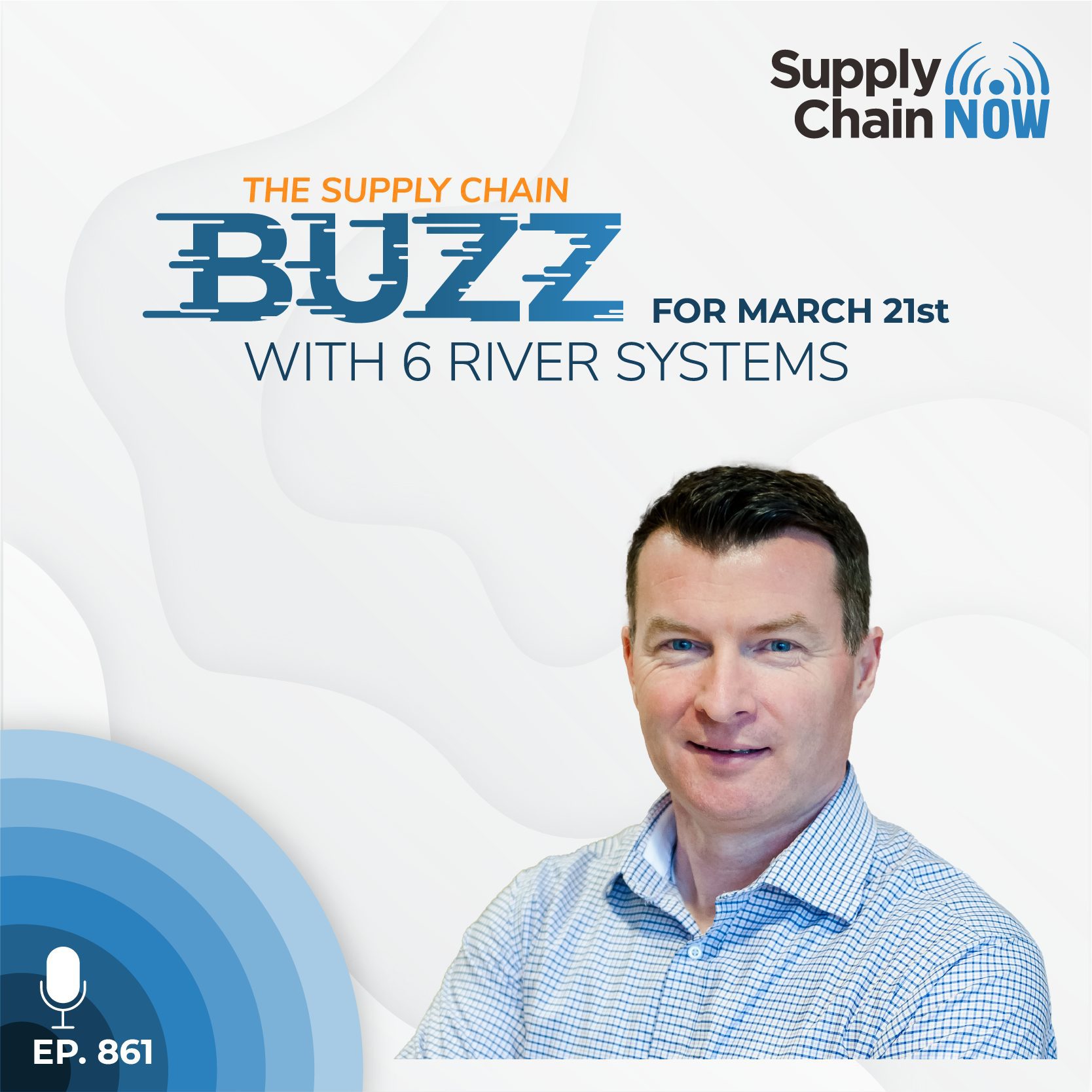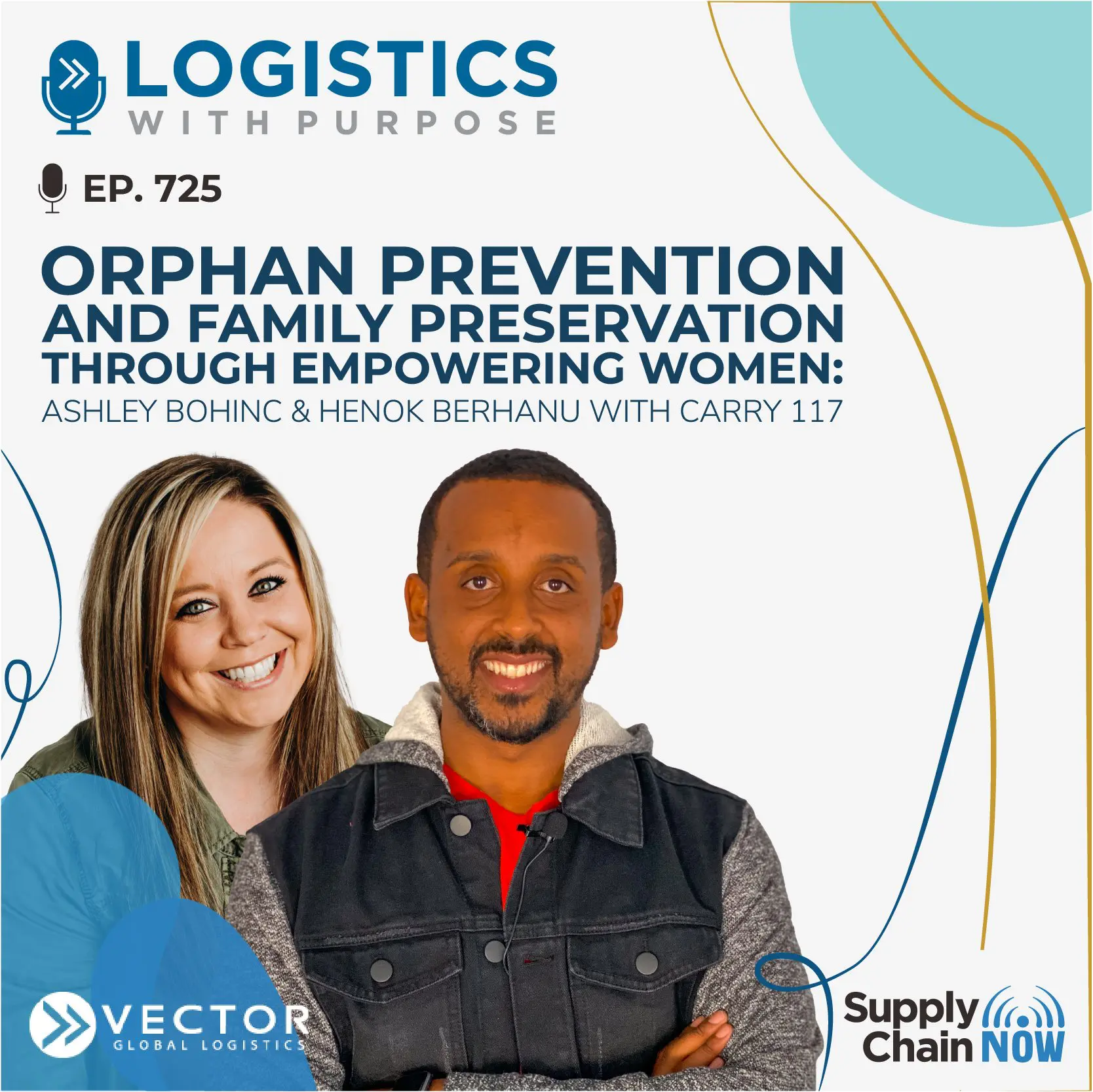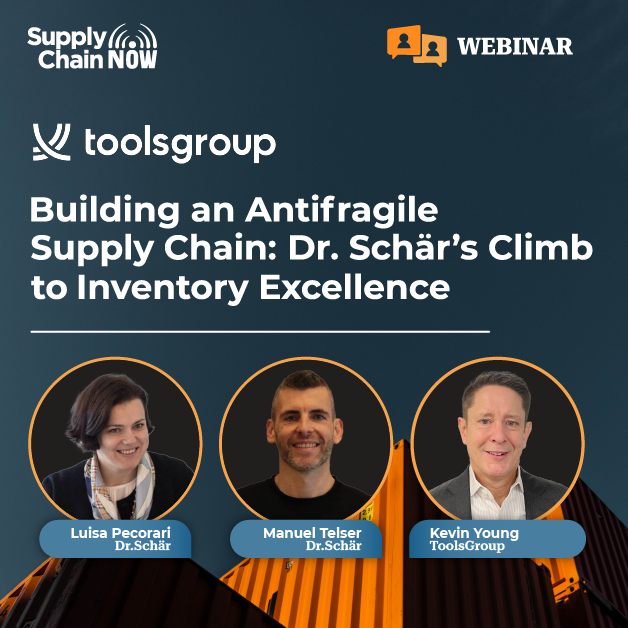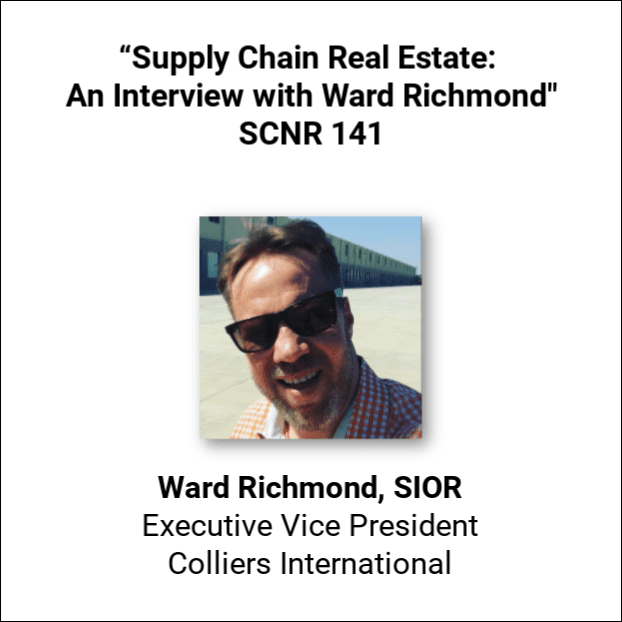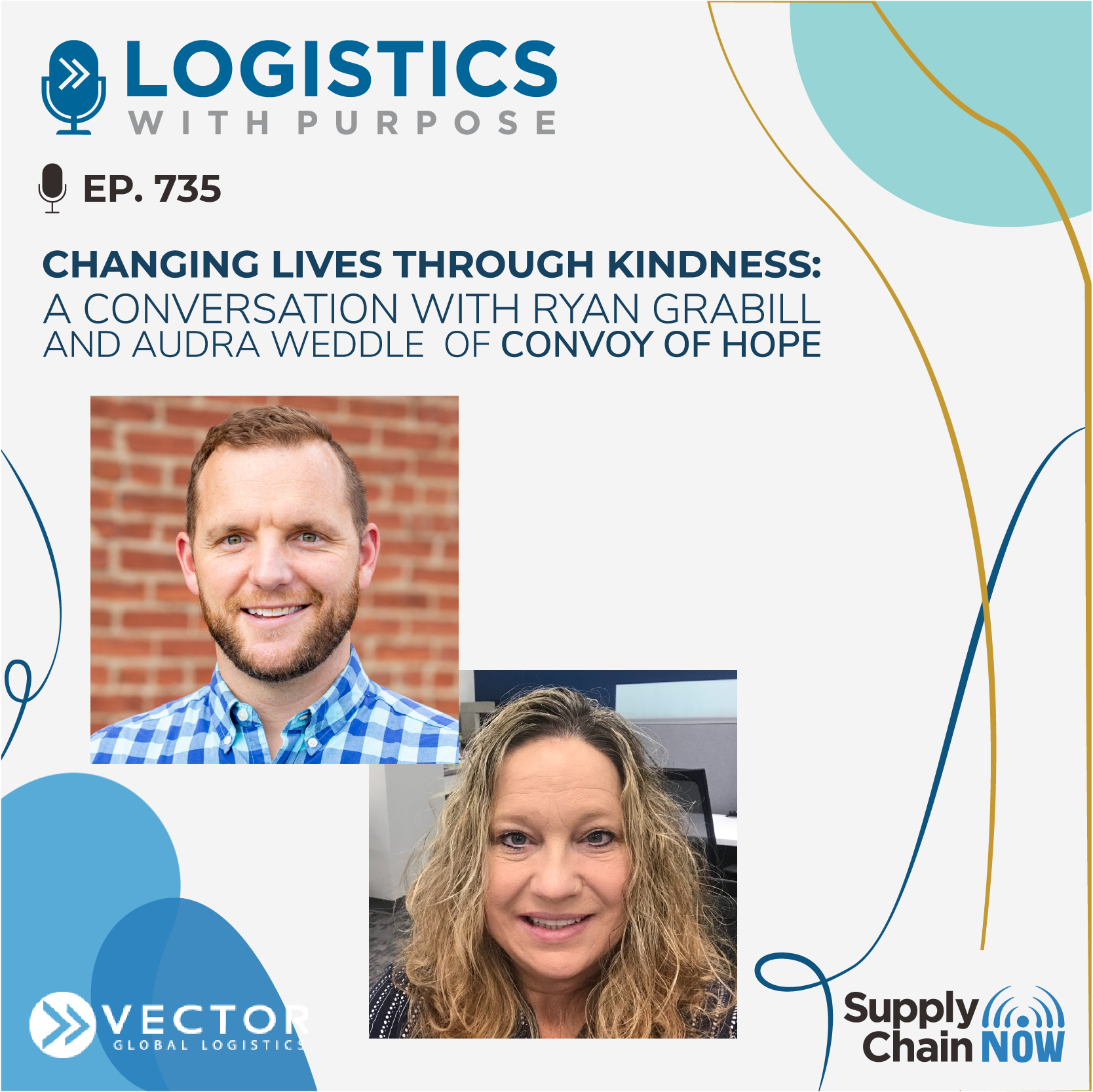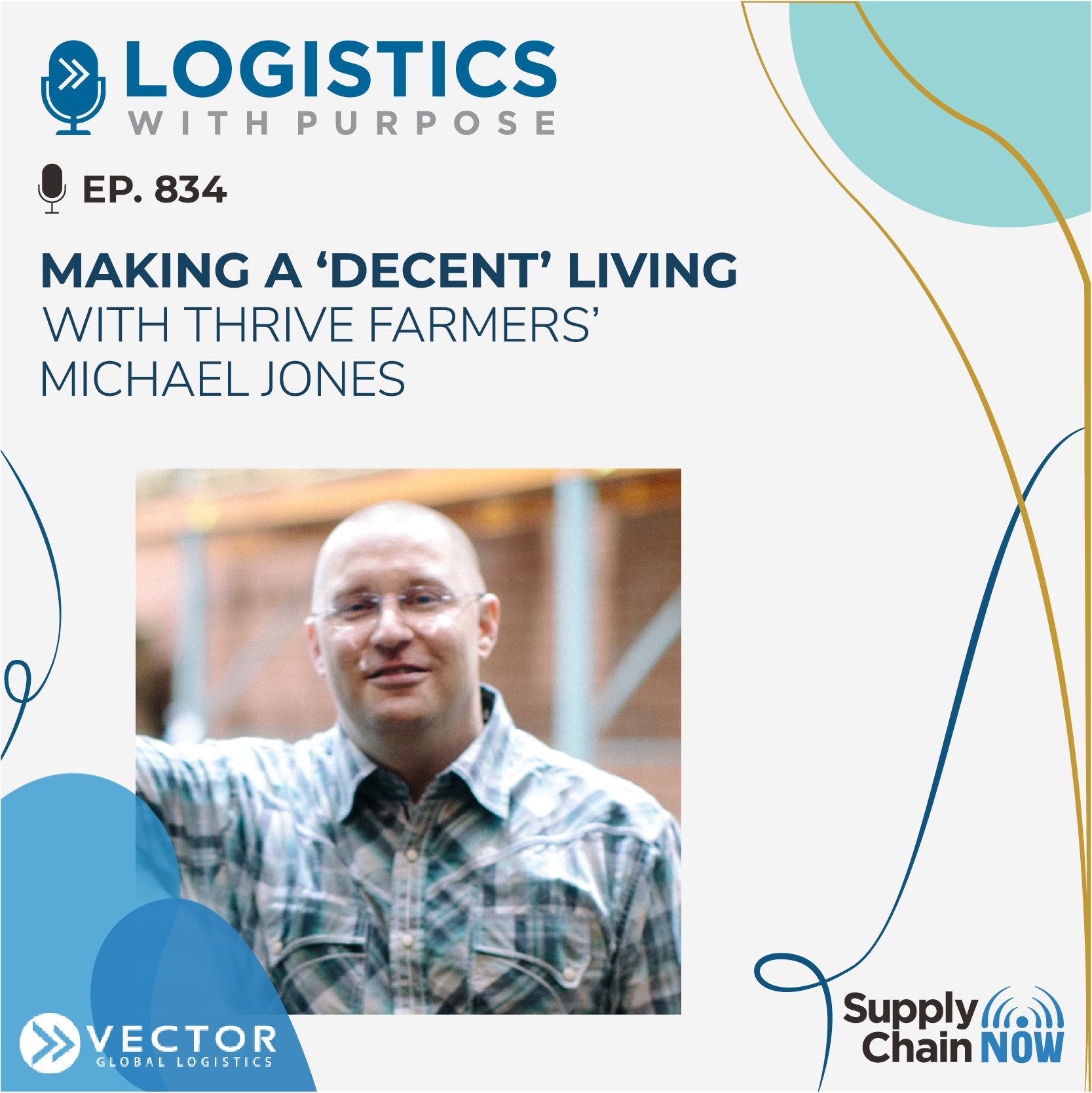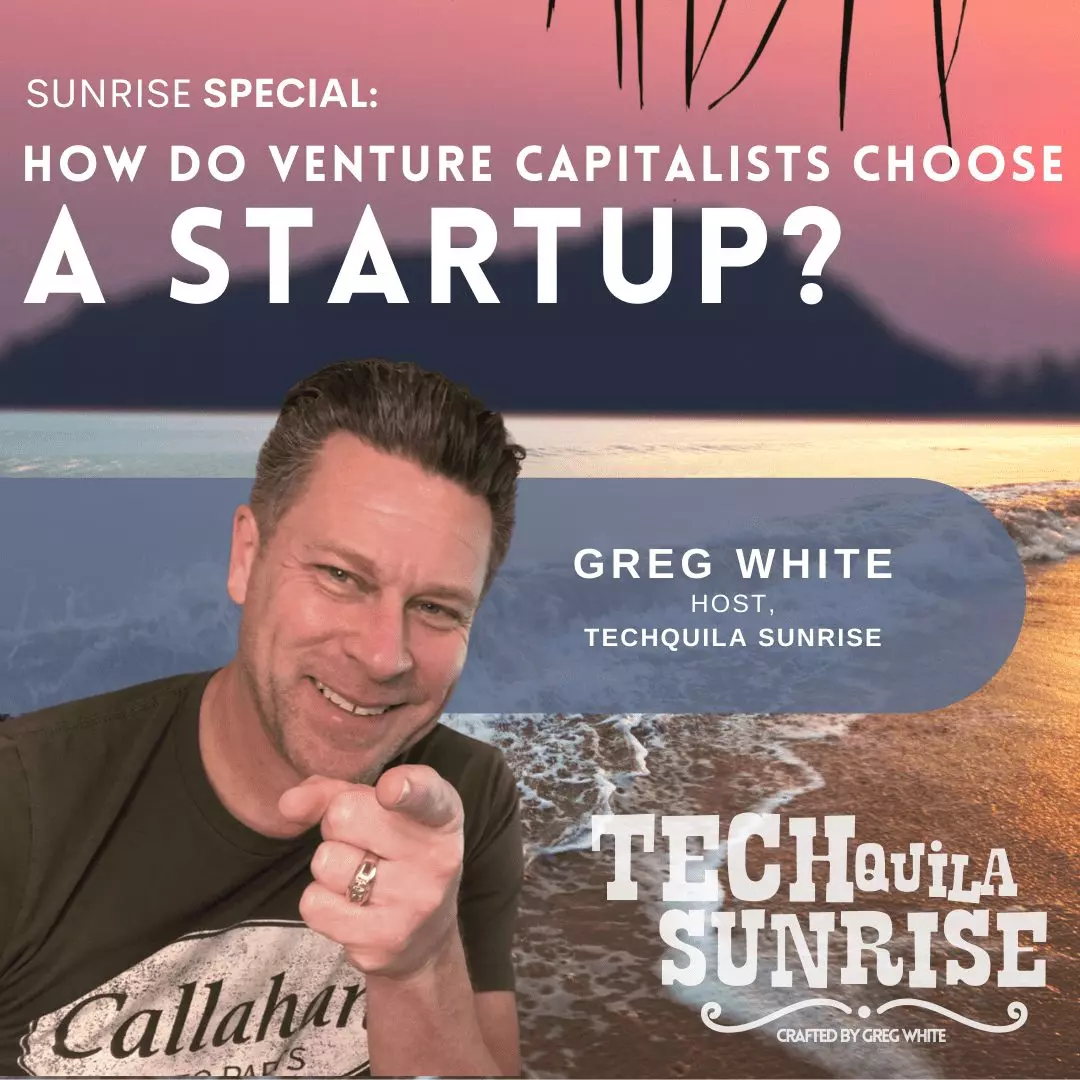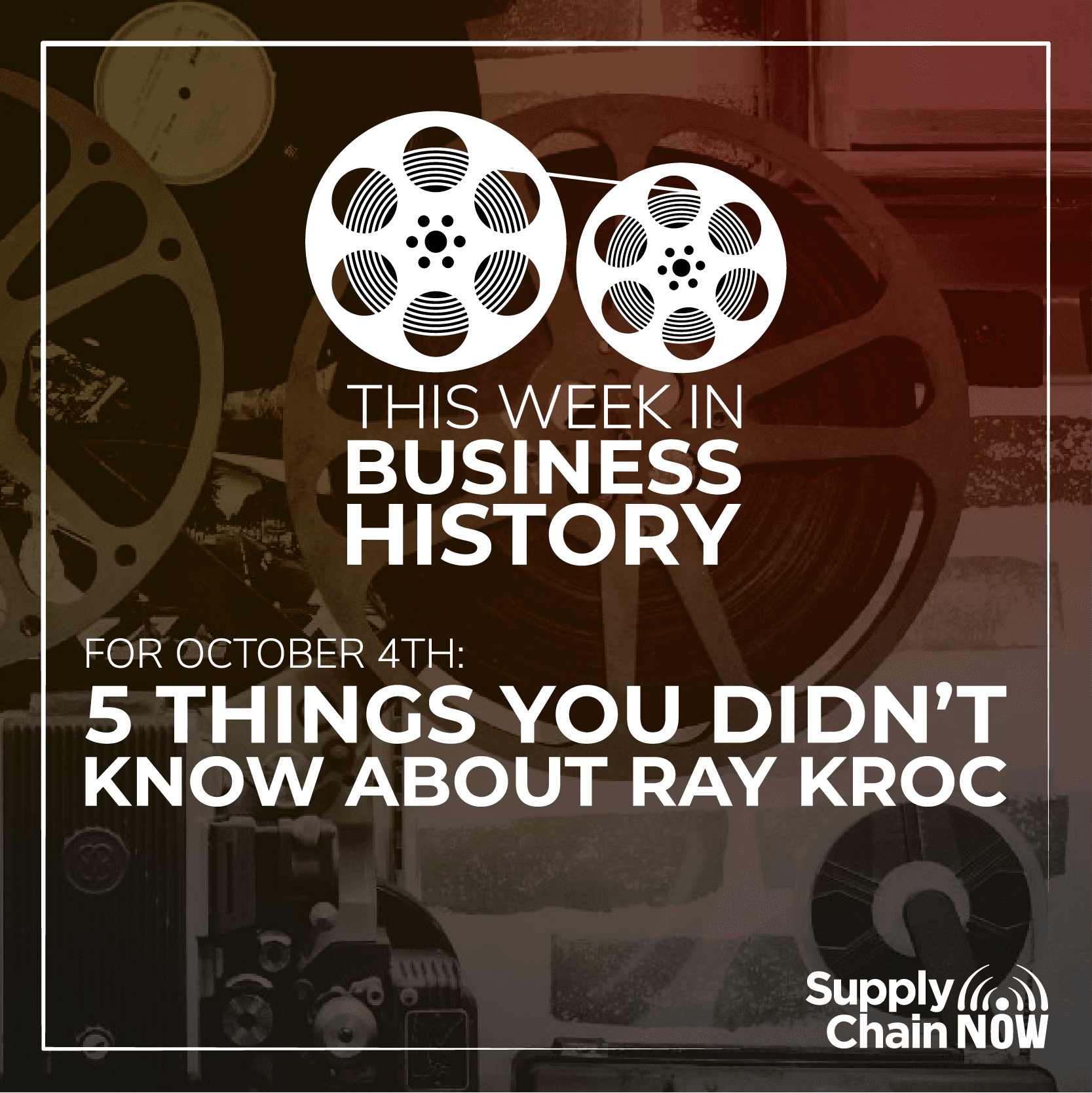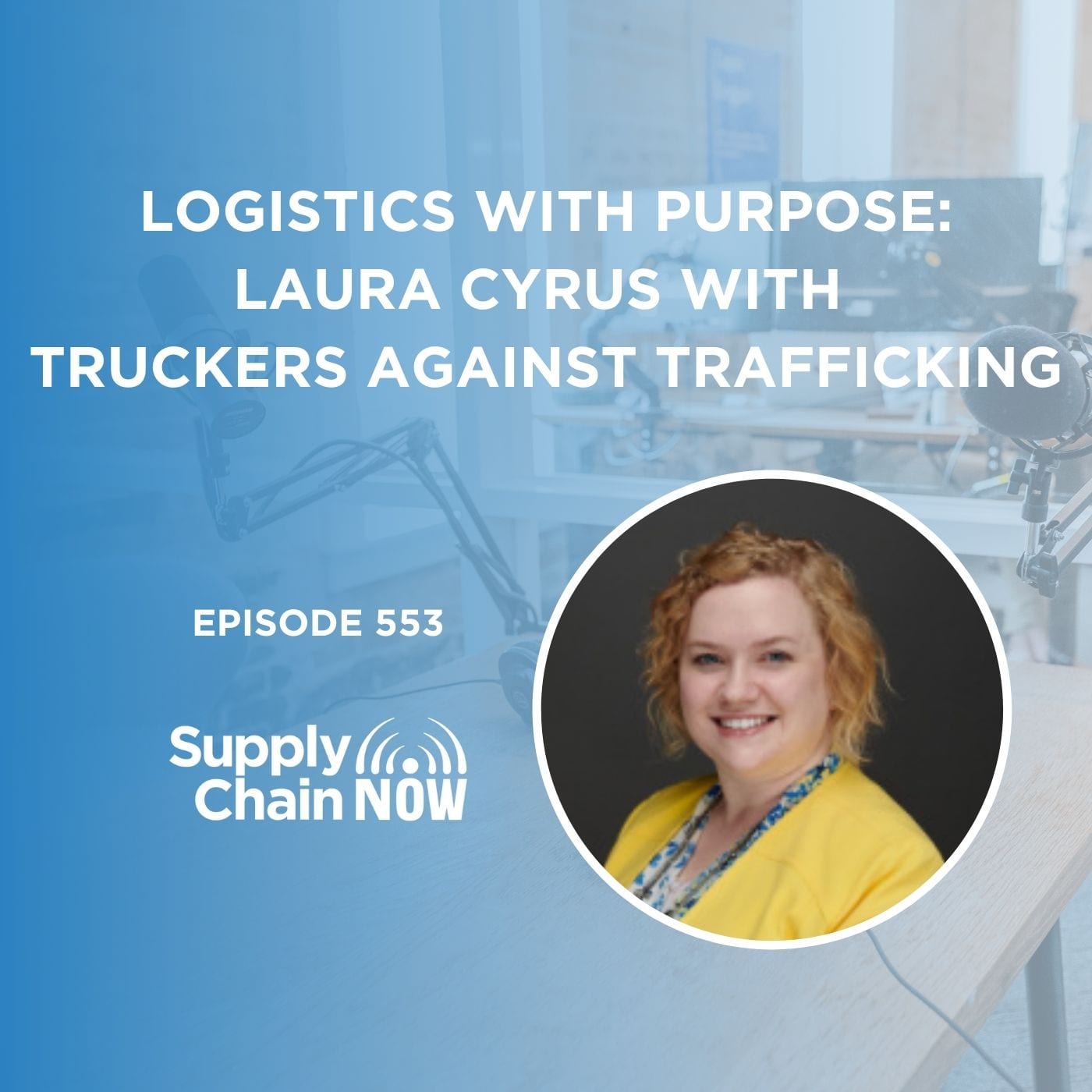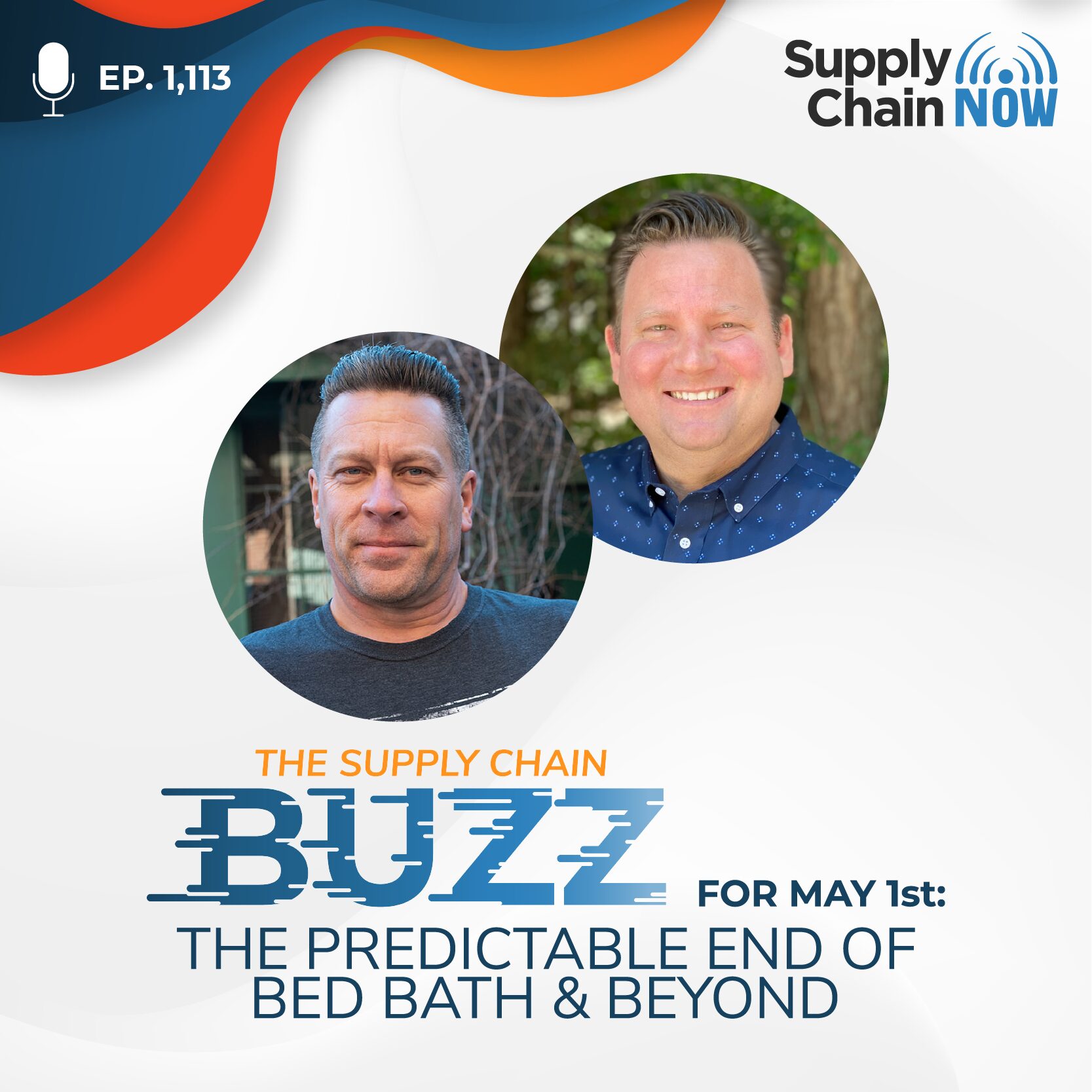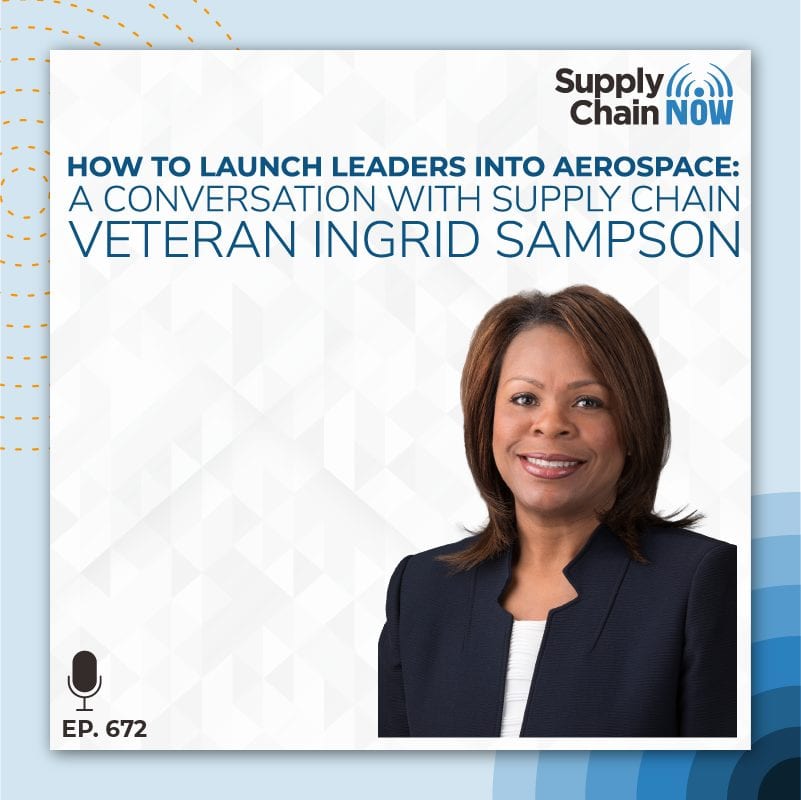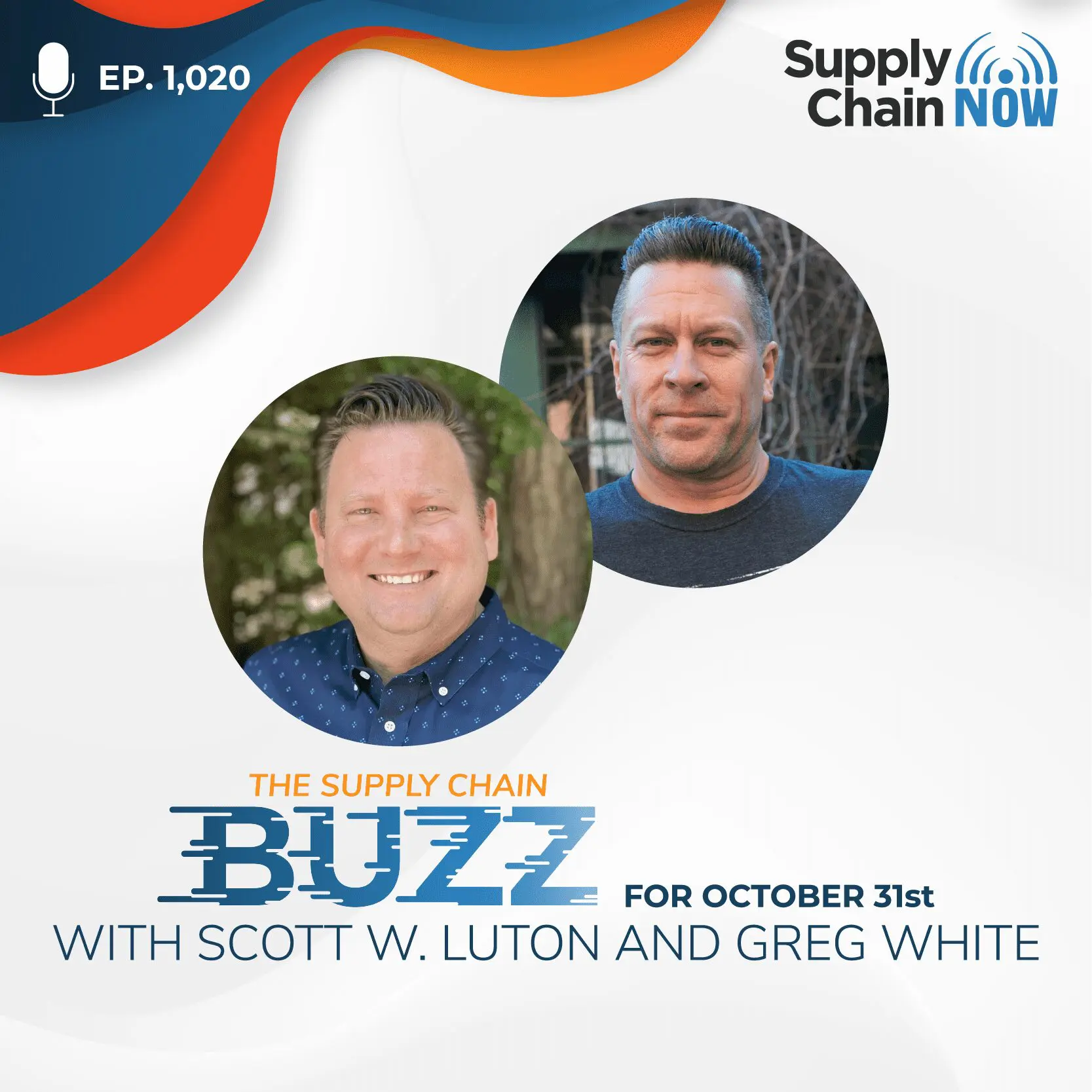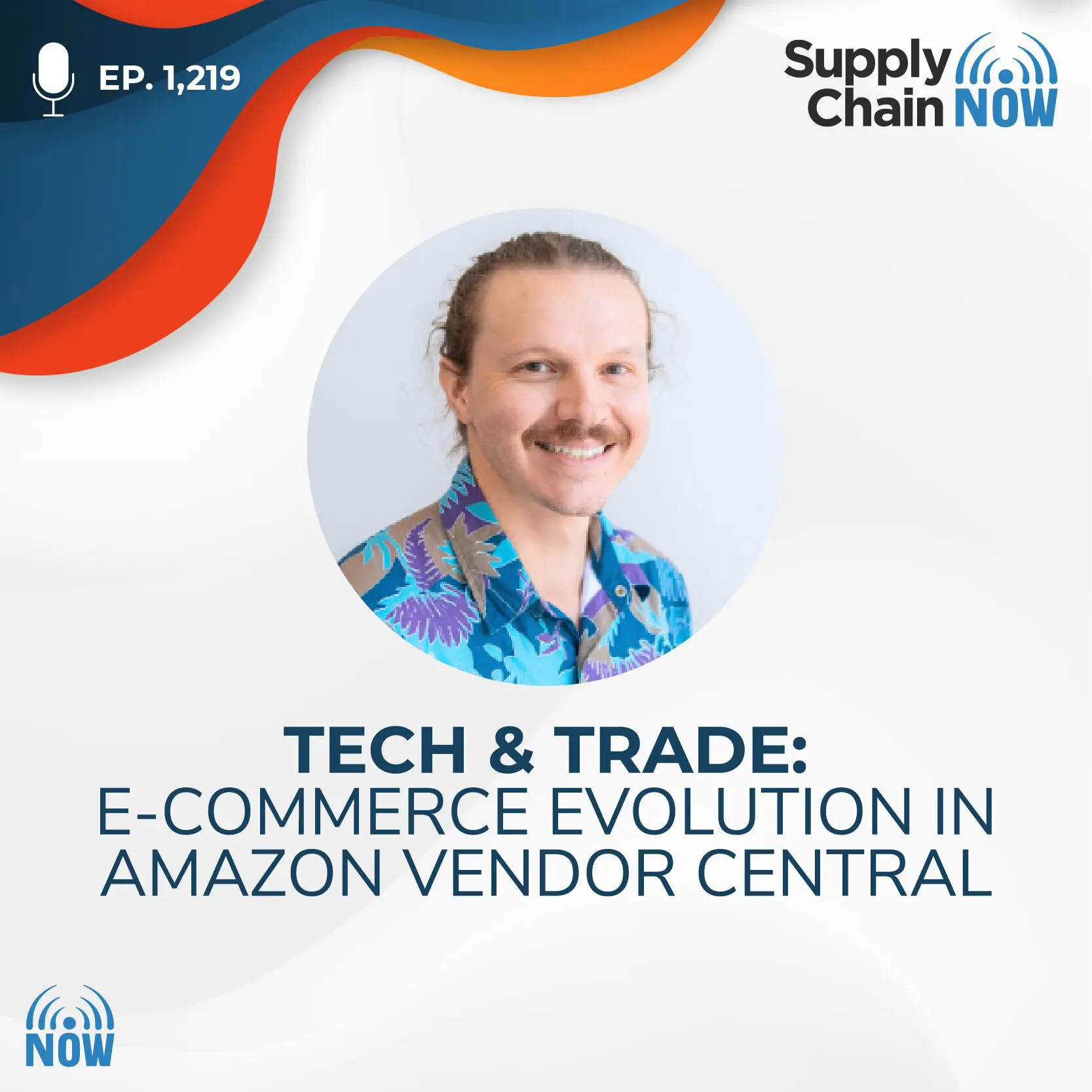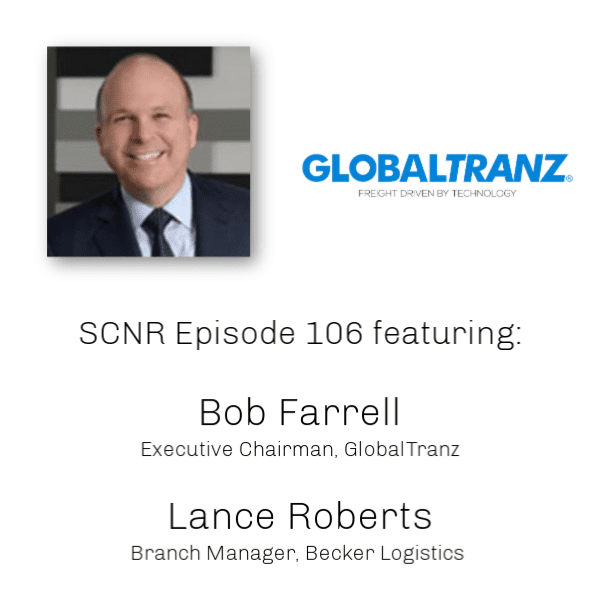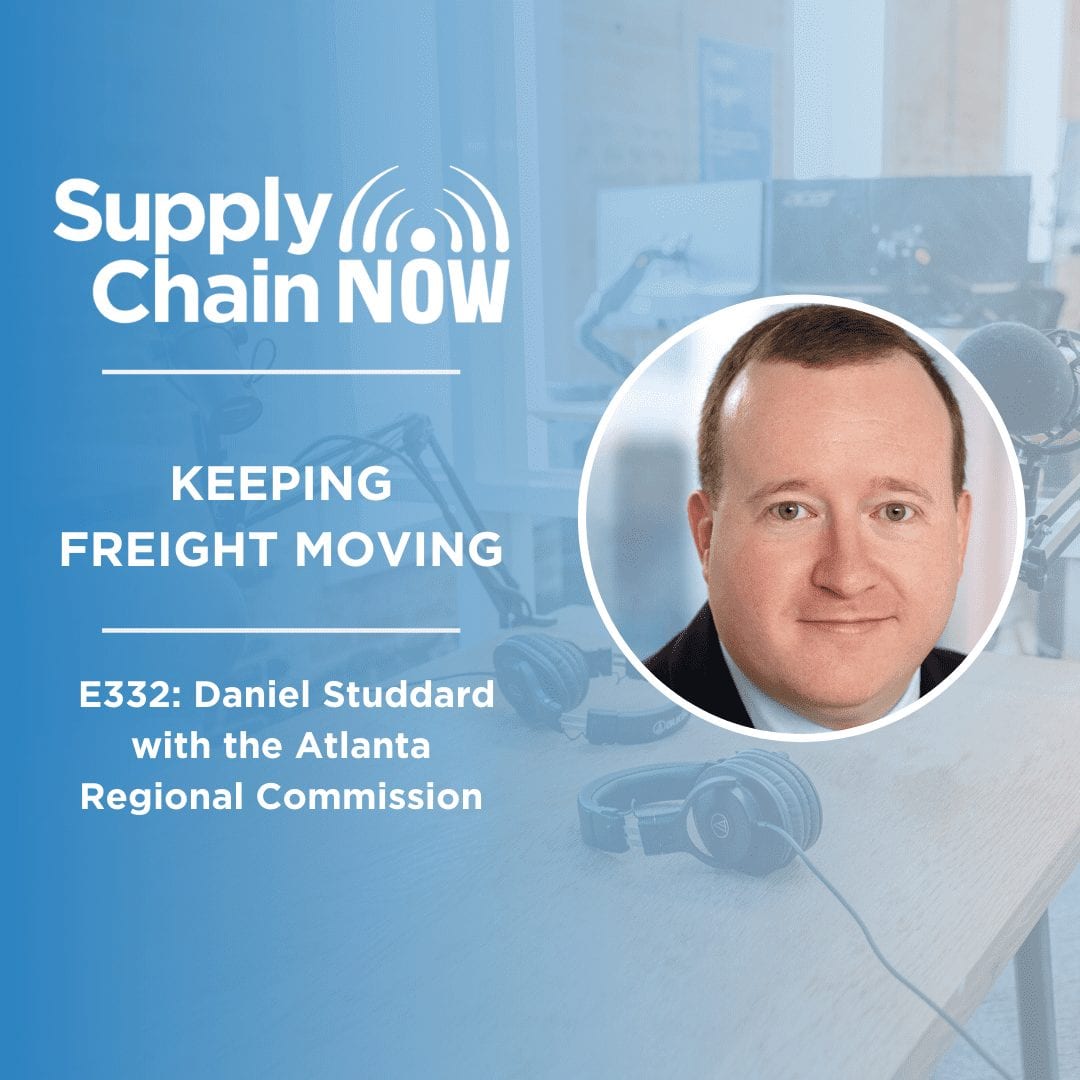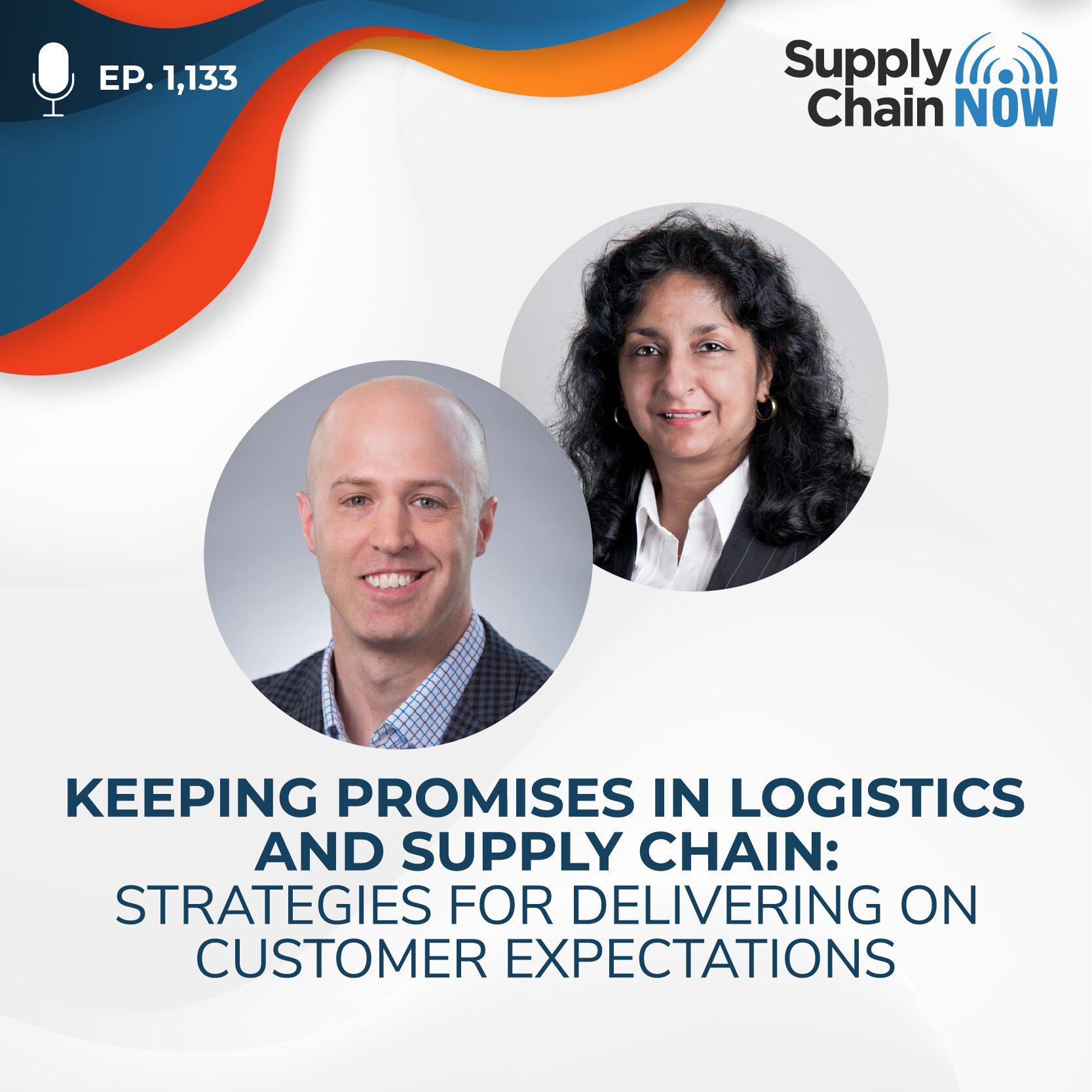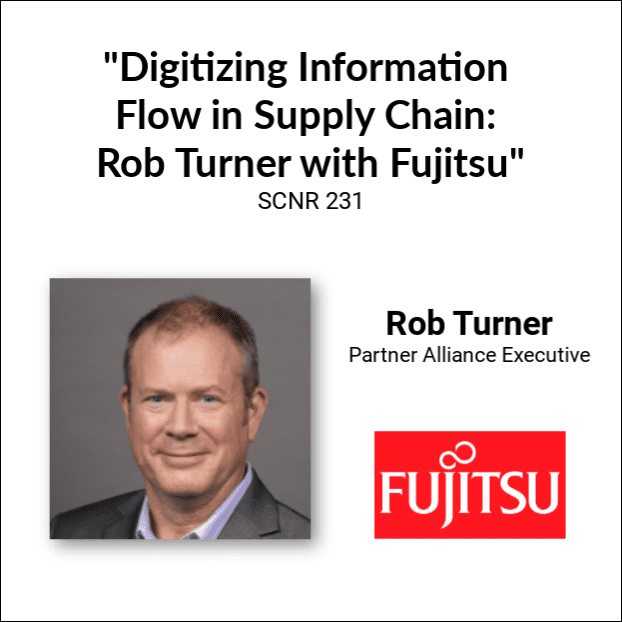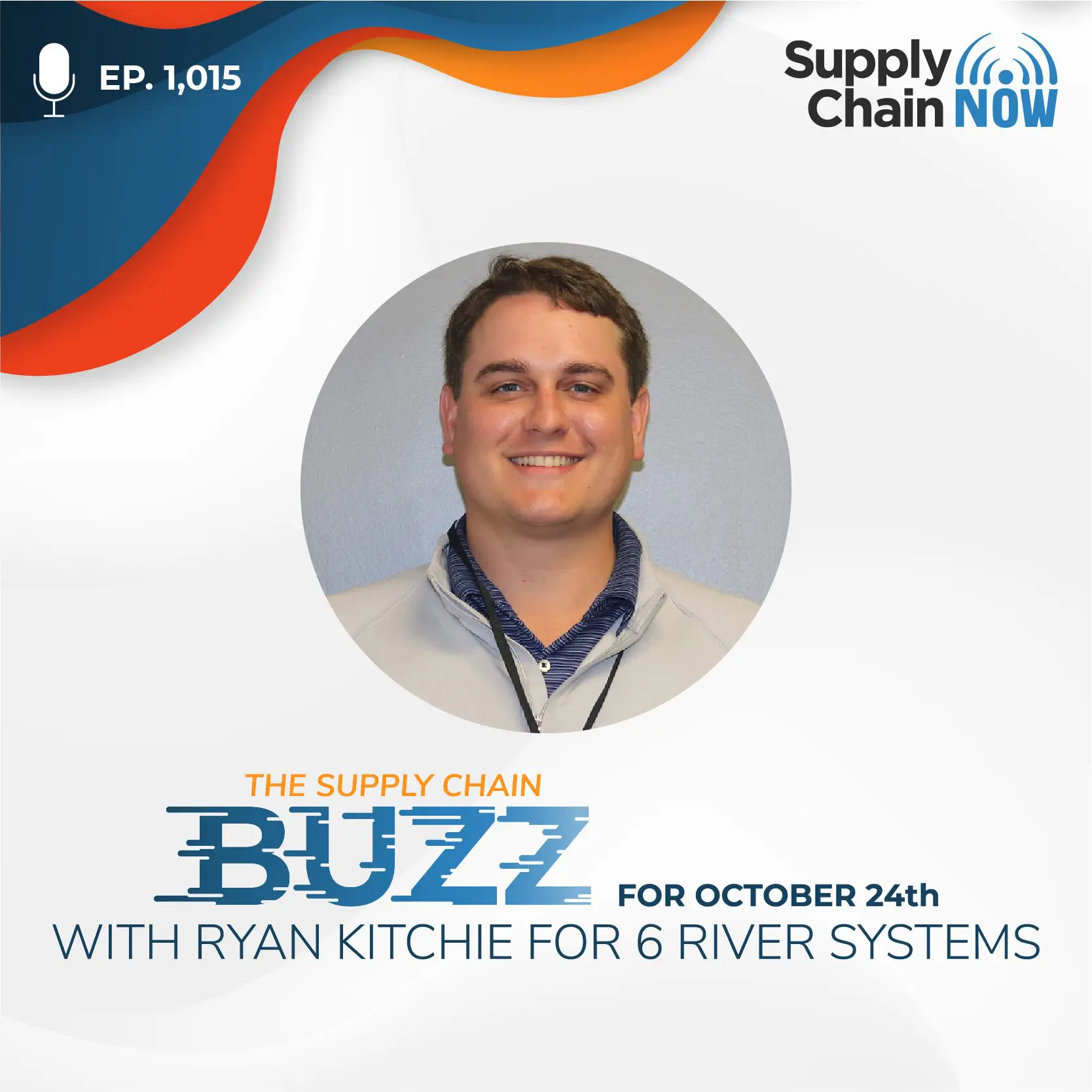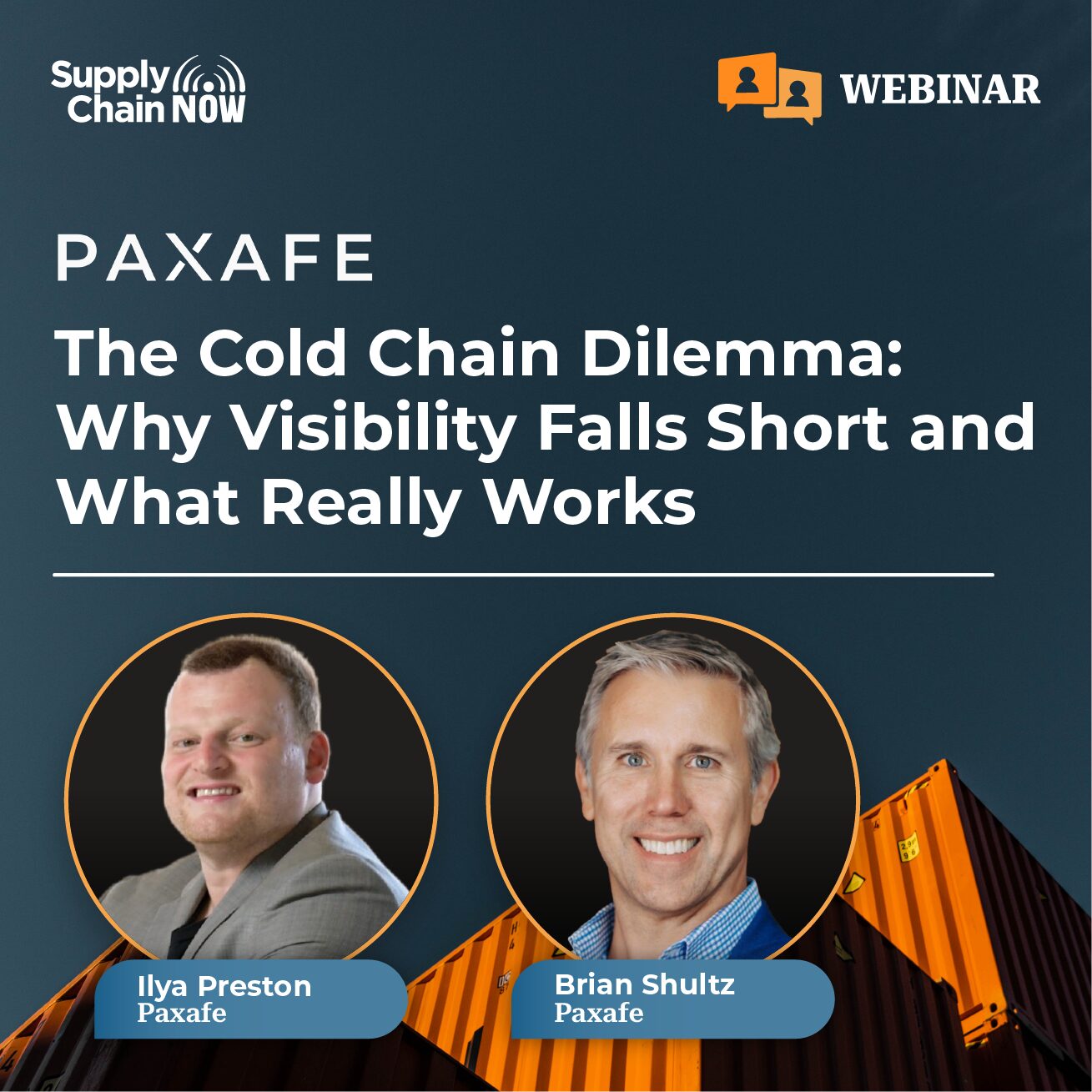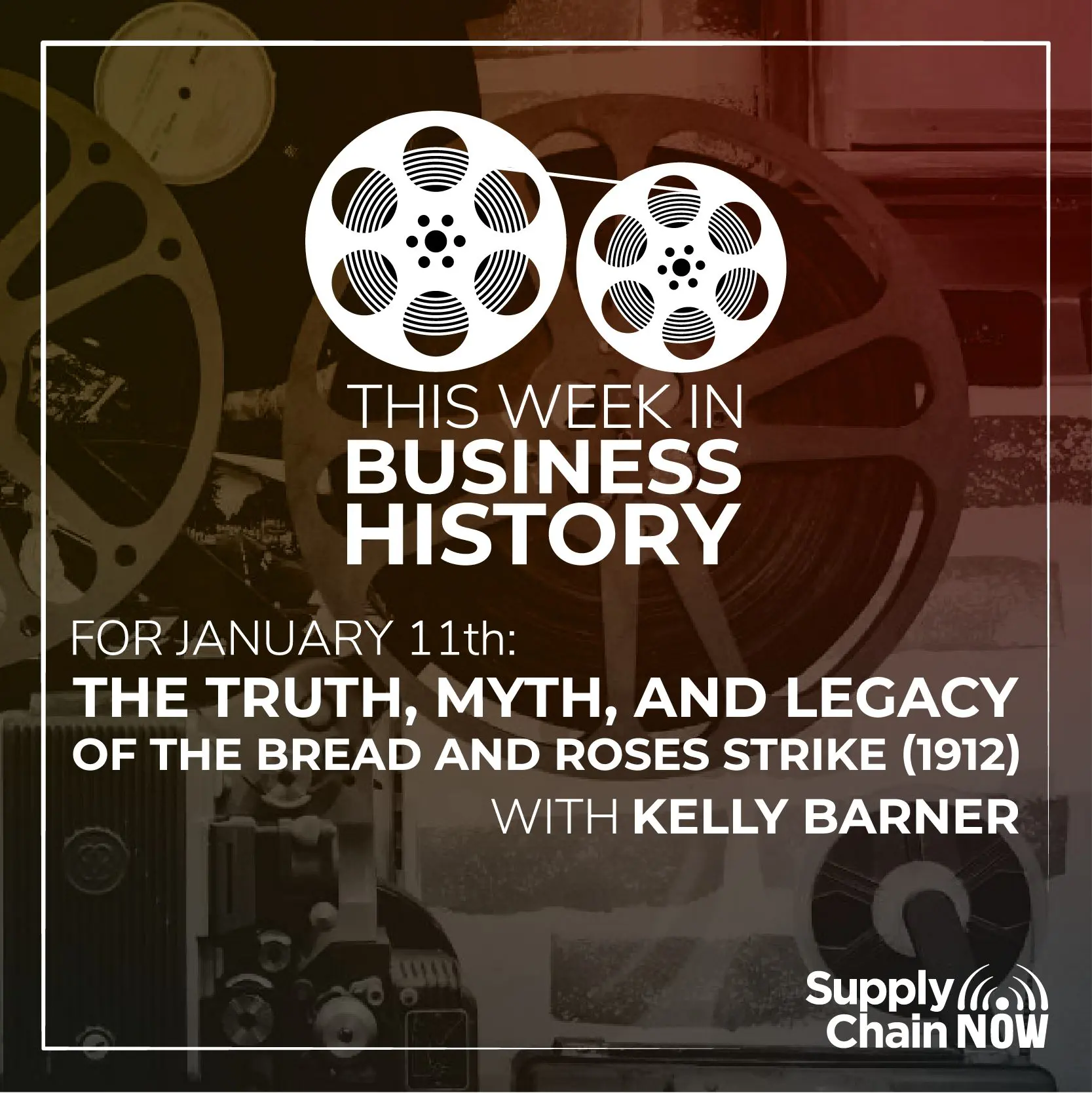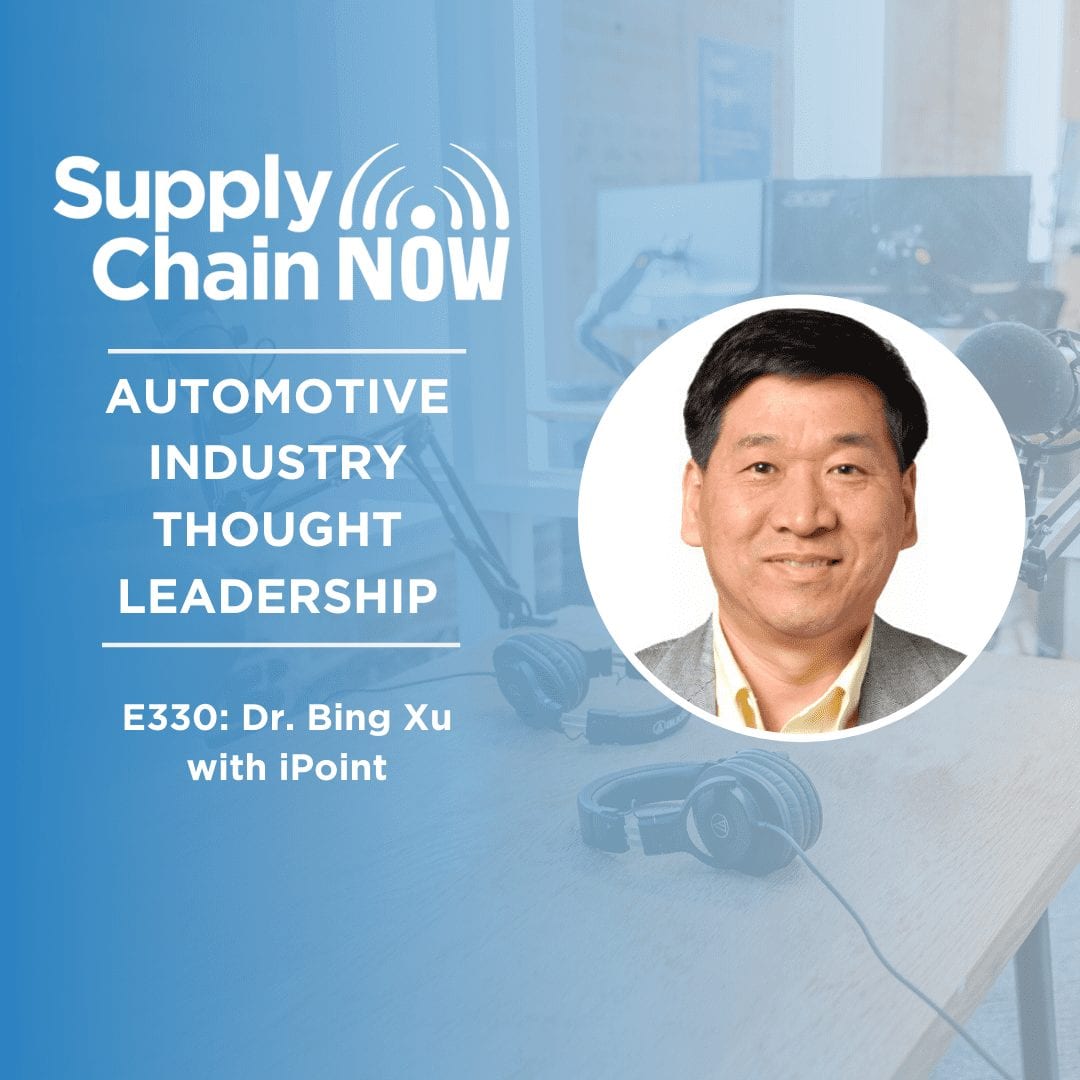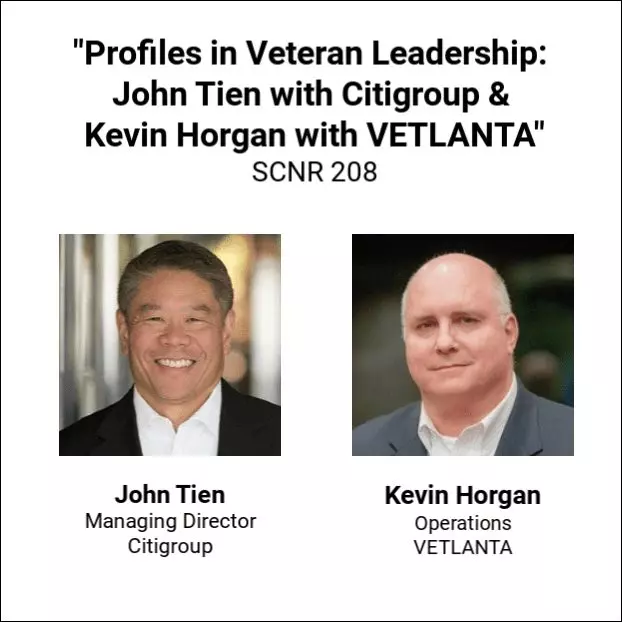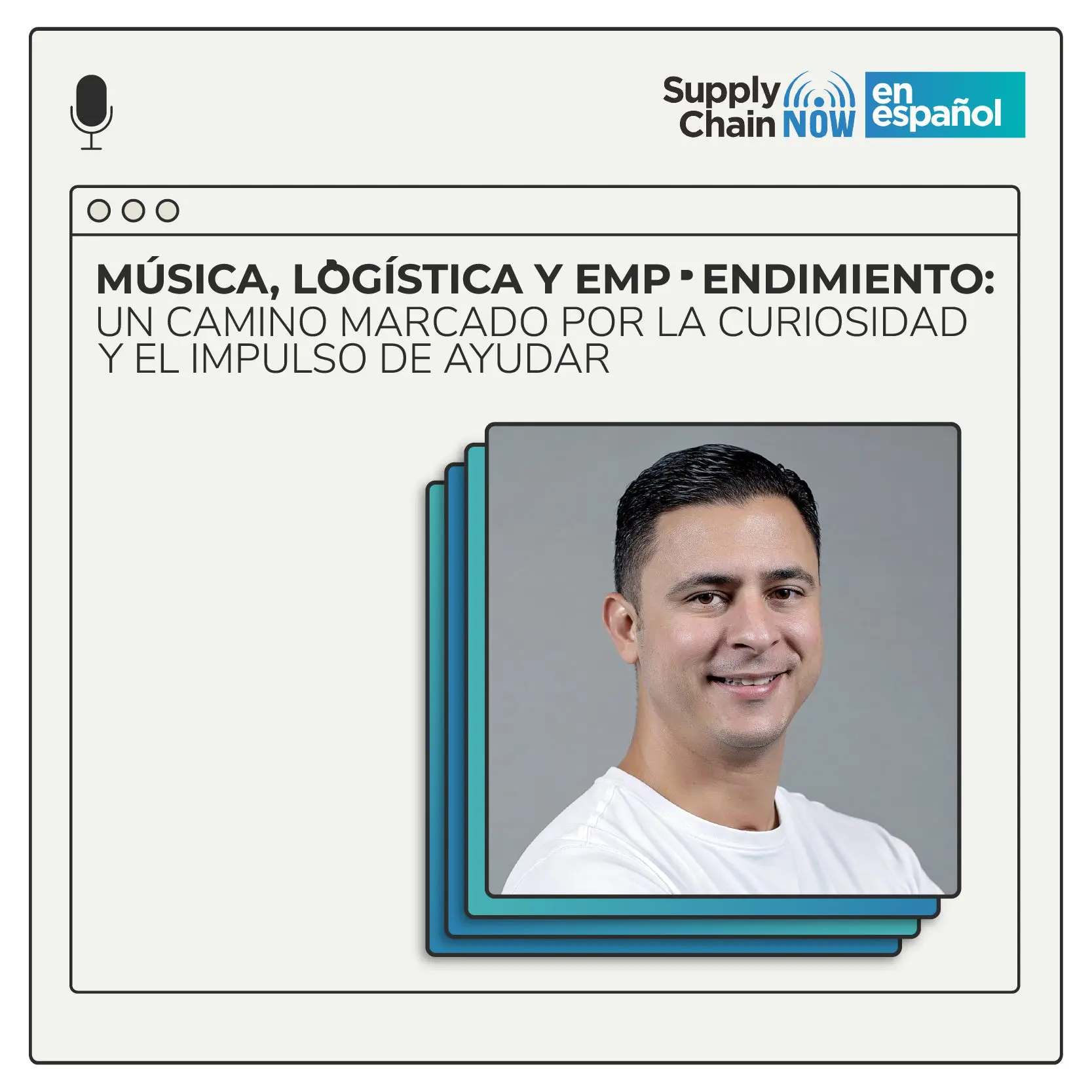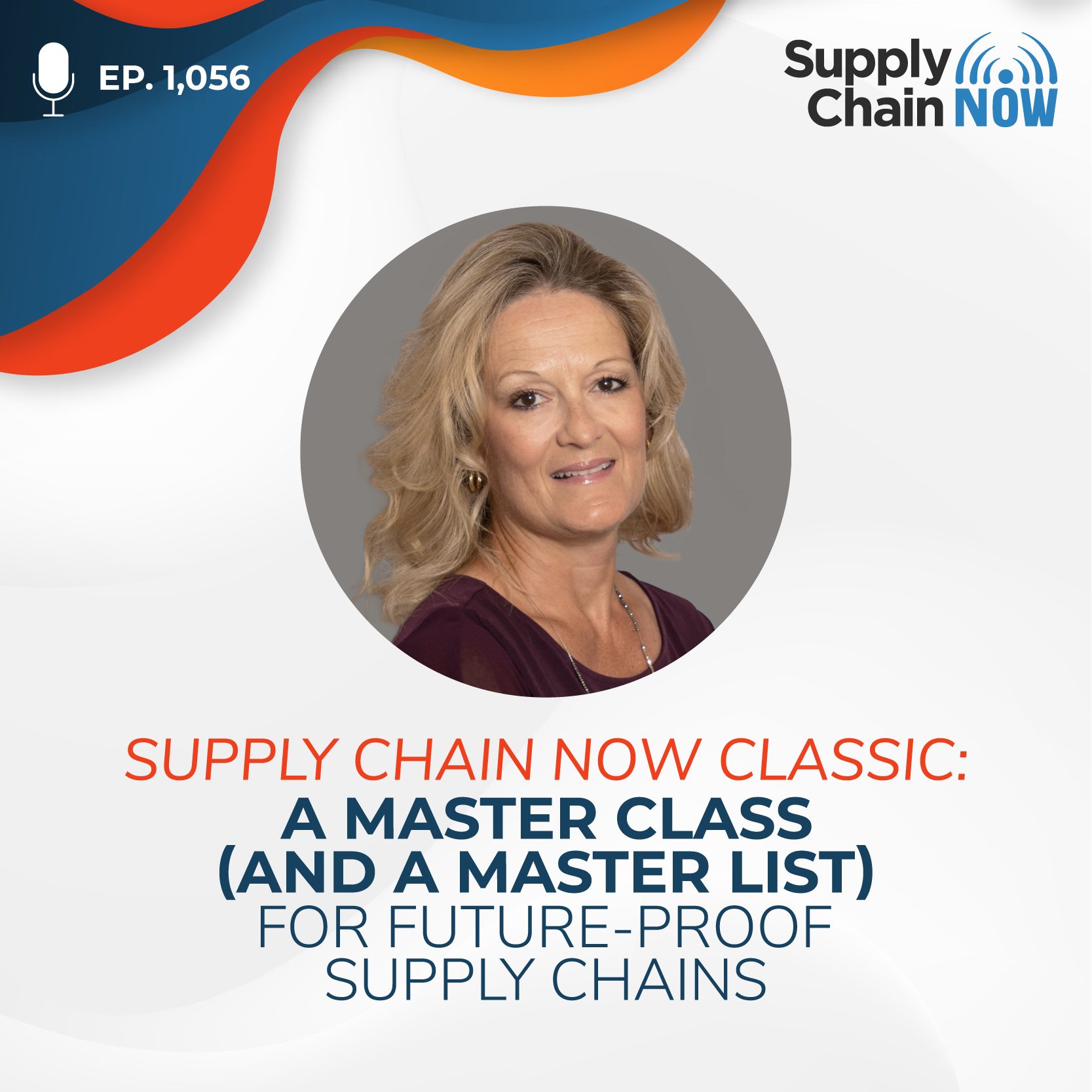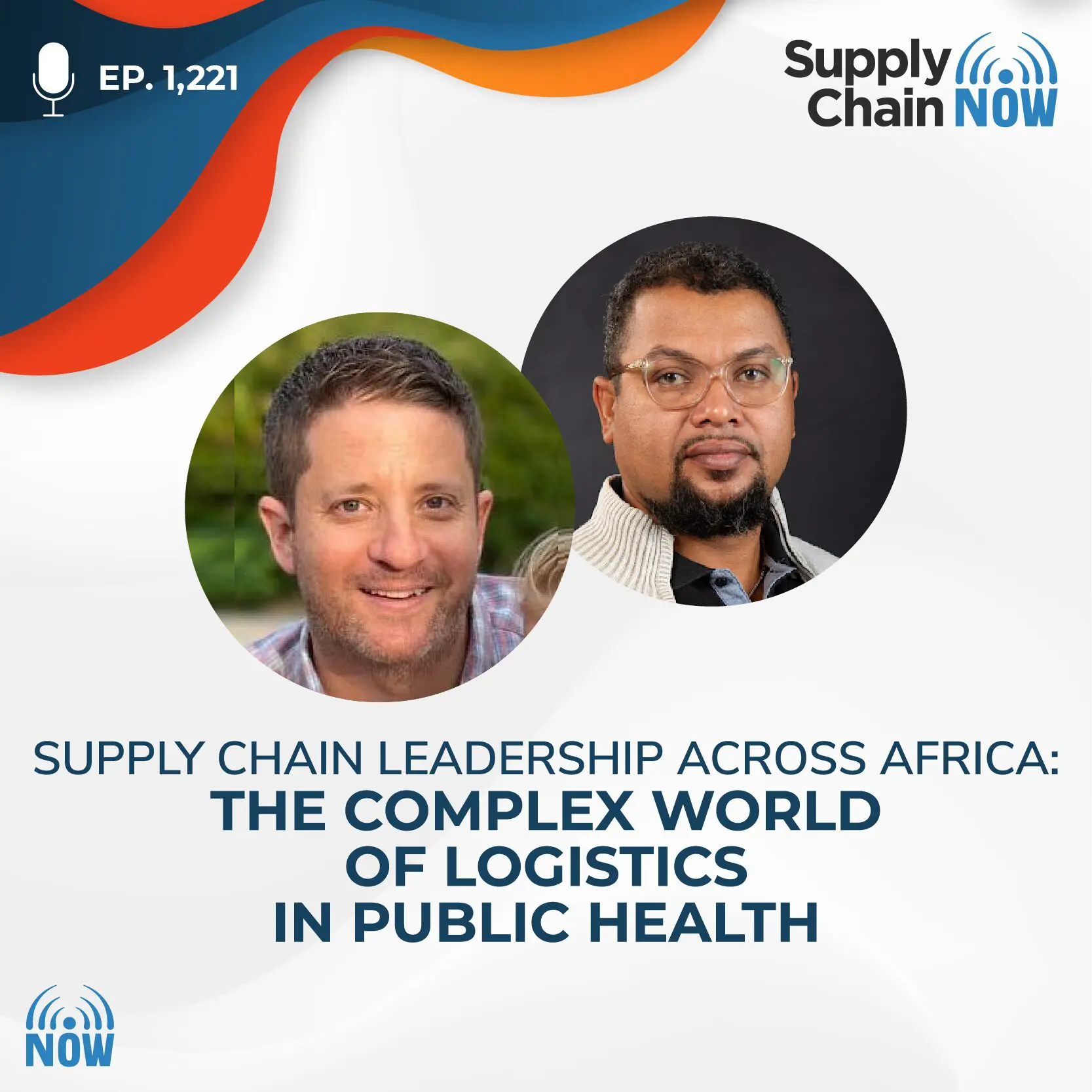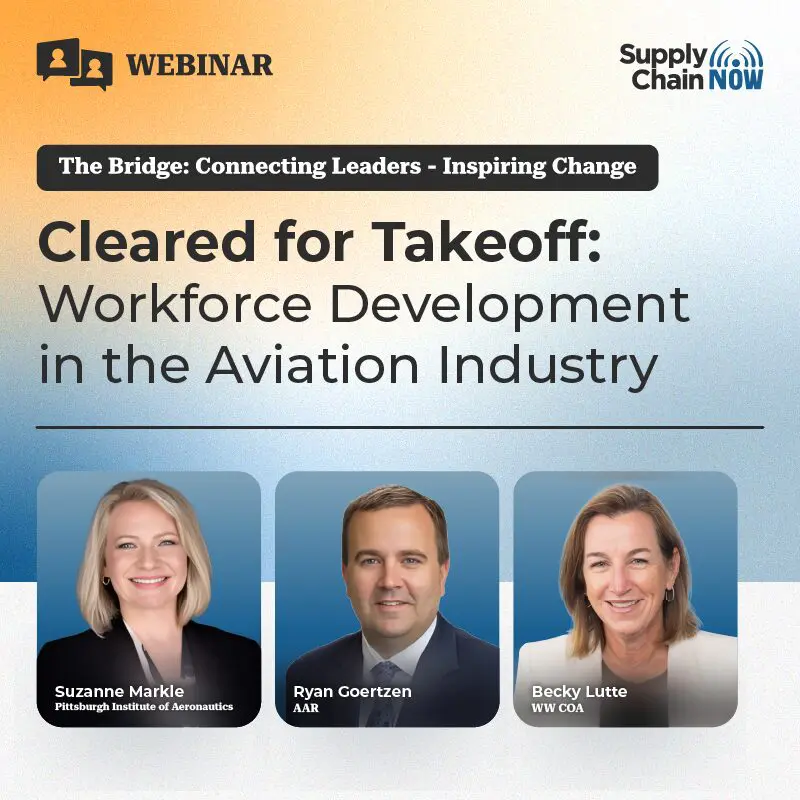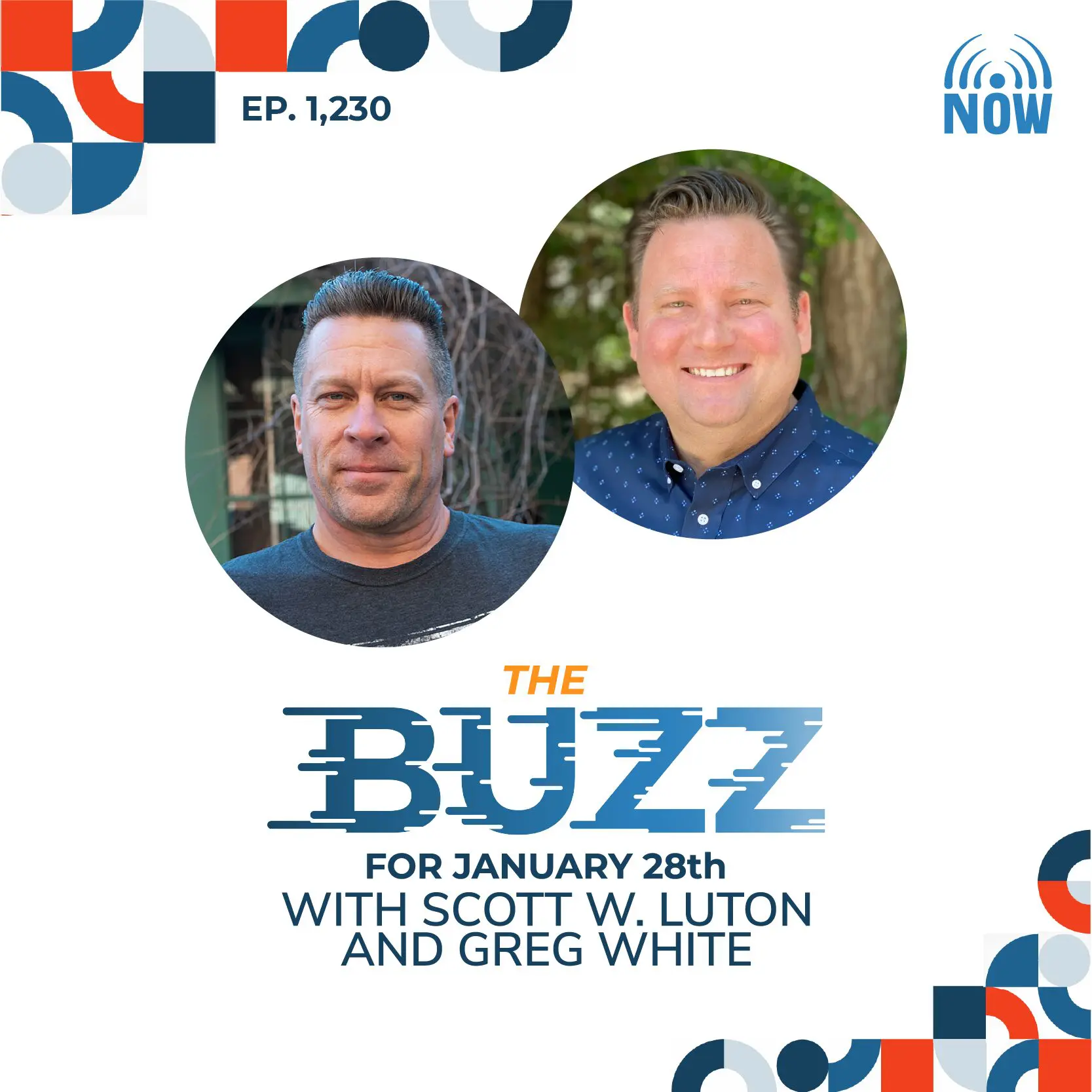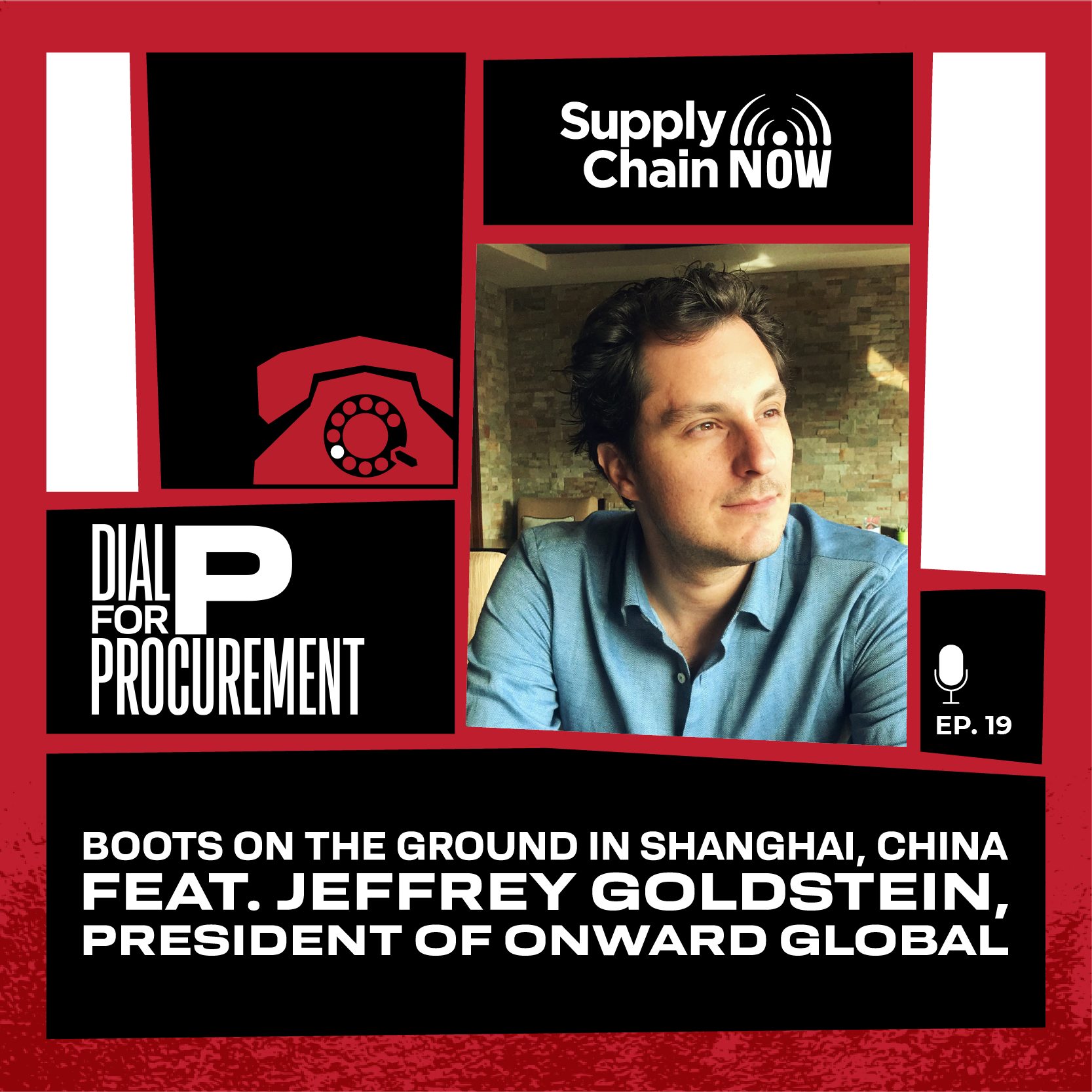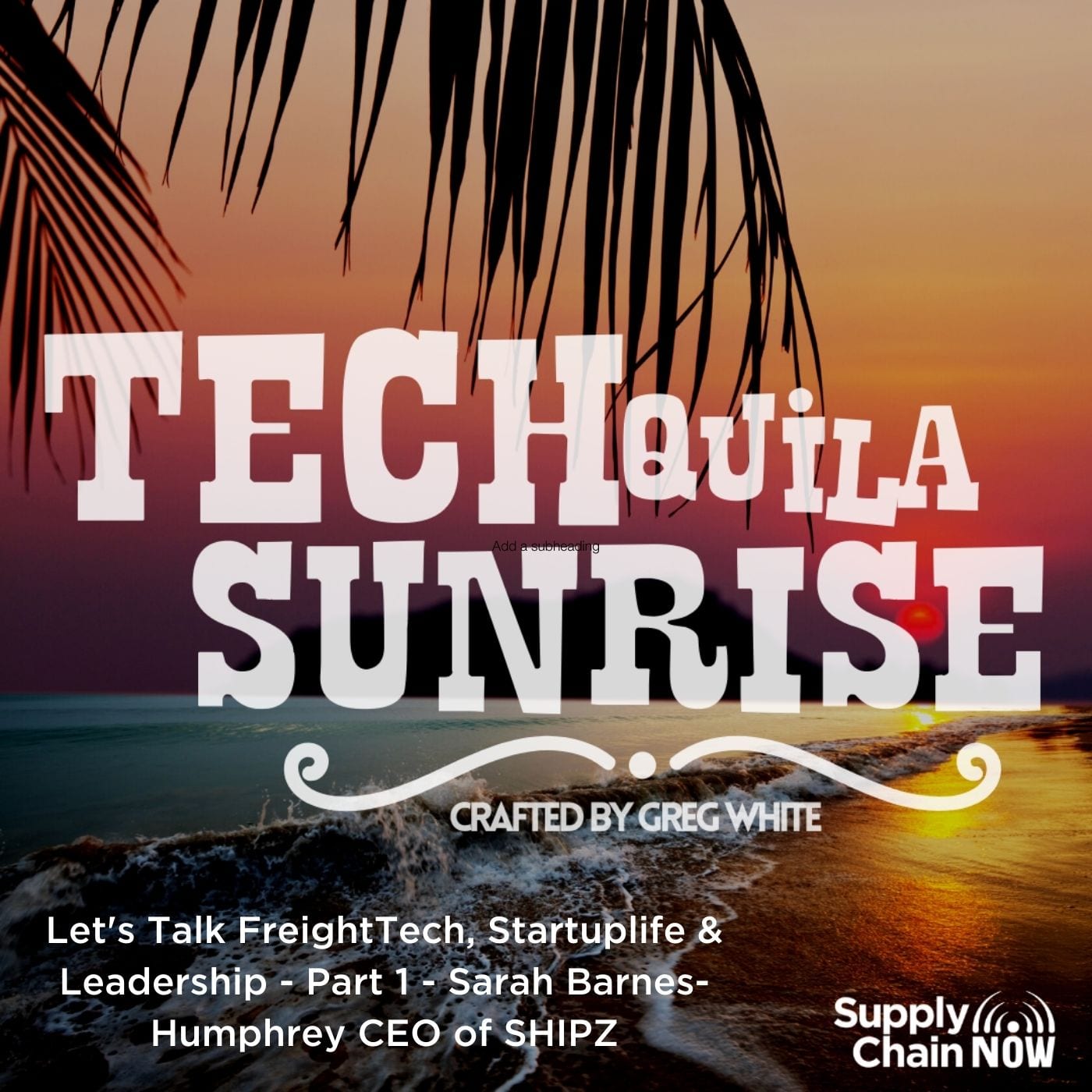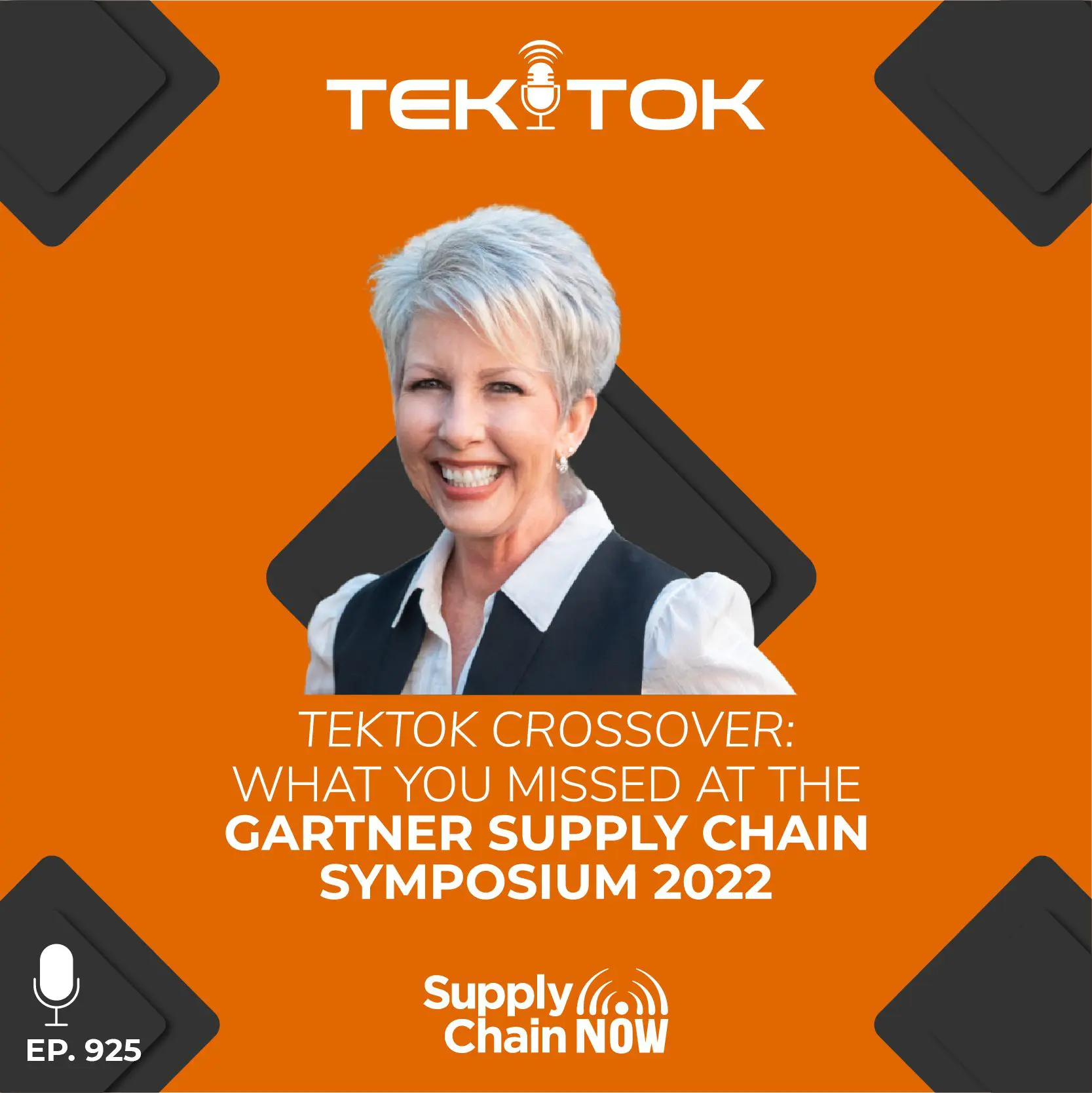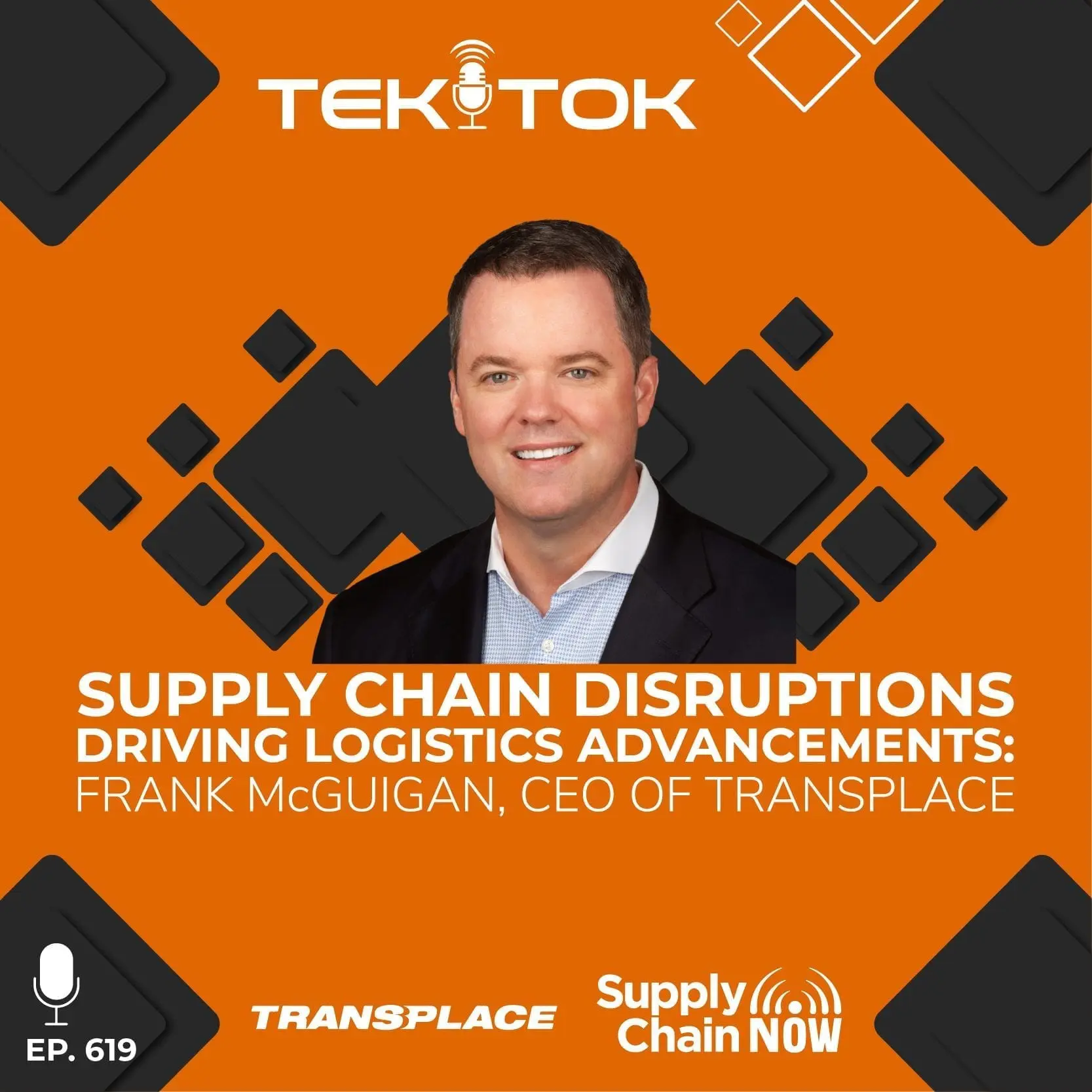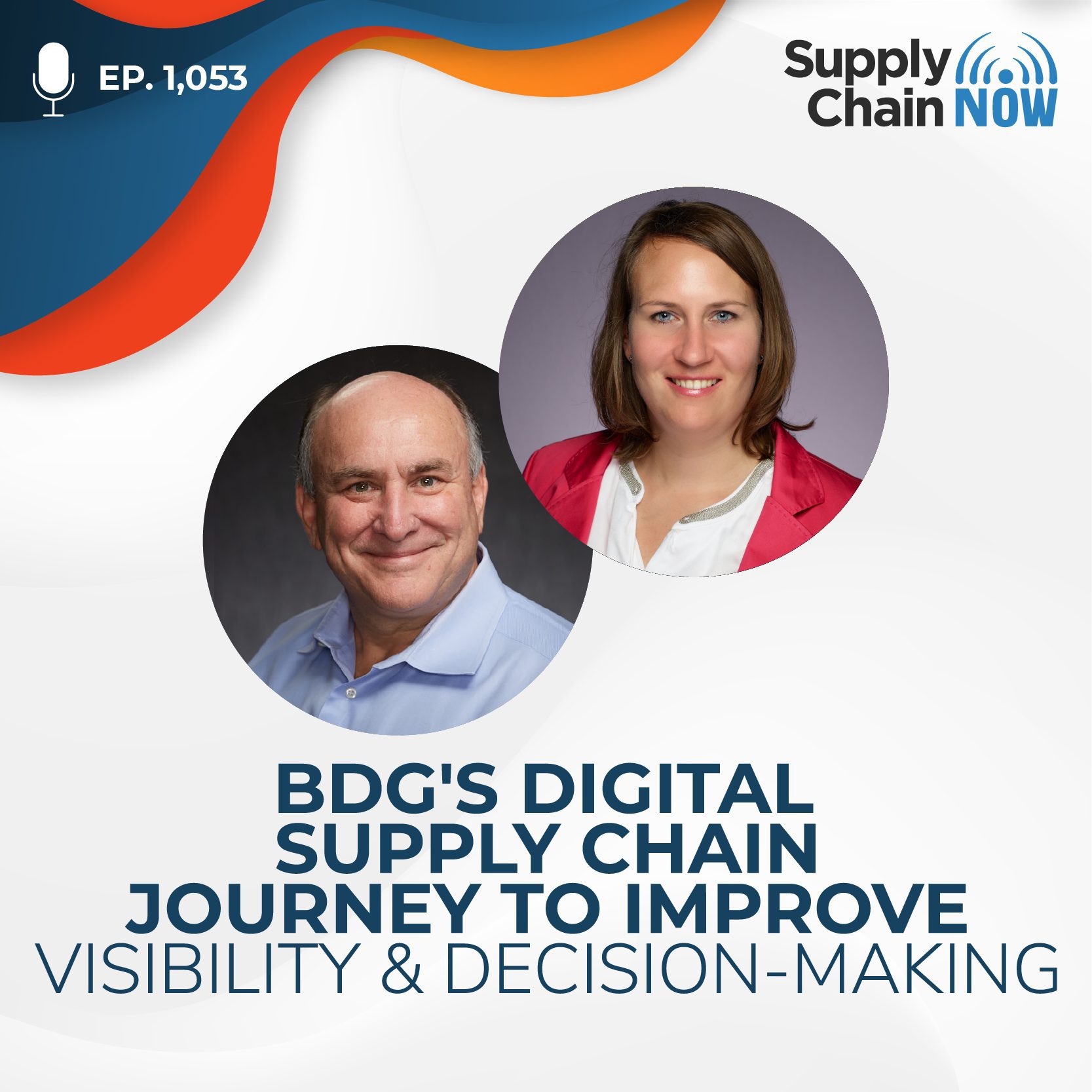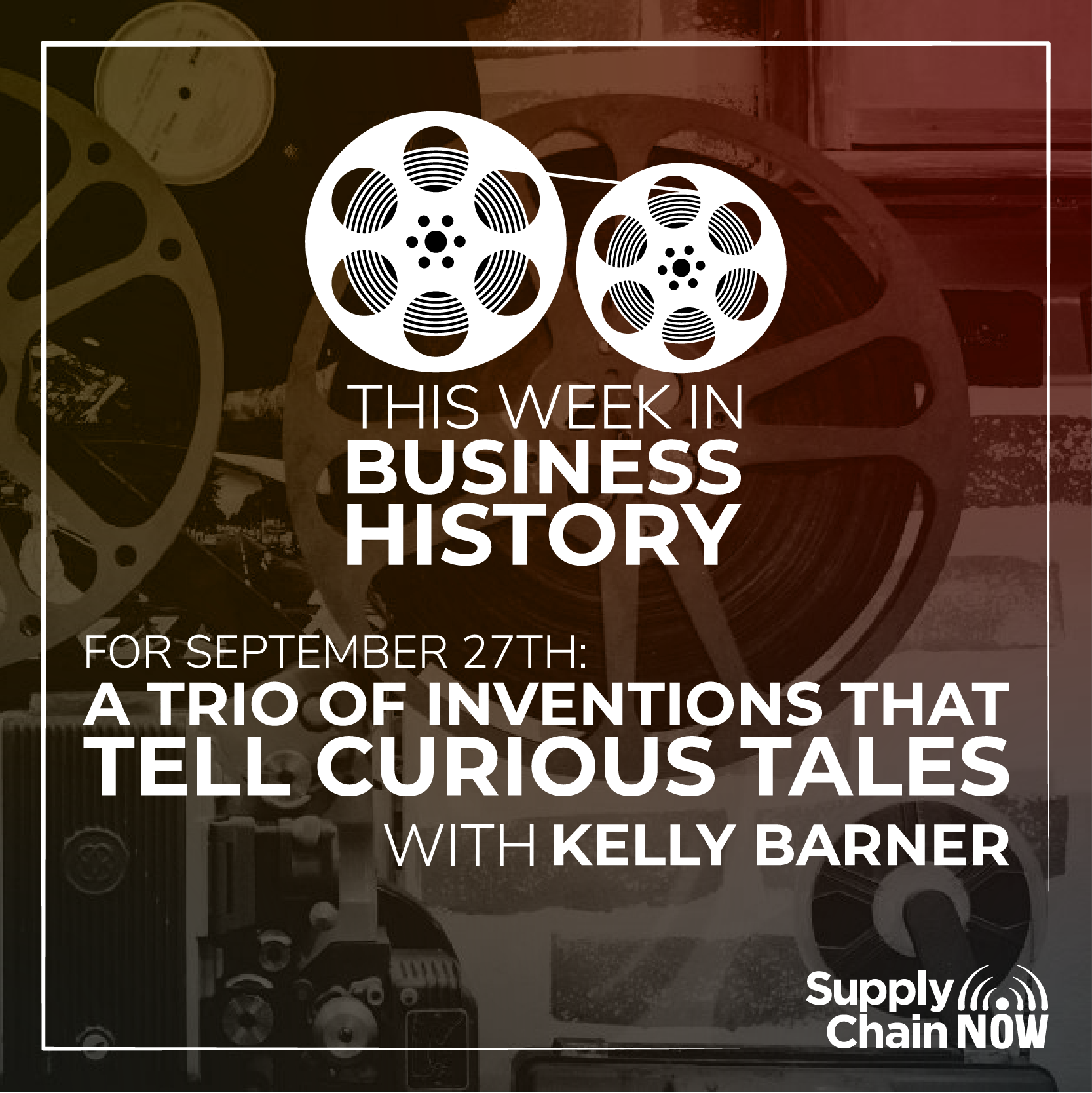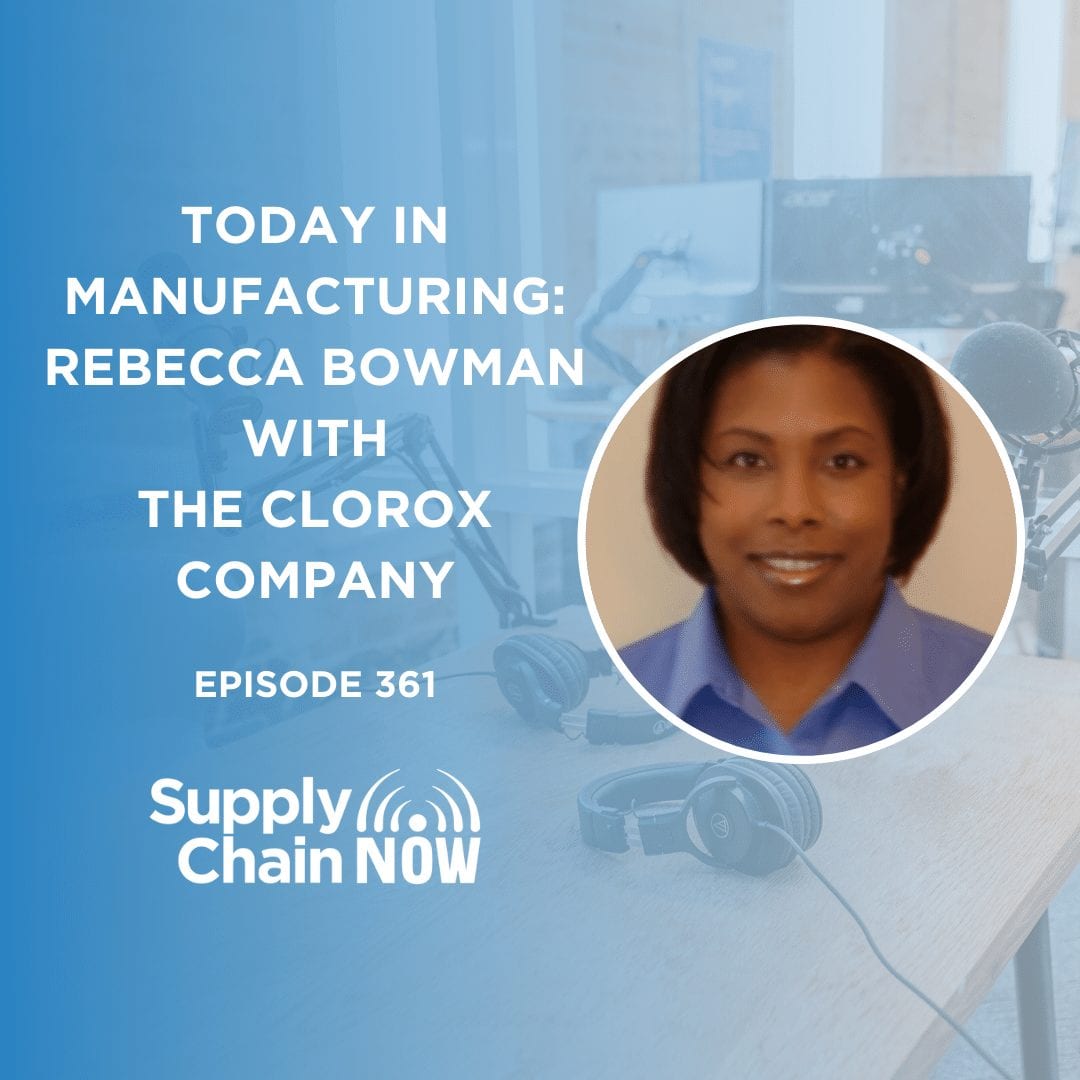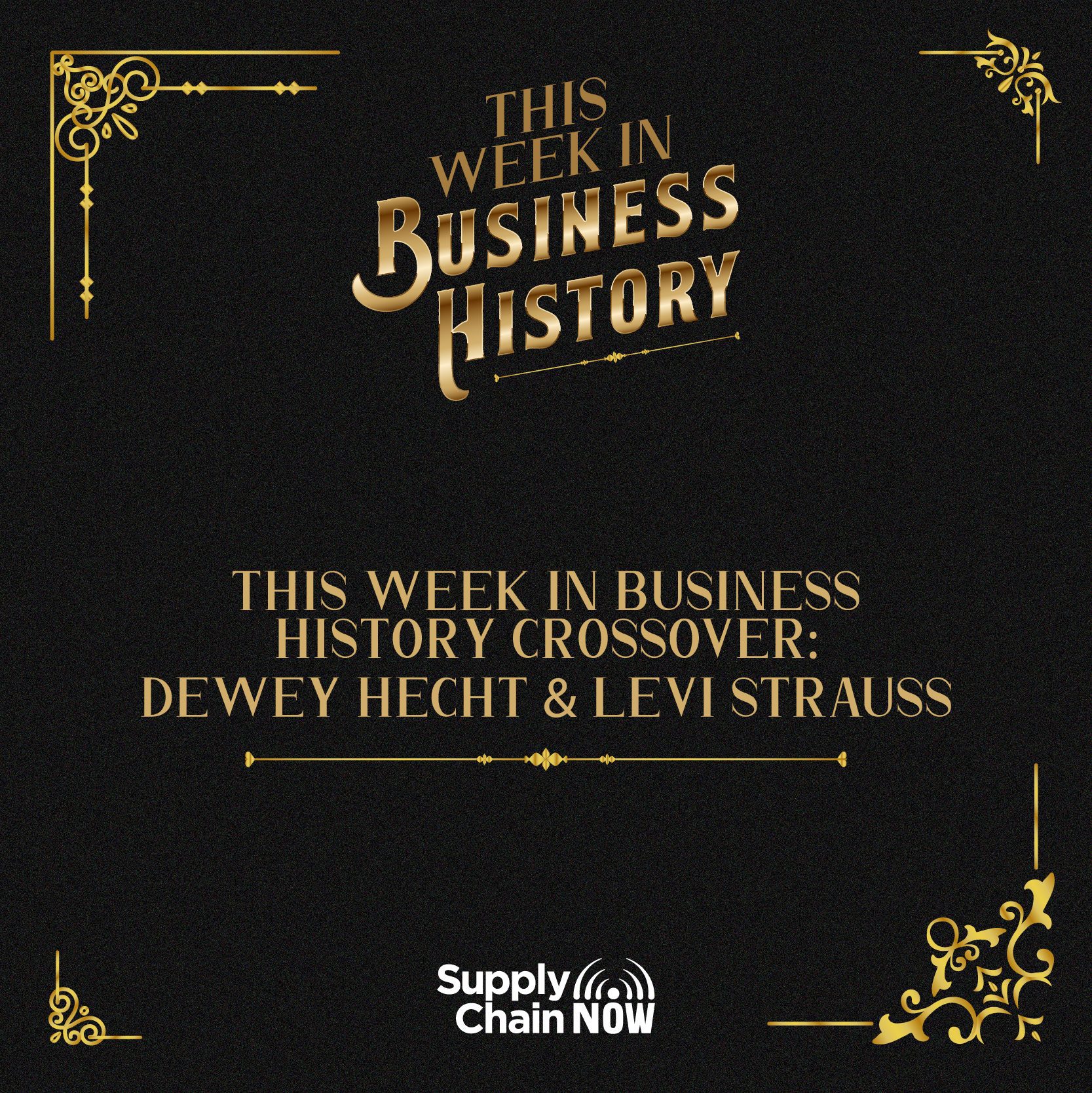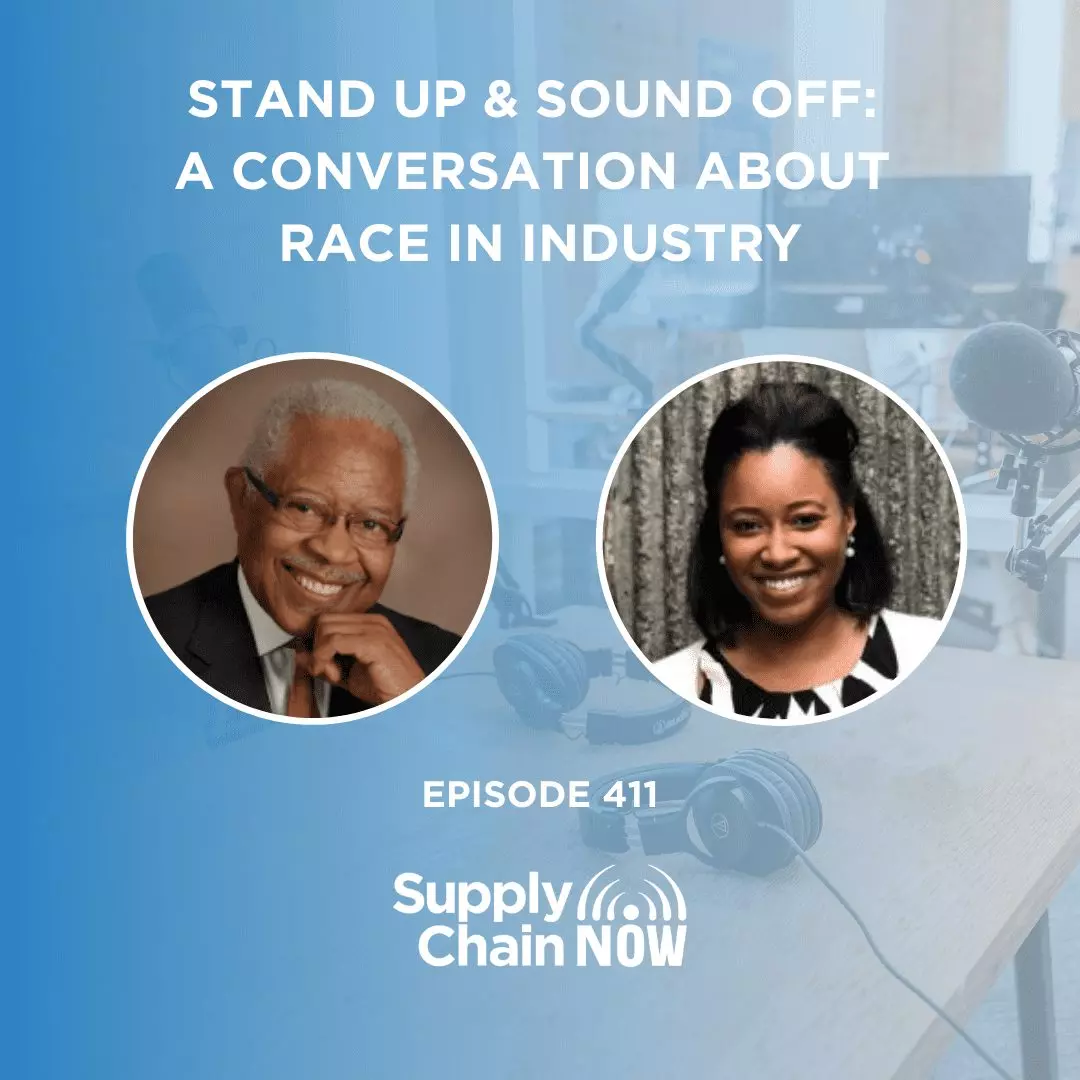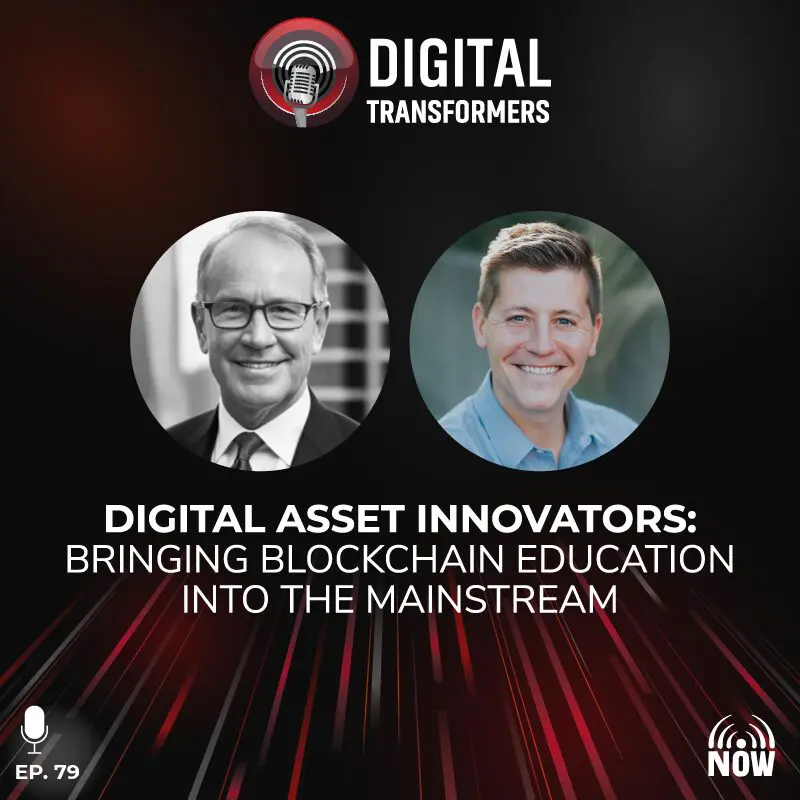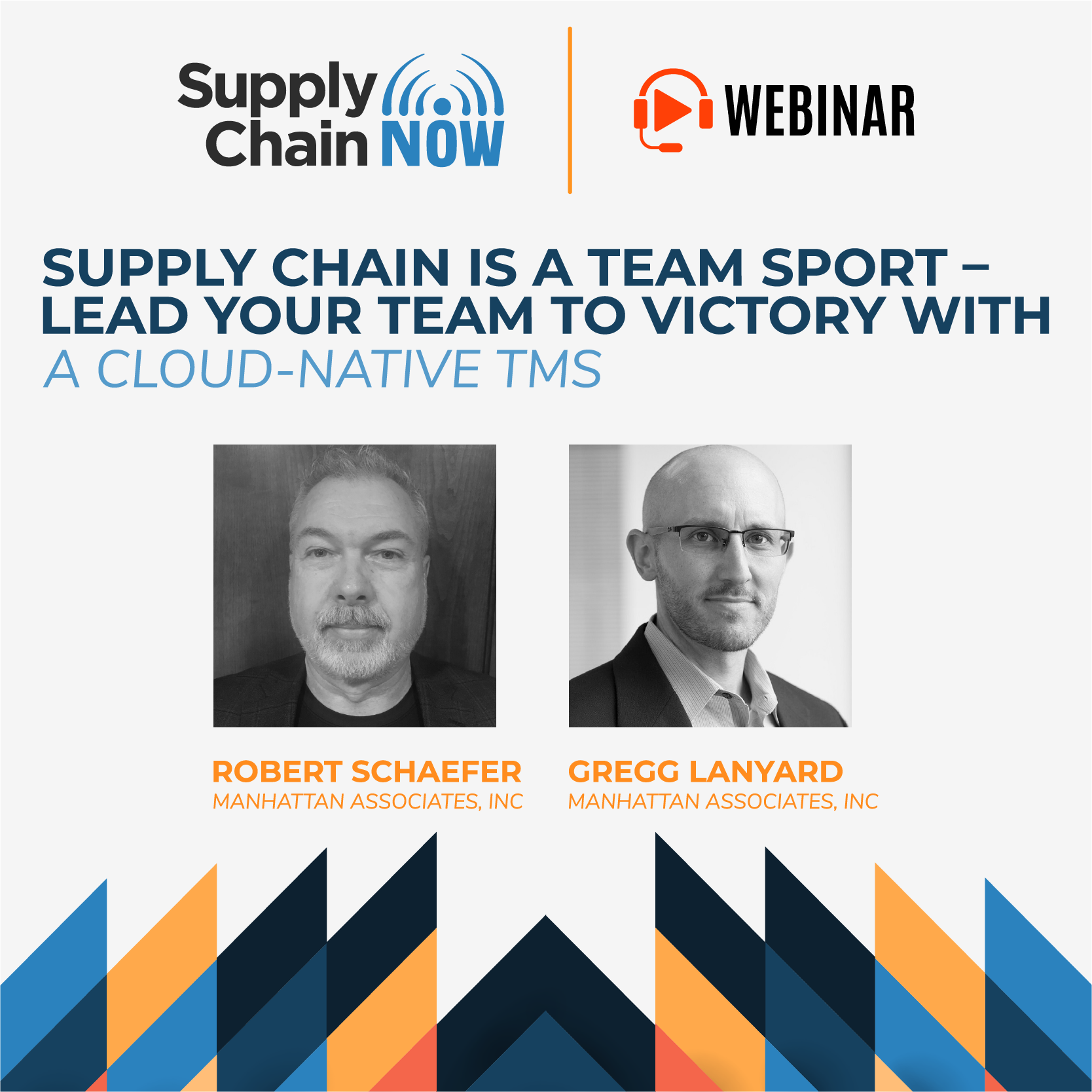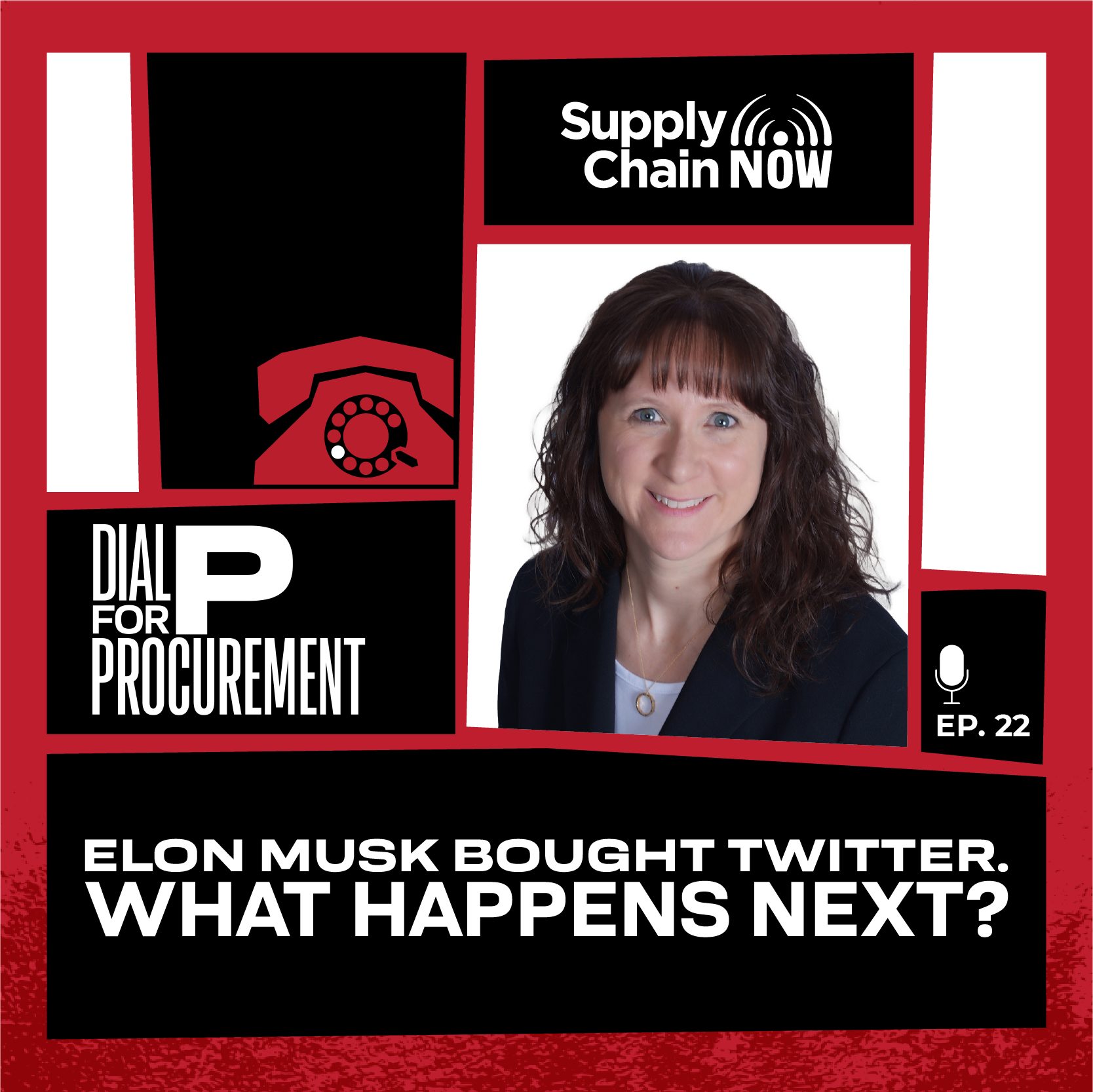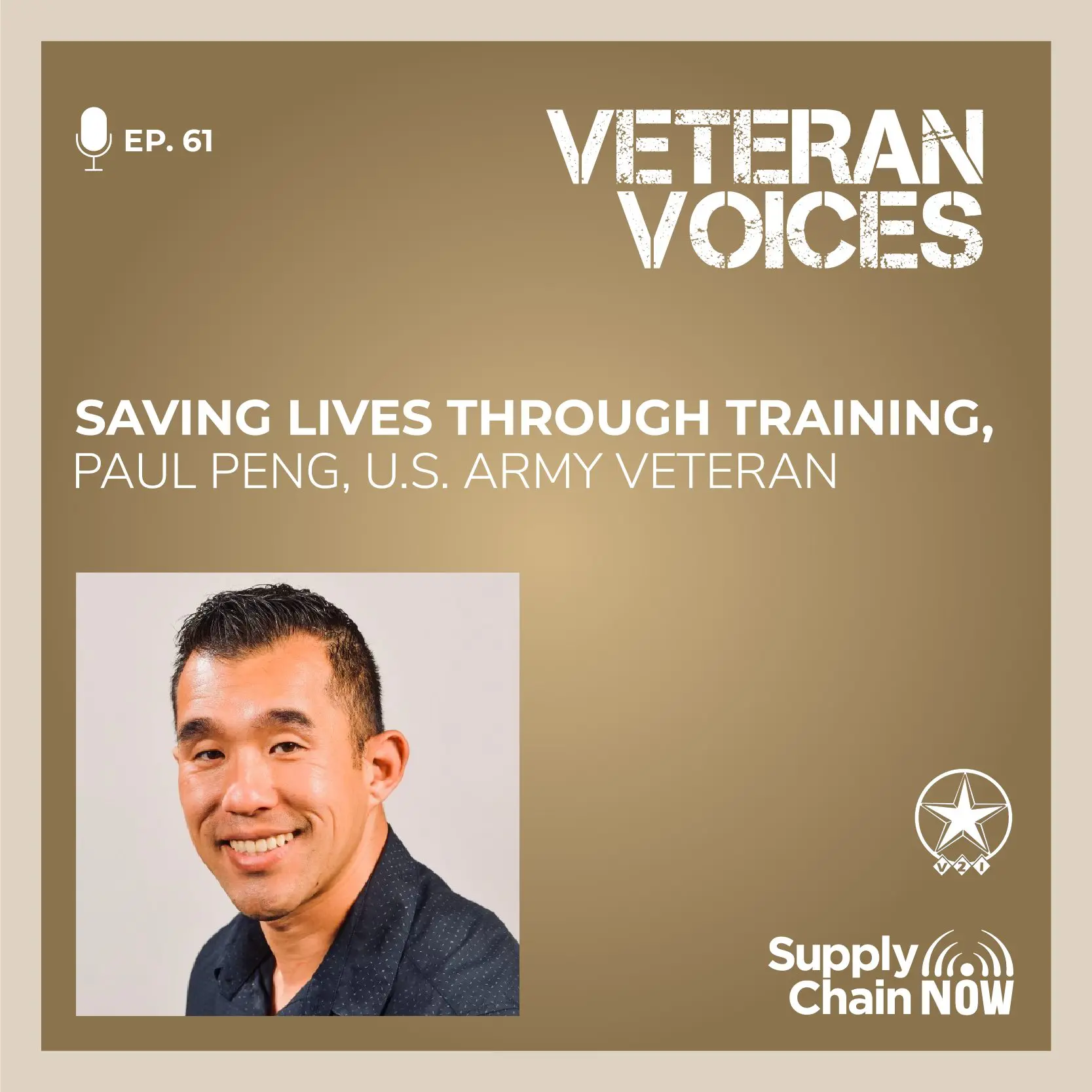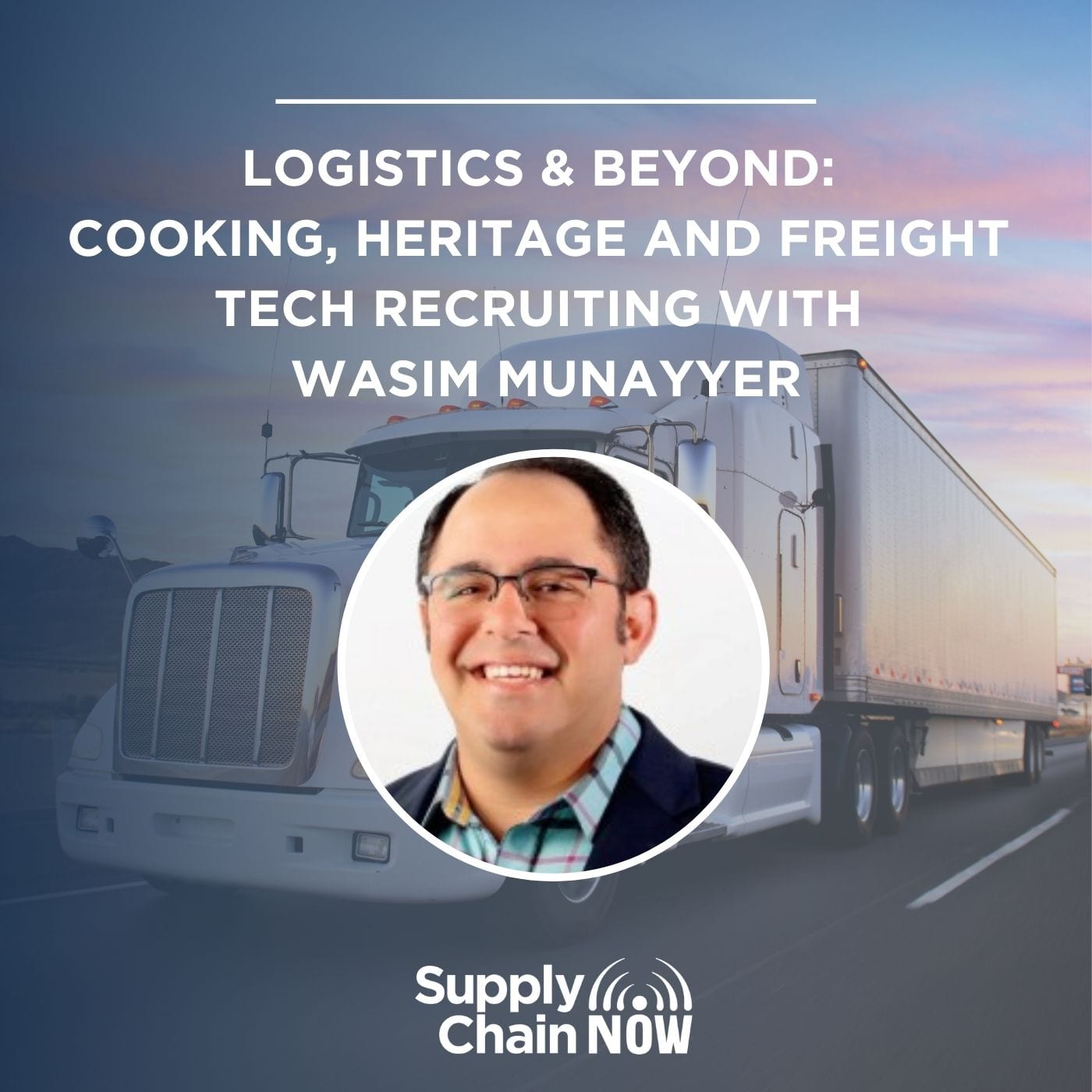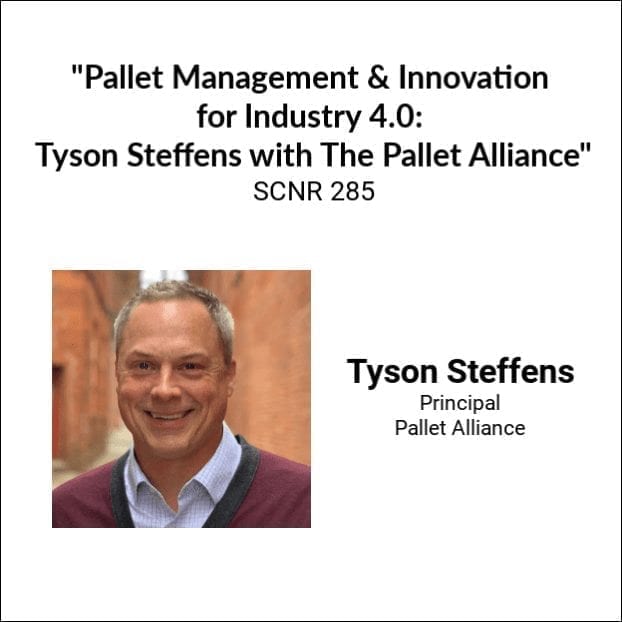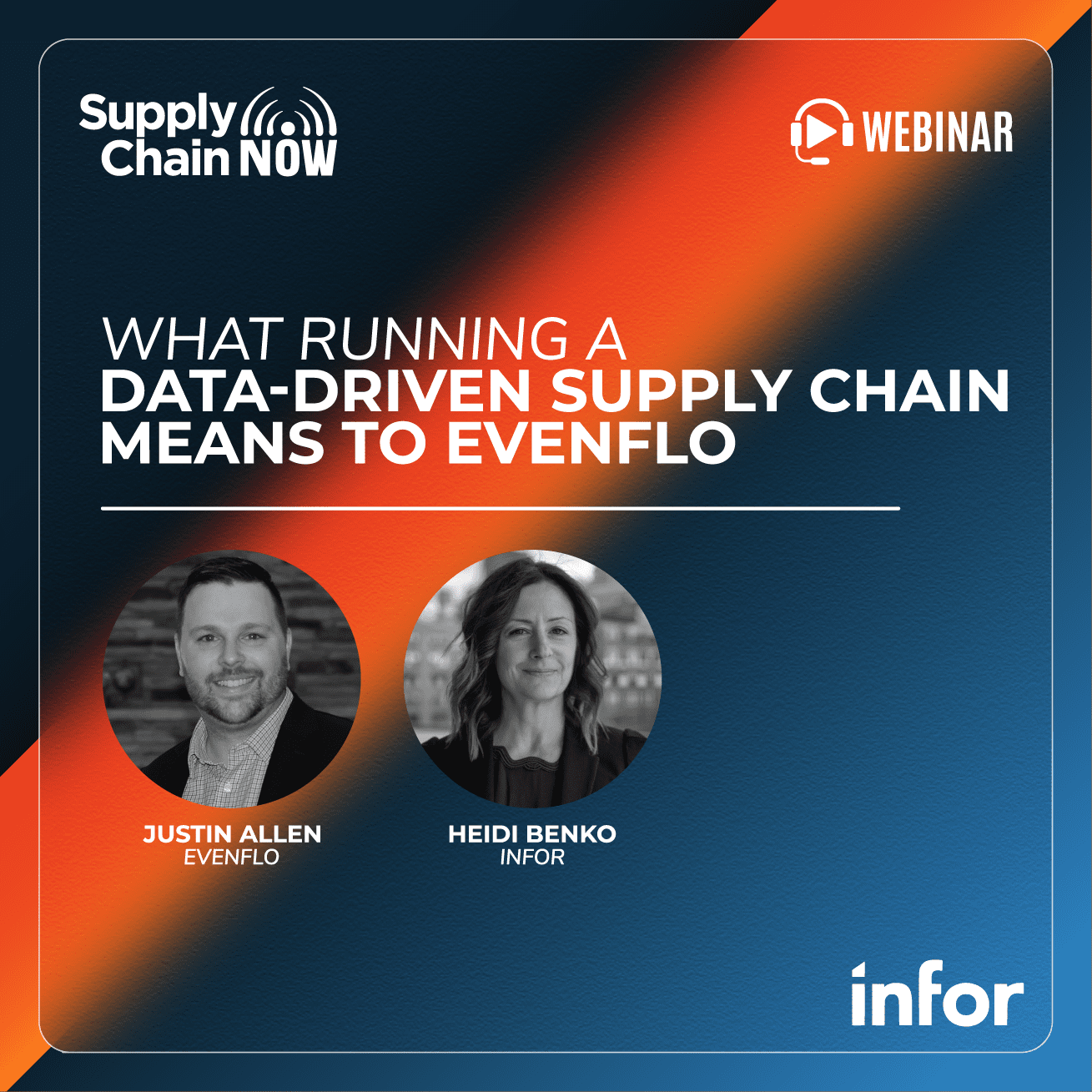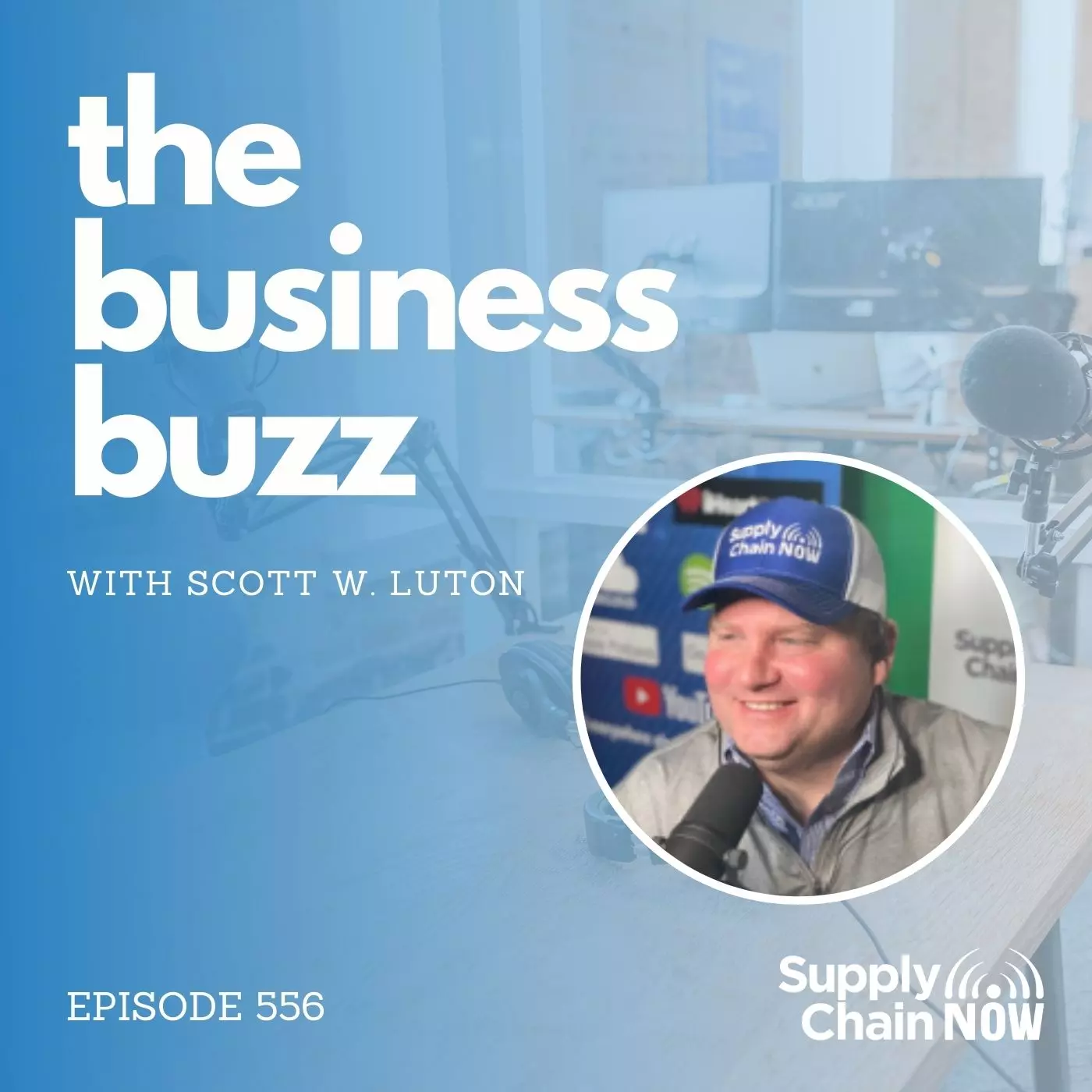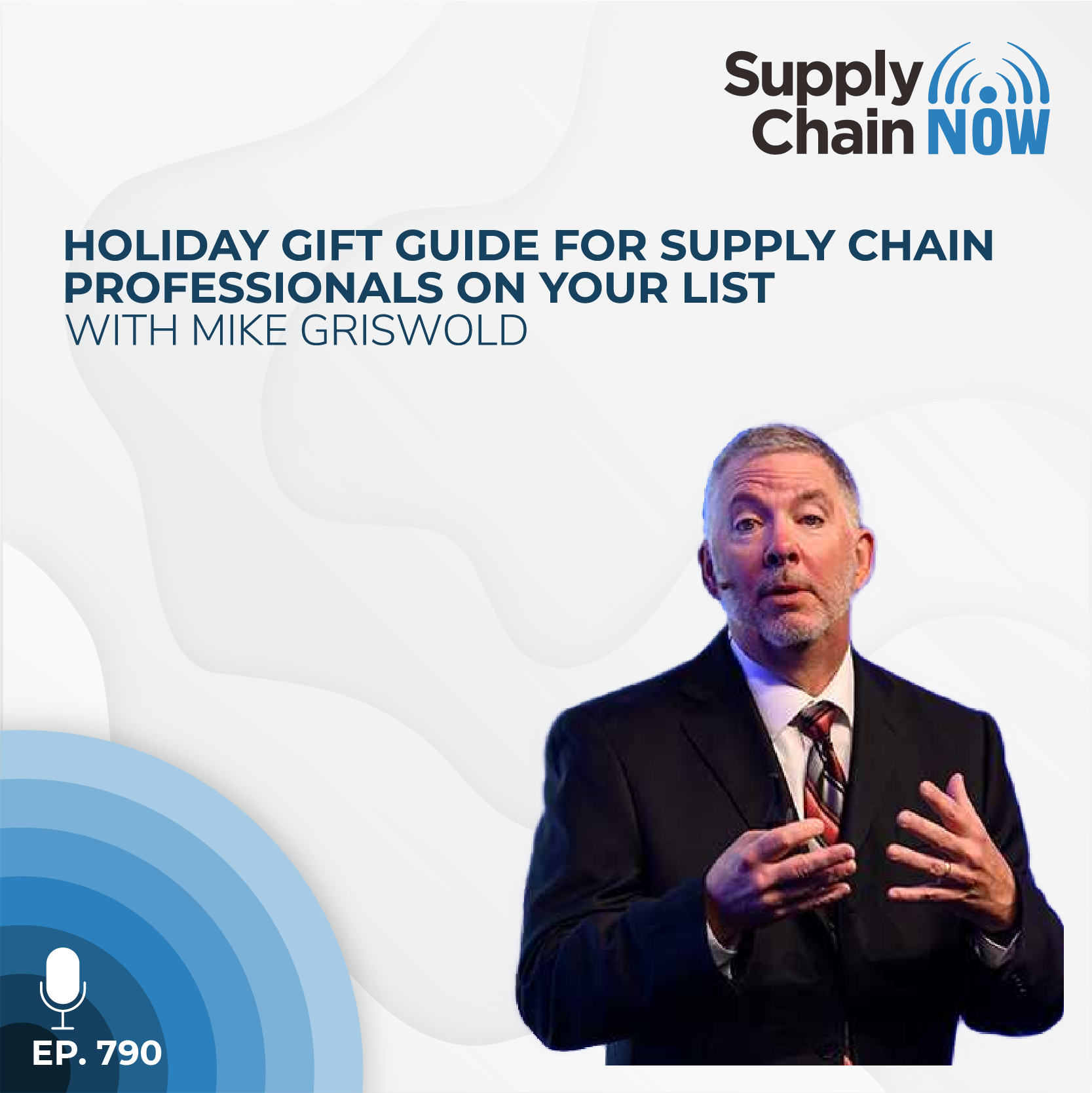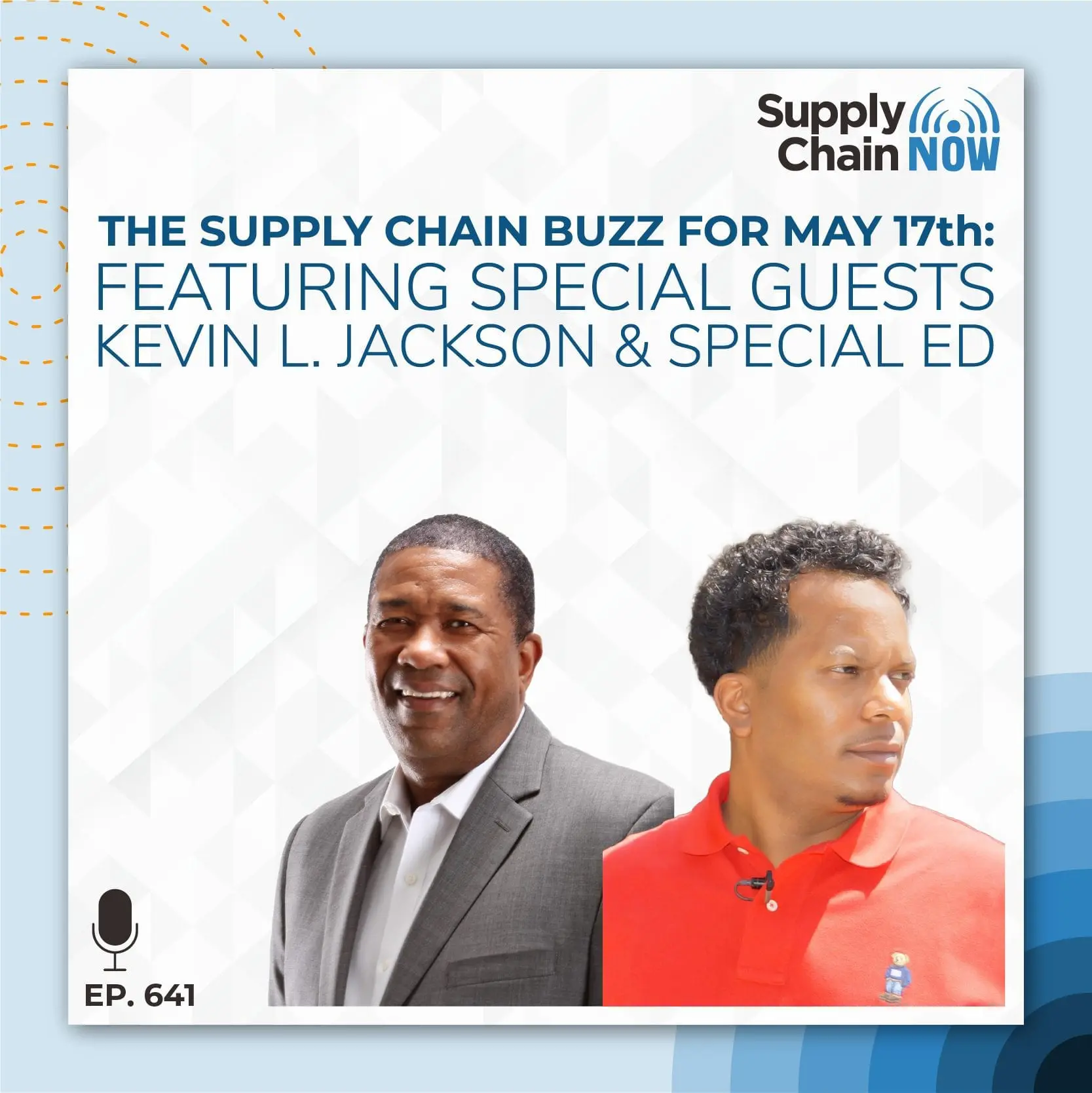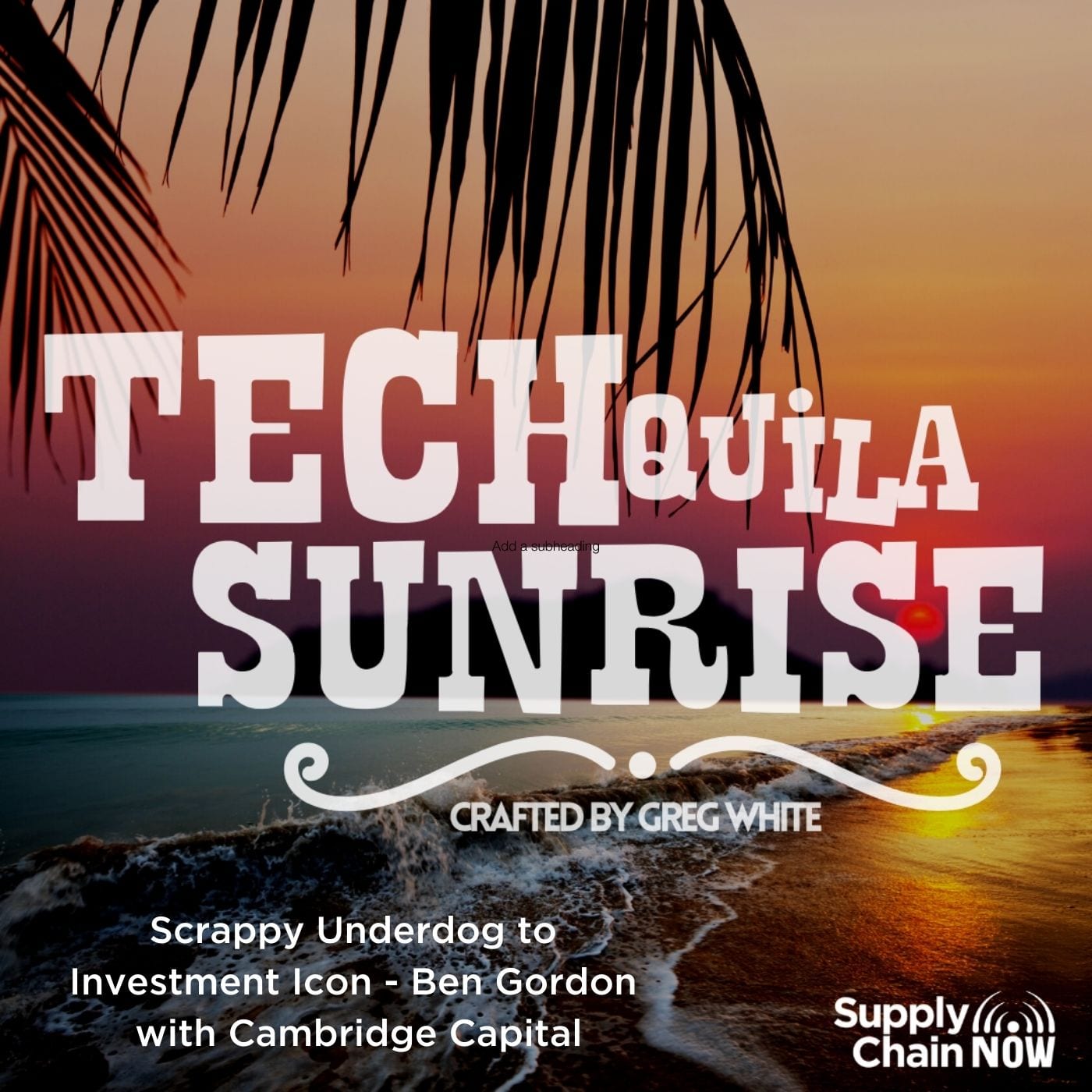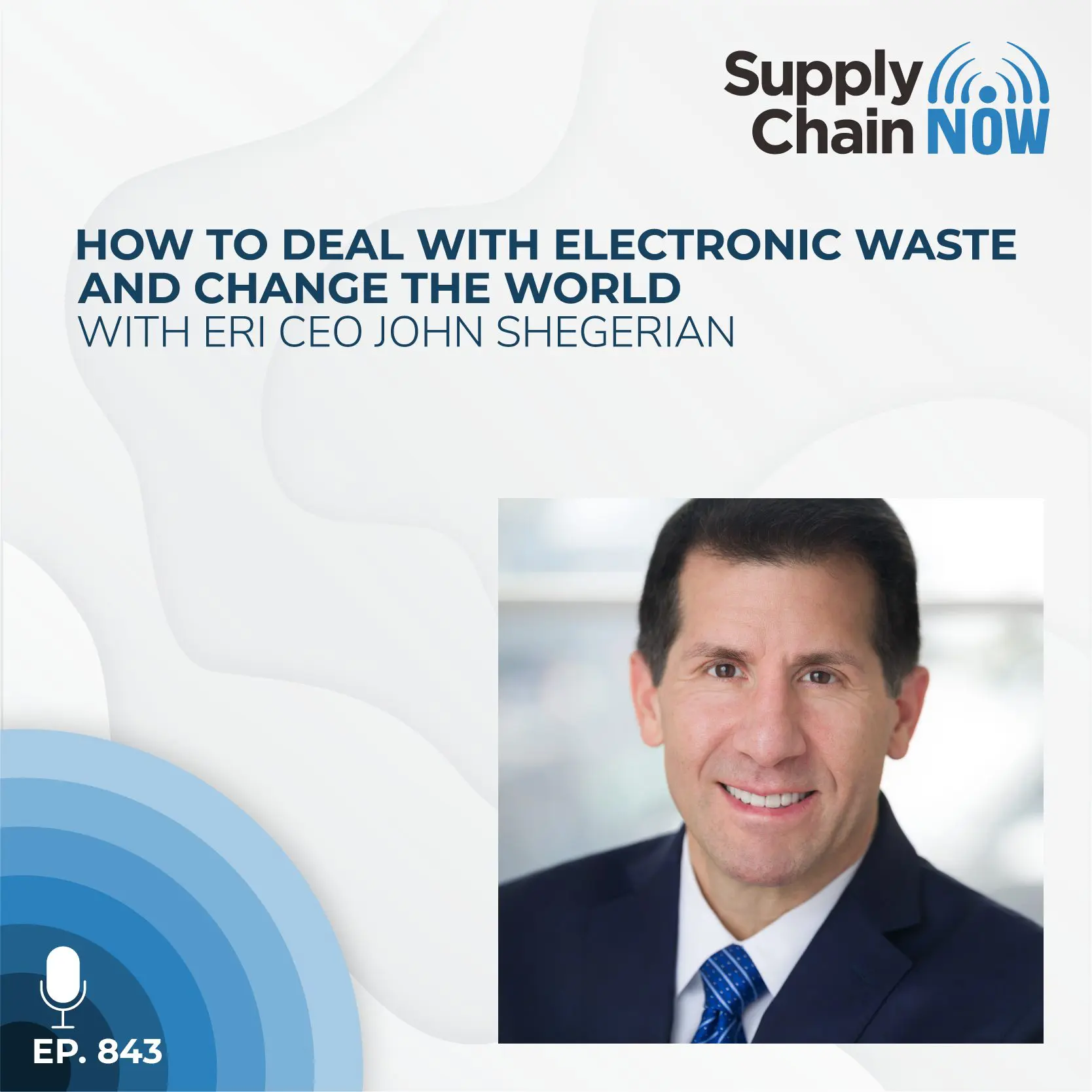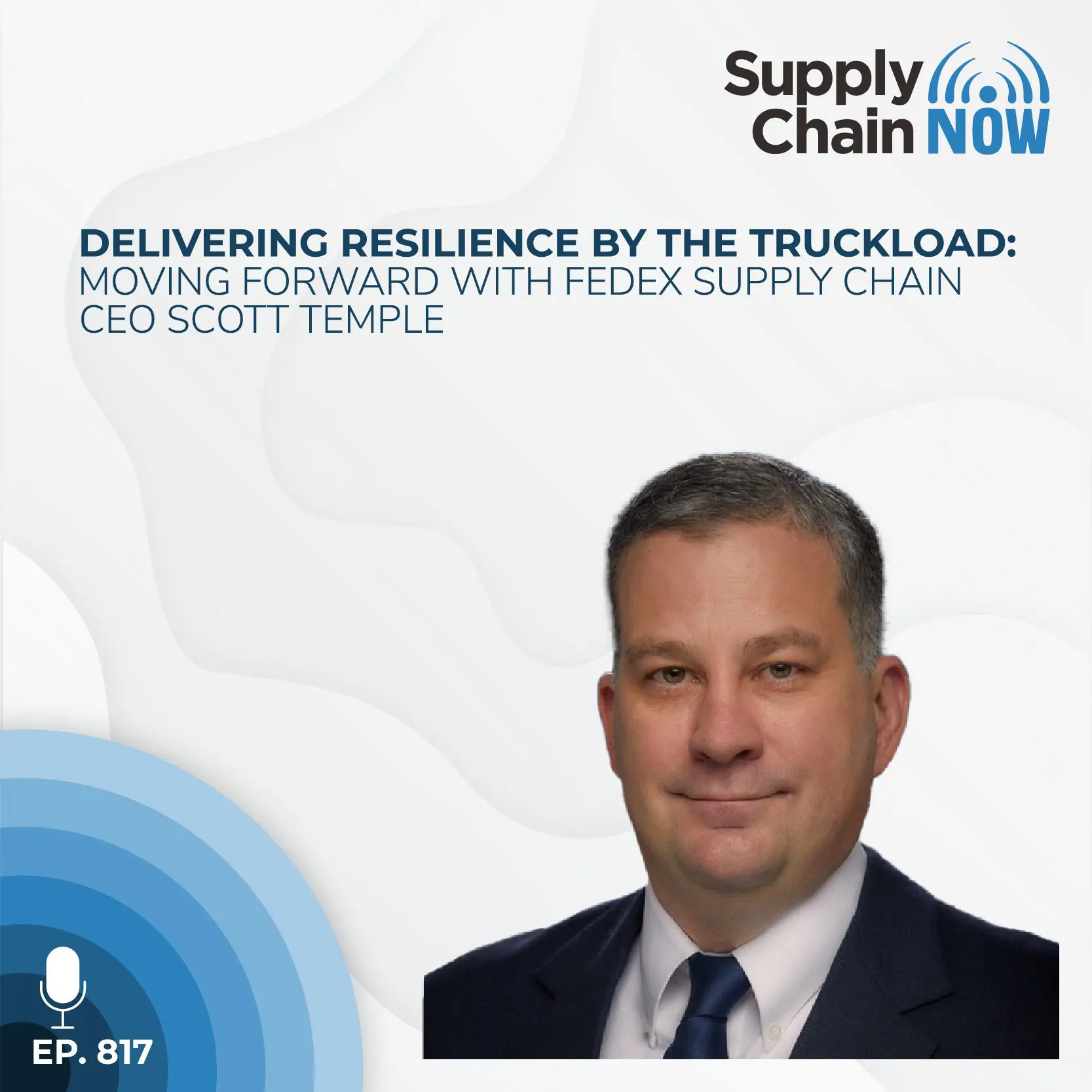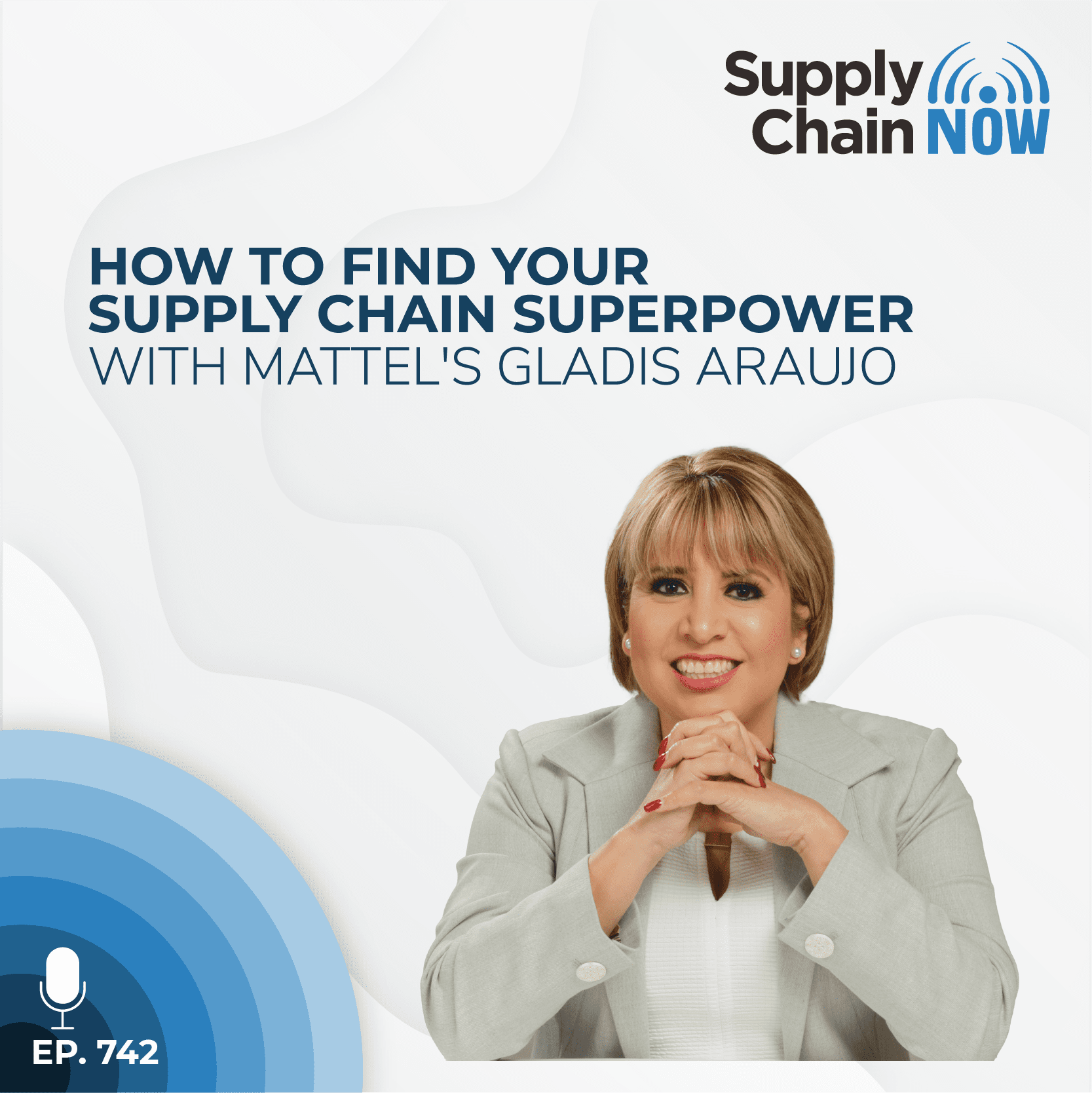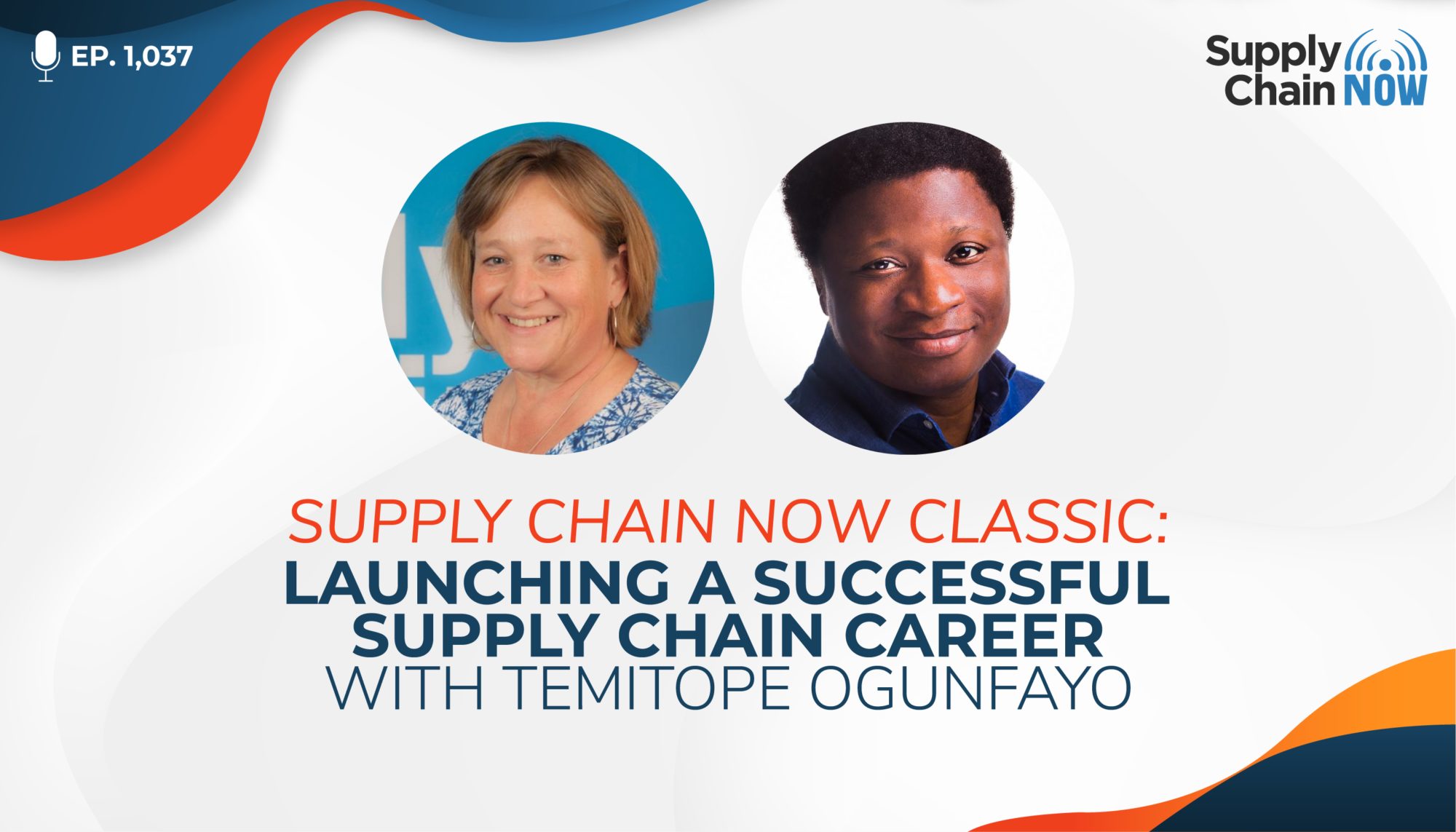
Today, supply chain is the first on the agenda. Are we even going to be able to supply, before we spend money on this commercial, before we spend money on this trade plan, are you even able to supply this? So that's also a positive thing that has come out. I am more recognized. I am more known. Now everyone knows my name because in the meeting, I'm the first to say, can you even achieve your plans or should you keep quiet and go home?
-Temitope Ogunfayo
Episode Summary
Tune in for this Supply Chain Now classic episode in our Leadership Across Africa series in conjunction with SAPICS. In this episode, you’ll hear from Procter & Gamble Senior Director of Supply Network Operations Temitope Ogunfayo. Join Scott and Jenny as they chat with Temitope about the value of education, what it takes to build a personal brand in supply chain, current logistics challenges, new supply chain opportunities across Africa and more.
Episode Transcript
Intro/Outro (00:03):
Welcome to supply chain. Now the voice of global supply chain supply chain now focuses on the best in the business for our worldwide audience, the people, the technologies, the best practices, and today’s critical issues. The challenges and opportunities Stay tuned to hear from those making global business happen right here on supply chain now.
Scott Luton (00:32):
Hey, good morning, everybody. Scott Luton and dear friend, Jenny fur here with you on supply chain. Now. Welcome to today’s show Jenny, how you doing
Jenny Froome (00:41):
Really good. Thanks Scott. It was great to be here.
Scott Luton (00:44):
Always a pleasure. It’s like a monthly treat it’s conversations. We’ve had going back a couple years. We’re continuing today, our supply chain leadership across Africa series in conjunction with Jenny and our friends at STIX. And these really have been well received, but you know what, Jenny, they’ve been a pleasure and a lot of fun to conduct with you.
Jenny Froome (01:03):
Absolutely. And have you noticed how they just keep coming up faster and faster? We finish one and a month later here we are. Again,
Scott Luton (01:11):
We got a slow time down, slow time down. Exactly, but Hey, for the handful of folks that may not know out there across our global listening world, Jenny free serves a COO at SAP pick, which is doing wonderful work from a professional development and networking standpoint. So check them out@sappick.org. So Jenny outstanding guest here today. Are we ready to introduce our guest?
Jenny Froome (01:35):
I’ve been, I’ve been ready for two years to do this one.
Scott Luton (01:39):
Okay. Well with no further ado, let’s officially welcome in Temitope senior director supply network operations at Proctor and gamble. Temitope how you doing?
Temitope Ogunfayo (01:50):
I’m doing super cool. So good to be here. And it’s, it’s lovely meeting you, Scott. Thanks again, Jenny, for this opportunity, I’m super excited and we’ve not even started yet.
Scott Luton (02:01):
We are too. And you know what? We we’ve uncovered some synergies and some Kindra spirits already in a brief amount of time. We’ve been with us in the pre show. And one of those TIMI is you and I are both big fans and maybe we would share our respective local fan clubs of Jenny fr. Huh?
Temitope Ogunfayo (02:17):
<laugh> That’s true. Yeah. That’s very true. That’s true. Yeah.
Scott Luton (02:23):
But you know that there is, uh, part of the be attitudes maybe that we didn’t capture and document way back in time is blessed are the connectors. And you know, Jenny, you do a ton of <laugh>. You do a ton of ton of work and good work across industry, but man, we need these connectors that make conversations like this one make ’em happen. So thank you. Uh, Jenny sincerely from our, uh, supply chain now team, but I digress. So Tim and Toby, uh, you know, this interview and our conversation has been long in the making. I’m really stoked to, uh, learn more about your expertise and perspective and point of view. But I wanna start with, uh, your childhood, right? We, we love kind of those origin stories. So tell us about your childhood. I think growing up in Nigeria.
Temitope Ogunfayo (03:03):
Yeah. Thanks again, Scott. I grew up in Nigeria and um, I must confess that I don’t have pleasant memories of my childhood. I it’s interesting to note. Right. So I grew up in the very poor part of Nigeria in, in the city center. So it was the Legos, the capital of, of Legos actually. So the, the biggest metropolitan city around. So I grew up there, but in a very small town in, in Legos, Nigeria and the memories of my childhood and great, I mean, I was from a very poor background, poor parents, actually, we were so poor that the poor used to call us poor <laugh>, you know? Wow. So man, so that was very interesting. Uh, they used to say, okay, those poor guys and we’re all poor together. So went to, to primary school there, secondary school there. And you know, I still remember vividly how the classrooms looked.
Temitope Ogunfayo (03:58):
I remember whenever it rained, it was a big problem. I can’t imagine my kids, you know, schooling under such circumstances today. It was just some blocks and then a roof over it and the roofs were leaking. So I mean, when it rains classes and for that day, right. But I still remember, you know, learning a lot and you know, aspiring for a great future. Um, unfortunately, you know, my dad was a work. Um, he wanted to get us, you know, the best life, but that comes with some disadvantage because he didn’t pay good attention to us. E zone was just about, you know, paying the bills and then let my mom take care of the rest. And as you can imagine, that doesn’t work pretty well. Right. So, so that also was not there. There were not a lot of people to look forward to.
Temitope Ogunfayo (04:48):
I think what kept me going was just a determination, a determination that, look, I don’t want my kids to end up in a place like this. I need to make something out of this. Right. And you know, back then in school, you were the local champion. I was the best in maths, the best in service subjects. But then I was a local champion and you know, I kind become some experiences where we then went out of town into the city for competitions. And then I’m like, wow, look at these guys, look at the way they speak English when they tell you where they’ve traveled to. And you’ve not even seen the airport. You’re like, wow. So there is life after year, right. But they’re in that school, in that locality, I was the local champion. I was the best kid in town. Right. But when you go out, you realize, you know, the world is bigger than that and all of that. So my, I wasn’t really pretty, right. I remember, you know, reading a lot with LAN, no lights, nothing to look forward to sometimes going hungry sometimes just, you know, being satisfied with one or two meals a day. And you know, you can imagine how grateful I am when I look back right now, where I am. So,
Scott Luton (05:57):
But let me ask you a question about that, Tim Metopia when you look back and that profound sense of gratitude based on you know, where you are now and what you’re able to do for your kids as you’ve referenced a couple times, is that a, a daily reflection for you as, as you, you know, think back on your childhood and where you are, is that, is that create a daily sense of gratitude and, and reflection?
Temitope Ogunfayo (06:18):
It sure does stop. I mean, every day I wake up and I’m grateful for what I am. Right? So it, it, it, it comes with gratitude at the same time. I’m also checking that, you know, the kids that I’m raising with these blessings are they as tough as I am, you know, they, they look so feeble, they can’t do much to themselves and I’m asking, Hmm, I pray for this, but am I sure that they’re turning out? Well, I mean, they have everything that they back and call. I had to struggle to get those things, you know? So that is a part of gratitude for sure, on a daily basis. But there’s the other part of me that keeps asking, won’t you mix this with a beat, you know, for these kids, so that they’re tough of a beat as well, uh, the way you were
Scott Luton (07:04):
And what I’m hearing there, Jenny is it comes with not only a great sense of, of gratitude, but more importantly, perhaps is a great sense of responsibility for doing and taking and leading and maybe helping others. Jenny, is that what you’re picking up?
Jenny Froome (07:19):
Uh, totally. I mean, it’s, it’s one of those situations where it’s so easy to take for granted what we have and, you know, I, I was brought up and education was, was, I didn’t have to work for it. I was given it. And I think that that’s something that continues to inspire and impress me the more, or the longer I live in, in Africa is, is just how it’s never, ever taken for granted. It’s not a right. It is a privilege. It should be a right. But it’s something that, that even people who, who work full time, they still make time to go to university in the evenings for classes or at weekends, or constantly trying to better their education, that, that just to improve their, their circumstances, I think. And it’s really something that you realize you, I have taken for granted. Mm.
Scott Luton (08:16):
As, oh, Chris Barnes says never stop learning, not for a single minute. Yep. Mm-hmm <affirmative> so as much as I I’d love to dive deeper into those early experiences of your journey, uh, you have now since then have lived, you know, beyond Nigeria, a lot of different countries, uh, Egypt, Switzerland, we were talking about coffee a minute ago. Uh, Dubai, which is one of the coolest places, most innovative places, maybe around, around the planet. And maybe some others I’m leaving off, but Nigeria’s home. But give us, you know, beyond coffee, say with Switzerland, what are some of your favorite highlights from some of these other places?
Temitope Ogunfayo (08:50):
Yeah. And I, it’s a privilege to live in different countries, right? So again, that’s another, I’m grateful for. And you know, when you live in different countries, you see different things, right? So if, if I take Switzerland, for example, beautiful city to leave, I mean, the transportation works superbly well that if you don’t own a car on your own, you you’re fine. Right? You’re so close to nature. I mean, I remember those evening walks in Switzerland. It’s a beautiful place, beautiful scenery, very natural. You breathe in fresh air. You feel, you know, nature is all around you, right? The mountains are there. One of the things I love about Geneva, the opportunity to travel to different part of Europe. I mean, on Tuesdays evening, you can decide that, guess what? This weekend I’m gonna be in Spain. <laugh> and voila. You’re in Spain next weekend, you can say, I want to be in Italy.
Temitope Ogunfayo (09:46):
And then you are in Italy. Whether you want to drive, you want to go back train. I made, I did several good trips with my kids. The experiences would never leave them. I also did some interesting stuff in Geneva, like skin, you know, coming from Africa, you know, your parents would ask you, I mean, what are you doing? Are, are you kidding me? You know, are, you know, it was, he was funny carrying all those gadgets of the mountain. And you know, in Africa, when, when you are successful, you also expect people to help you, right? Even you, you want to carry those stuff. You expect someone to carry to the mountain and you just get on those stuff. And you know, you, it was different. You need to carry it yourself, no matter how well you are. And for me was an over experience. I mean, carrying those dos, those shoes and walking as if you’re gonna fall, or just because you wanna run the experience. And guess what? I paid a lot of money to do that <laugh>
Scott Luton (10:43):
To, to work harder, paid a lot of money to work harder. That’s that’s vacation these days,
Temitope Ogunfayo (10:49):
Jeanine, a beautiful place. Uh, it cannot leave my memory. It’s such an awesome place to leave.
Scott Luton (10:54):
You know, I, I had the, the great pleasure of growing up with a Swiss family that moved to ache in South Carolina, where I grew up as when I was in elementary school, uh, Stephan throwing was his name. I’ve never been able to track, you know, track him since, but some of their, their customs and culture still sticks out that I was able to pick up just when I would visited his house and, and sometimes stick around for dinner and whatnot. So I’m gonna have to add Switzerland to my bucket list. But one last question for our, uh, toss it back over to Jenny is Dubai. So, you know, Jenny, of course you and I both know Kim winter, uh, great supply chain ambassador in Dubai. What’s your favorite part? Cause I believe you make, is that where you live now? Yes, yes. Yes. What’s one thing maybe if folks wouldn’t know about Dubai or, or one of your favorite things about living there,
Temitope Ogunfayo (11:40):
I think for me is the way they innovate. I mean, in this city, you can wake up tomorrow and something else has gone up. Right. And if I contrast it with, with Geneva, that that’s a big difference. I mean, I was telling someone jokingly when I was in Geneva. If, if I have a problem with my electricity and I call someone to come and fix it, don’t be surprised that the first day what, you know, the guy comes and tells you, what is the problem? Oh, there is a, there is a short circuit there. What is not gonna fix it that day. Right? It would give you another appointment of the day. You will come to fix it. Right? So things move a beach. They are slower development. Is there for sure in Dubai is the <inaudible>. I mean, you can sleep today, wake up.
Temitope Ogunfayo (12:26):
And there is eye rise tomorrow. Okay. I was part, I was privileged to be part of the export 20, 20, 20, 20. And I was there five, six times amazing stuff. All you see around is just innovation. You see people who are thinking, people who are progressing even the way their educational curriculum is designed is designed with a lot of innovation. I I’ll give you an example at the export 2020, there was a room called the youth pavilion. So you, you, you get youth there. And what they want them to do is to dream, just come into that group. You don’t come with your parents, just put on a, on a computer, what you want become in life, anything, and whatever you are feeding into that computer is determining their education curriculum for the next 20 years is determining what, uh, ministries and government Paratas. They need to put in place for the next 20 years. You can see such innovation. It’s not, I mean, these guys are thinking, so every day, every corner you turn to, you see an innovative behavior. And that’s what tick me about this city.
Scott Luton (13:33):
I, I love that. And, and not to pick on academia or education, but you know, it’s really, I think it’s easy. I think for academic professionals, as they look to bake process into making sure we’re equipping students with a great experience, you know, you, you set a great curriculum and, and then you go into the process, Hey man, you blink and that curriculum’s gotta change. And it’s, I bet it, I bet I’m not, they don’t let me teach, but I bet it is so challenging to, to constantly update what should be maybe living and breathing curriculum based on just how you know, based on those elements, you just shared Tim tope, how fast industry is changing lightning fast. And we’ve seen it for good or for worse even accelerate these last few years based on some of the, the challenges out there. So I know we’re gonna touch on some of that Jenny, uh, already in the first 10 minutes, man, the vibe and the perspective that Tim tope brings here to our listeners. I mean, it’s like addictive. So now I know what you’re talking about. So where are we going next with our, our dear friend here?
Jenny Froome (14:33):
Well, I was just gonna say, I wonder what they would’ve made about my ambition when I was at school, which was to be the fifth member of Abba. I don’t quite know how they would’ve, how they would’ve done that.
Temitope Ogunfayo (14:43):
<laugh> that would’ve been interesting, right?
Scott Luton (14:46):
I think, well, Tim and tope, I think Jenny should audition right here. I think, I think,
Jenny Froome (14:51):
Uh, how about a, I think it’s not, <laugh> moving swiftly along, moving swiftly along. So talking about being on the stage and all the rest of it, that was quite good. I thought that was quite a good segueway there. One of our very, and are, as in safe, community’s favorite speakers in the whole of the cosmos is Timian and whenever he’s on stage, be it virtual or, or in real life as I call it, um, without doubts, the feedback is positive. It’s inspirational. It’s, it’s amazing. Um, take me back to that very, very first one that you did when you actually won your very first best speaker award, you described it yourself as being life changing. Why was that?
Temitope Ogunfayo (15:40):
Thank you, Jenny, for asking, um, you are taking me back memory lane. I don’t know how many minutes we’ve got for this question because it can take me whole half an hour to explain what happened that day, but such an interesting time. You know, I just completed my certification and maybe that story for another day. Unfortunately, when I came into supply chain world, I didn’t see anything in Nigeria. Unfortunately, the universities were not offering supply chain. I checked all the colo. It wasn’t available. Believe you, Ms. Scott. The closest I saw was in South Africa, the closest to Nigeria, that’s six and half hours to seven hours flight. So I was traveling to South Africa every quarter to take my certification exam. Okay. With SEPs. And that’s why I can never forget SEPs. Uh, so I was always traveling every quarter, all expense paid by me, of course, P G didn’t bother whether I was certified or not.
Temitope Ogunfayo (16:32):
So I was paying all the expenses lot, all the exams, uh, with a colleague of mine who is in Canada right now. And then he just told me, look, uh, you know, te I’m, I’m going be speaking at SS. And I’m like, okay, how did you become a speaker at SS? And I’m not aware. And he said, look, I’m just going to be presenting this paper. You can do the same. So I checked and I said, okay, there is an opportunity to speak. Why not? Right. I’ve always enjoyed speaking. I love impacting knowledge again, Scott, one other thing we have in common. I think I’m going to end up as a lecturer someday. I hope they will allow me to teach, but I think I’m going to end up someday as a lecturer. So I said, okay, let’s give it a shot. And to be honest, it started as a joke.
Temitope Ogunfayo (17:13):
I’m like, okay, let’s put something together. I don’t even know if you’ll be shortlisted, especially because I wasn’t presenting something really technical. It wasn’t something that has anything to do with supply chain. Right? I was teaching, I was gonna be talking about work life balance. I thought I’ve seen enough supply chain professionals who are running up of steam. Okay. We were collapsing under the weight of work and I wanted to bring that perspective to a professional body. So, you know, for some reason I was picked and for some reason it was on the first day after the event, I was like, are you guys kidding me? No one knows me. Yeah. You put me on the third day when everyone is tired and maybe a few people will just attend and I’ll practice and all of that, it was immediately after the main event, but guess what?
Temitope Ogunfayo (18:01):
Scott and, and, and Jenny, I, I gave it my best as usual. And, you know, I did my thing. It was well received. You know, I, I, I was going out and people started, you know, stopping me. Wow. That was fantastic. And then, you know, there’s this after meeting, we do, after your session, the old place was filled. People started asking questions and I’m like, wow, this is working. This is interesting. Yeah. But even after that, I never imagined for once that that will be voted the best session in the, in the data, because I really attended some wonderful session. I mean, professor Lumumba was there that year. He was speaking, there were a couple of great speakers. So I was like, wow, this is good. So I came both as a speaker and as an attendee, you need to have that perspective. So I attended almost all the other sessions and to be honest, I had some wonderful stuff, wonderful delivery.
Temitope Ogunfayo (18:56):
And I’ve always told Jenny, I feel that, you know, SS conference is one of the best organized conference that I’ve ever been in my entire life. And I’ve been to several, I, I attend conferences three, four every year, right? So for me to keep saying after 10 years is still one of the best organized conference, I made it so fast forward to the, to the evening before the end. I, I, I, I don’t, I cannot remember what you call that evening. And, you know, there was this guy, wonderful guy who was sharing jokes and we were all laughing fun evening. I mean, I was lost in laughter until Clive. I think Clive was someone else came and say, Hey, to your, your neck to connect with pro as the best picker, it’ll be either of you. And I’m like, what’s this guy saying, uh, can he really be serious?
Temitope Ogunfayo (19:45):
And you know, before we could say Jack, then the announcement was made. And then I got best picker, not only that. So I got the best picker and I was about to leave the stage. And then the guy said, no, don’t leave. There is another award. You also got the award as the most innovative, uh, presentation of the year. So I got two awards in one and yay is the transformation that it costs. So as I was working at that stage, right, to go to the back and take photographs, I must have met at least not less than 10 people. Who’ve wanted me to speak in different conferences. Wow. And for me, that opened a lot of doors. I mean, even APS wanted me to speak. I’m like APS. Okay. You know, let’s, let’s do something. And then I got introduced to the bill and me, the gates foundation. I did a lot of work with them in Nigeria for a while. Actually. I, I see that you brought one of the people I work with on one of, as one of your guests, I cannot remember a name,
Scott Luton (20:43):
Deborah doll, a bit Deborah doll.
Temitope Ogunfayo (20:46):
Doll. Yeah. Yeah. Deborah do. And they in Nigeria as well, who kayak, I think who, who was editing ministry in Nigeria, work with them as well. So for me, that just opened up a lot of stuff, opened up lots of opportunities and the rest is history. I’ve leveraged those of opportunities from Dell,
Scott Luton (21:05):
Jenny. Wow.
Jenny Froome (21:06):
But you know, you know, what’s so special is that never once has, has he ever forgotten, you know, it’s so easy for people to find success and then just close the door on where, where the growth started and the special, lots of special things that the special thing with te Metopia is that it’s always, there’s always room to give back. There’s always room to say, thank you. And it really is just, it’s such an amazing privilege to be able to have watched this incredible person’s career and, and, and still be a part of it. So thank you for that.
Temitope Ogunfayo (21:45):
Thank you so much, Jenny. And I, I, I cannot forget. And this is why I say, you know, when civics comes calling, every other thing becomes secondary. You know, whenever I am, even the last conference I was in the us, I was joining at 2:00 AM or so 3:00 AM by time. And I, I feel great doing that because, you know, you never forget your sauce, right. That experience 10 years back, almost exactly 10 years back opened doors for me that I’ve never forgotten to. Now, I was just one of the supply chain guys in lake at that time. Now I’m leading regional supply chain, right. I’m leading regional supply chain for India. Middle Eastern Africa we’ll have talked. Wow.
Scott Luton (22:26):
So, wow. So
Jenny Froome (22:28):
I would’ve done <laugh> <laugh>
Scott Luton (22:32):
All right. Well, we’re gonna talk more about what you’re doing now, professionally and, and, and especially some of the challenges that, that, uh, you’re working through day in, day out, which is gonna be fascinating. But Jenny, before we go there, personal brand, which holy cow, if you, if you hadn’t gotten a sense of Tim toe’s personal brand already and how cool it is and how invigorating it is, but Jenny, we’re gonna ask him about it that a little bit. Right? Mm-hmm <affirmative>,
Jenny Froome (22:58):
He’s just one of the first people that actually ever made me realize it was a thing. And, and, and all the little intricacies that go into your own personal brand. And I think, yeah, you’re quite right. He lives breeds. He’s a, he’s an absolute example of it, but TEPY, you know, there are, there are a couple of things that I do remember one of which is that you have to concentrate. It’s always important on how you smell. You mustn’t ever take that for granted. And, and I just, that’s never left me. So that’s 10 years old, that memory, I think, but from, for you just quickly, what, what would be, and I know one, but what would be one really important piece of advice that you would give to someone who maybe is struggling with their personal brand or doesn’t realize it’s a thing? Why is it so important?
Temitope Ogunfayo (23:49):
I, it, it’s so important because you know, uh, what drove me to that first, and then I’ll give the piece of advice. I, I started studying in my company who were those moving and moving so fast. And they were not the supply chain guys, neither they, the manufacturing guys that’s by the fact that we pride ourselves in doing a lot, there were the commercial folks that we detest, we speak against were like, what are they moving? What is it doing? The sales guy? What is it doing? This guy is not even that smart, but guess what? Hey, they already VPs, uh, before you were even the regional ed. So I started studying what they were doing. And then I stumbled upon these secrets that I’ve taught. And, you know, I also teach this globally in P and G the pie principle. So I call it how to bake a pie.
Temitope Ogunfayo (24:37):
And that talks about your personal ground. How, how do you bake your pie and pie is stands for three things. So performance image and exposure. Mm. That you are some total of this three, your performance is crucial. It’s important, but can I, can I say this? It’s not as important as sometimes we think it’s not the most important. It just gives you a foot at the door. So it it’s important because it gives you a foot at the door. But you know, I, I have supply chain folks who brand their score card and say, everything is green. I need to be promoted. Yeah. Everything can be green. And no one is still thinking about you. So performance is one thing and is important. And I discovered strangely that in the pie, it takes only 20%. I was shocked. I’m like, performance should be like 90.
Temitope Ogunfayo (25:26):
And then other things, no performances, you 20, your image and exposure is more important’s image. That’s your that’s personal brand. That’s your equity. When your name comes up, what is the one word that sums you up? Lousy? You know, some, some people want, once, once you mention their name is lousy, then want some people when you mention their name is reliable, you know, that’s your image. It’s not what you want people to think is what people know about you. So when your name comes up, what is the image that, and that’s the one that you need to pay attention to. So the advice is you need to, what do you want people to see? That’s the first one. Then you need to ask, what are they seeing? And then now they plan to bridge the gap, right? Because a lot of times we see ourselves in one way, your con customers are seeing you another way.
Temitope Ogunfayo (26:22):
So you need to ask, I have this conversation with my boss on a regular basis, because I don’t want to deceive myself. So I ask him if you’re gonna describe me one word, what is it? And I, I see is this what I want to be noticed as known as if not, I need to make adjustments. And then the final one is exposure. Who knows you? Who knows your work. Sometimes, you know, you are in one cocoon doing wonderful stuff, but only your manager knows about your work. That’s not gonna get you far. Does ease manager know, does the VP knows? Does the president know how you make sure that what you are doing? The great work that you’re doing does not stop at the desk of your boss. It goes up to leadership. That’s exposure. Once, once upon a time, I, I met, you know, a colleague 10 years old than the company was already a senior director.
Temitope Ogunfayo (27:11):
And I’m like, of course other people will be beefing her and wondering, wow, who does she know? I was, I was surprised. And, you know, being the kind of student I am, I was asking what’s this. And she told me of, I experienced in a year one when a vice president visit the plan she presented and the vice president said, Hey, listen, I’m going to be responsible for you. I’m going to expose your work. Okay. And everything she does goes to this vice president. Everyone sees it whenever there’s a problem, the vice president picks a call. Are you willing to solve this problem? And she goes, so she goes, she goes in 10 years, she’s already leading a dream, right? Why? Because of exposure. So it’s performance, it’s image and it’s exposure. So my question always is how do you bake your pie? It’s your really, is your spy really smelling nice? Or is it smelling really bad? And people are going away
Scott Luton (28:05):
So much there. Jenny <laugh>, uh, I love the a, you know, we’re in supply chain. We love acronyms, right? Performance image exposure. And one of the things that, that I love there, uh, you shared so much goodness, uh, Jenna, that I loved is you gotta make sure your performance does not stop at the desk of your boss or your superior, your manager. That is so, you know, sometimes some folks I know I was maybe early in my career, you know, you kind of, you kind of get that command structure, right. Wanting to stay kind of within the boundaries and, and, you know, making sure you’re going up through the, the, the chain of command, so to speak, you know, not, and, and it’s lost on you that other folks need to be familiar with, to your point, you’re making Timma toe of what you’re doing and who you are and that personal brand and what you can do. Cause otherwise your opportunities can certainly be stunned and, and politically limited. But Jenny, that’s one of the things I loved Tim and Tubby shared there. What else did you hear that you really enjoyed?
Jenny Froome (29:05):
Well, it’s probably sweet apple pie, probably just, and it is that it, it goes back to that. I love that idea of one word. And, and obviously it’s gonna change on a daily basis. Sometimes I would think, you know, you are someone and you’ve been horrible to them, which of course I never am. And they, and, and they’ll say, you know, moody or something like that. But then in a week’s time, if you’ve done something brilliant, it could change. So it’s trying to find that consistency. I think that reliability, perhaps. So there’s lots of, there’s it never old, that’s just say it’s pie, there’s pie and listening to tatoe never gets old. There’s always something to learn.
Scott Luton (29:47):
And, uh, I mode when these ice cream on that pie, which I’m sure there’s an acronym there, Tim toe will cover that. Maybe the next appearance, but I wanna shift gears a bit. Uh, you alluded earlier in, in our chat here about how your, your role, uh, there at P has grown dramatically and it’s more regional. And I think you mentioned India, the middle east, uh, Africa. I mean, goodness gracious. I hope you get sleep at night, but, and we also alluded to, you know, everyone and their brother and sister know just how challenging global supply chain has always been. But, but really some of the, I don’t wanna use the word nuances because they’re much more significant than that, but these are new challenges, right? New challenges that we’re, we’re being press to solve. So speak to that a little bit. What, you know, from your day to day, uh, what are some of the challenges that, that, uh, you and your teams are, are faced with?
Temitope Ogunfayo (30:40):
Thank you, Scott, for that question, as you rightly said, I think supply chain itself been challenging over the years, but you know, with COVID it has even become more challenging. Right? I was telling, you know, folks the other day that I used to think that my work was more strategic. Right. You know, think long term, but I must confess that in the last couple of months, it’d be more operational because you need to survive first and foremost, are you on the shelf? <laugh> so that’s, that’s the first thing I will face multiple challenges. Let, let me talk about some of them logistic disruptions. I don’t know if you’ve seen, there is, there is a video now that is making the rounds on our congested supports in the USR. You, you probably not be able to recognize this is a port, right? But there is disruption everywhere.
Temitope Ogunfayo (31:34):
People are missing shadows, right? China. Right? Most of a lot of our materials come out of China with the instability in China today, you are not even sure of your deliveries. So there’s a lot of logistic disruptions I have worked with, uh, with who would even, you know, delay your consignment without even updating their website because they are themselves, are not aware that the consignment got delayed <laugh> so it, it, it’s amazing. The, the kind of challenges we’re facing with logistic disruptions. What about production delays? So this is an outcome of logistic disruptions, right? So the government materials are not getting to where they’re going. So production is not happening, right? That’s a lot to deal with. What about commodity pricing? That’s a major one today. I, I, I don’t know if you’re aware, I’m, I’m just renewing some contracts today. And just because the contract expired and a new one will start, sometimes I’m getting 300% of the old price, no negotiations, nothing asked.
Temitope Ogunfayo (32:40):
I mean, you are just moving from March to June and there is 300% upcharge. Wow. And the guy explains to you that you were lucky in the last one year because he couldn’t increase price. He was under contract. So he was already playing at the loss. Now he’s his opportunity to, to get back on winning waste. So it’s giving you 300% right. Material, you know, electricity, and the guys are passing down the cost actually. So we go into meetings with, with, with, with suppliers and they tell, Hey guys, what do you want us to do? Energy prices increasing. The four price is increasing. What do you want us to do? Okay. Another challenge you have seen is workforce and labor, especially in places like the us, where, you know, with COVID people are now satisfied being at home, right? So people to go back to work, it’s a big deal.
Temitope Ogunfayo (33:32):
It’s a big deal. So that, that’s a challenge. In my view, one of the biggest challenge that we have as we have actually seen, and we need to work on is end-to-end visibility because when all this is happening and you are not even aware of them, it becomes a bigger problem. If you are aware, you can plan, right. Maybe trigger some BCP business continuity plan and all of that. But the point is sometimes you’re not even aware, you don’t know what’s happening. Uh, these things are not updated or they’re updated in, in, in silos. So you don’t have an end to end visibility of your supply chain. And these, I would say has been the biggest challenge that I have seen with my team in the last couple of months. Yeah.
Scott Luton (34:19):
Not just where’s my stuff, you know, and, and as, as people have told me throughout my career, Hey, bring me your good news, but bring me your bad news too. So we can sit down and figure out a plan if it’s in our blind spot, nothing happens. And that’s the worst case scenario. Yeah. So there there’s been some really cool, uh, developments, uh, even through the pandemic tech from a technology standpoint that I’m, I’m, I think we’re all hoping, uh, has some more breakthrough, uh, visibility, uh, uh, moments, uh, to come. Yeah.
Temitope Ogunfayo (34:48):
Yeah. And, and I’m glad you mentioned that Scott, because that’s right, right. Maybe because of that, we’ve been forced to rethink end to end visibility. I’m also seeing some tools there. There’s an idea called the digital twin. I don’t know if you read about it, that’s really a brilliant idea that is coming well. You can simulate what happens in the supply chain on a computer, right? And then whatever happens, you change certain parameters and that’s, what’s going to happen in real life. So lots of stop happening. The other good thing I’ve seen happen is that supply chain discussions are suddenly taking the center stage. So in most of the board meetings that I attend before we discuss all the sales and commercial plans, and in the last five minutes, they give you an opportunity to add your views. Okay. So tell me, what do you think?
Temitope Ogunfayo (35:37):
And then you are rush to share your views today. Supply chain is the first on the agenda. Are we even going to be able to supply before we, we, we spend money on this, uh, on these commercials before we spend money on this trade plan, are you even able to supply us so that that’s also a positive that have come out, right. I am more recognized. I am more known. Now everyone knows my name because in the meeting, I’m the first to say, can you even achieve your plans or should you keep quiet and go home?
Scott Luton (36:07):
<laugh> I love, I love the question you used earlier. Are you on the shelf? Are you on the shelf? You know, so that is so, uh, that’s such a great way to put, especially these, these last couple years that we’ve all experienced together and, and the pressure is put on supply chain organizations. Okay. So Jenny, I’m gonna switch gears with TIMI in a second, but I wanna give you a chance to weigh in. I mean, man, he painted quite a picture, the challenges that, uh, not just supply chain, they, they take the brunt of it perhaps, but global business is facing what what’s some of your takes there.
Jenny Froome (36:40):
Yeah. Uh, absolutely. And, and it’s really interesting because one of the, one of there are two main themes circulating through just to go back to the conference that, that people have proposed topics on one is sustainability, supply chain sustainability. The other is visibility. So, you know, it’s clearly critical that, that we have this. The other thing that I think was so relevant to what you were saying about how we learn our mistakes, we learn from things going wrong. And I know people don’t want to talk about what went wrong, but isn’t it wonderful to be able to talk about how you put it right as well. And, you know, that’s, that’s where we need to have those discussions because why make the same mistakes other people have, why not learn from people’s mistakes, right. But it’s brave. It’s brave people who share them.
Scott Luton (37:33):
Excellent. Absolutely. And, and, uh, you know, while I love to see, you know, I was just, I was just writing about, about this of the day. I love to see the immense contributions and impact that, uh, some of the newest members of industry, you know, that, that, that don’t have the blinders on, of, of, you know, years past they’re making. I love it. I mean, it’s so important for global supply chain global business, but at the same time, as, as, as much as I value that I value the power experience cause of mistakes that we make as experienced, uh, business professionals. Not only can we help our teams and organizations avoid them, but we can help industry from making this some of the same mistakes again, too. So really we, we value from, from all levels of experience. And that’s a really powerful, uh, thought really quick before we, we go back Tim tope on, uh, kind of more of an Africa focused question. SAEX 20, 22, the conference that, that, um, uh, Tim was, was, uh, sharing about. And the one you’ve touched on a couple times here, Jenny, that’s coming up June 12th through the 15th, right. How can folks learn more? And what’s one thing you’re looking forward to Jenny?
Jenny Froome (38:40):
Well, I would like a little bit more time. Five weeks seems a bit scary. Um, first and foremost, the thing we are looking forward to the most has being back in person it’s, you know, the being able to do it online has been great. And we’ve been able to engage with you and with te topi and thank you again for your support, but being back in person, being able to have that face to face conversation is I think what everybody’s looking forward to, and, and there are just some outstanding, outstanding speakers and, and always, I’m always just overwhelmed by the support that’s given people are prepared to travel, um, and it’s just really gonna be great to get the community back together again.
Scott Luton (39:20):
Agreed, agreed. We’re gonna have a link to that in the show notes of today’s episode, thanks for all that you and your, your safe esteem does like, Hey, if you can sign up to hear people like Tim and tope, it is worth the price of mission and then some, so y’all check that out. Mm-hmm <affirmative> okay. So back to my cousin, Timpe here honing in <laugh> so let’s, let’s talk, you know, you know, we, we’ve kind of gone local and then gone broadly broader, whatever the word is. And now I wanna take about local to the continent of Africa, right? So what are some of the opportunities you see facing supply chain professionals here today, across the continent, Tim?
Temitope Ogunfayo (39:55):
Wow, thanks God for asking that question. I, I believe for me, if I look at the continent of Africa, you know what, we’re still a lot behind, right? If you take away South Africa, especially we were even much more behind. I think most of the advancement that we’re even seeing in supply chain would be, you know, in South Africa that about in the other parts of Africa, we’re still a lot behind. And, uh, today I, I will just look at two things. Uh, number one is infrastructure. Uh, one of the biggest challenge that I’ve seen is infrastructure, whether it is physical infrastructure, you know, uh, electronic infrastructure, whatever it is, is just not available in the continent. Right. And I know that in the last couple of years, there has been a lot of investments, but the output has not been commensurate with the investment. I mean, I was head of supply chain for proton gamble in Nigeria.
Temitope Ogunfayo (40:56):
And I can tell you a couple of times I’ve visited the ports. It it’s unbelievable. It’s unbelievable. I mean, from the seat ports to anywhere in Nigeria, there is no even rail system. There’s no rail transportation. You are coming to the port with trailers and trucks. No wonder all the goats leading to the port are in a state, the complete state. I mean, you’ve, you have goods there for two weeks, three weeks sitting, who does that? Okay. And that’s a micro of what happens elsewhere. Maybe I will take South Africa bid out. The infrastructures are not just there. Electricity is not there. A rail system is not working. Water. Transportation is almost missing. Everyone is using the road, right? So that’s a big challenge. However, I see a bigger challenge in skill and capabilities, skill and capabilities score. It’ll interest you to know, you speak to loads of people who say they are doing supply chain and they don’t even know the basics.
Temitope Ogunfayo (41:57):
They don’t know what the week plan is. The supply chain for them is purchasing, you know, just buying and selling. That’s purchasing negotiating contracts. That’s what purchasing, that’s what the supply chain is. But it’s bigger than that, right? You, you ask people about demand driven supply chain. They don’t have an idea and the reasons are not farfetched. I just told you now, I, I finished as a mechanical engineering graduate. So I, I started working with PNG as an engineer, right after four or five years of doing engineering. I thought, look, there should be something smarter to do. So I add something called supply chain, let’s go and try it. And then I said, okay, let’s see you who offers these capabilities? Non-existent there was no university at that time that was offering it anywhere. Not as a first degree, not as a second degree, you can imagine that I have to go to South Africa to get a certification.
Temitope Ogunfayo (42:48):
I know things are improving now. And, you know, with, with SEP help, Jenny and all the, all the community that we have, they are bringing loads of stuff into the country. And I thank them for that, but it’s not. So the skills, and then the capabilities are absent. They are not there. And that’s why, you know, I, I, I find myself fortunate even as, as the head of supply chain in Nigeria, when I got out of the country, you know, I had to learn and rele, right? I give you an example. In as end of supply chain, I was dealing with 30 SKUs. That’s it? Maximum 30 SKUs in the country. Okay. Right now, right now in India alone, I have 200 better scales.
Scott Luton (43:28):
Wow.
Temitope Ogunfayo (43:29):
That I have to think about every day in India alone. <laugh> but I was dealing with 30. So you can see that, you know, I, I’m glad that I work for a company like proton and gamble that will then invest in my capabilities to be able to the new world. But you can imagine in some places in Africa, they just take you and they throw you into the water, you learn sink or swim, and this is the issue. And that’s why I want to reiterate your call. Jenny, earlier on, if your supply chain professional listening to this, you need to develop capability. One strong way is join this body of knowledge, join SEPs, join supply chain. Now these are things that will expose you and develop your capability and skills. You cannot just be a local champion, right. Come and listen to what others are doing, and you’ll be better for it.
Scott Luton (44:16):
I love this notion. And you know, that kind of takes us back to where we started, you know, being, you can’t just be a local champion, right. You’re really stunting your growth, going back to the pie, you know, the PIM and, and, and your performance, trying to make sure it doesn’t stop at the desk of boss. You know, the good news, the good news in light of all those challenges and opportunities that you shared there at Timpe. You know, Jenny, we’ve had lots of different conversations with business leaders across Africa. You know, we’ve got a trade deal involving all the various countries that make up the continent has been signed as making continue makes a lot of progress as composed a ton of opportunities. We’ve had, we’ve got movements of onshoring manufacturing production onto the continent of Africa, which is a great thing. As we all know, manufacturing our big cogs of the economy, uh, economic development, right.
Scott Luton (45:04):
And, and the whole globe benefits from that. Uh, but to Tim toe’s point for any part of the world to, to fully leverage those types of, of, uh, trends, movements, whatever, gotta have infrastructure, and we’ve gotta have a workforce. Right. And that’s, you know, that’s been an interesting part of this, this world we’ve been living in, uh, the, these workforce dynamics that, uh, we won’t have time to get into here today, but, uh, but good news is lots of opportunity. The challenging news is we got a lot of heavy lifting to make sure we can fully capitalize on it. So, um, but Jenny, what, what else from what he shared there, that was more Africa centric? What we’re, uh, your thoughts there?
Jenny Froome (45:44):
Yeah. It goes back to the professionalization. It goes back to that the COVID silver lining, I guess that, you know, to Tim Toby’s point, he’s now the most popular person or unpopular person in the boardroom, but people know his name and people know, or start to understand the importance of what it is he does. And I think we’ve gone from that whole scenario where people only understand or care about supply chains when they go wrong. Mm. Now we’re actually getting to that point where we’re starting to be as a, as a, as a company, perhaps we’re starting to be more proactive to, to try to find ways so that they don’t go wrong and to do that collectively. Um, and, and, and it’s just that example of that education. And I think that, you know, conversations we’ve had with people in the public health sector, which is where so many supply chain professionals are having to do things intuitively because they’re not in a position to be able to get the supply chain education that they need. We’ve got to address this, and we’ve got to make sure that supply chain management is recognized as the profession it is, and that the education is, is available. And, and that’s, you know, that’s really what, what we do every day is to try to educate that education is so important.
Scott Luton (47:07):
I’m with you. And, and, and I would add to that list, the networking is available. The connectors are there, like you and I talked about on the front end is so important. And that there’s a healthy upstream of ideas that, that the ideas don’t all, you know, for so long, it feels, I mean, I think even prior to the pandemic global business was, was in, in my opinion, more slow to embrace new ideas, more slow to work with startups, you know, because there, there was, there was, there’s more risk perhaps, but now the industry is to the point where I think more and more we’re embracing, we’re looking for these new ideas. And, and that takes a deliberate leadership presence to make sure that I think that upstream, uh, is available and, and, and action is taken on these ideas. It’s not just in that cliche innovation where, well, let’s have a great two hour whiteboard session and all the ideas stay on the whiteboard. What does that do? <laugh> so, anyway, I digress, but Tim tope, you just, you just sparked so many ideas and, and, and really, uh, I love your approach. I love your passion that you, you exude passion and your perspective here, Dave. I think we got one more question before we make sure folks know how to connect with Tim tope. So, Jenny, what, what what’s, I think you’ve got the honor of our final question, right?
Jenny Froome (48:22):
I think I do, but I think there’s so many things that you’ve sort of addressed to answer this anyway, but I’m gonna put, put you on the spot and ask you for one thing. One thing that you have seen that has really changed since you first started out in your supply chain career, what’s one thing on the continent that, you know, and you have seen that has changed beyond your wildest dreams.
Temitope Ogunfayo (48:49):
Thank you, Jenny. I, I think I answered it in my last response, but let me, let me on the line. One thing is awareness, right? So vessels, you know, 12, 13 years ago, when I ventured into supply chain. When if you, if you tell anybody in Africa, you are in supply chain, they, what, what is that? You’re not a doctor. You’re not an engineer. What supply, what right now, you know, people are starting to understand though. I still feel the, the definition is very narrow, but people are starting to understand what supply chain is too, is the education is also, you know, improving. It’s not where it should be, but with, with help from people like you, I know the work you are doing in the country. And I know you visited a few times, you know, things are starting to improve, uh, not only with the education with the formal education, but also with the, with the connections.
Temitope Ogunfayo (49:42):
So I give you an example of my, of the connection that I had with bill and me, the gates foundation. Amazing. I was in KA the other day for a couple of days, you know, training and teaching government workers who, who, all the things I was teaching them was like magic. You know, I’m teaching them how to even have a vision, a supply chain vision, and it’s like magic. Right. But that has also improved. So with, with the collaboration right now, you know, people are seeing a bit more, so education has changed. Awareness has changed. The collaborative environment has changed, but I almost confess that we’re still way off for where should be despite the fact that there has been movement in the right direction. We’re still not where we should be completely. Yeah.
Scott Luton (50:28):
Well, and that’s a good thing, you know, that’s a good thing. I, I think if, if we can, uh, if, if we can take that mentality and get our industry, the supply chain industry to really embrace it, that there is no finish line, right. Even after the biggest accomplishments, there is no finish line. Cause there’s always more to, more, to improve more, to, more, to do more new developments to, to chase after and pursue. But Jenny, you were about to say something, sorry.
Jenny Froome (50:51):
Yeah, I was, I was just gonna say quickly because you know, you’ve alluded to, and I think that it, it, it needs to be said over and over and over again is that education is not just all about textbooks. You know, it’s not, it’s not about who knows the best fact or the it’s down to experience it. You learn from other people it’s about networking. It’s about, it’s about the, all of it. Yeah. And, and we need to get away. We need to teach our kids. That life is not just all about what qualification you have or what piece of paper you have. Um, it’s, it’s about so much more than that.
Scott Luton (51:27):
Amen. Completely agree. I completely agree. Hey, by the way, one of the things I really enjoyed the last episode we had with our friends from village reach, we’re doing some really cool things, especially in healthcare, a big shout out to them and our dear friend, uh, at a bio one and only so Timpe, let’s make sure folks know how to connect. And we’re just scratching the surface with what you could share here today. I, I love a good hour, but man, we need a couple more here. Uh, as we sit down with you, but how can folks connect with you and learn more?
Temitope Ogunfayo (51:58):
The best way to connect with me is on LinkedIn. So just look for me on LinkedIn, send an invite. I would accept, and we can get connected and learn from each other.
Scott Luton (52:08):
I love it. I love it. I tell you, LinkedIn has come a long way. Haven’t it? I, I, we got in the wrong business. Jenny, we should have, we should have invented a social media platform. <laugh> but it is powerful. Uh, I love the connections we’ve made here. I really love this conversation. We’ve had you share so much passion, but also really practical perspective that, that that’s actionable. So big. Thanks to you. Uh, Tim tope, a go IO, senior director, supply network operations at P and G. We hope to have you back again very soon.
Temitope Ogunfayo (52:39):
It’ll be my pleasure, Scott. Um, thank you. Thanks to Jenny for inviting me. I couldn’t think of a better way to spend my afternoon
Scott Luton (52:46):
Outstanding. Well, we’re gonna have you back. I’m you’re gonna be back by popular man. By that time, Jenny, we might have to go through his agent cause he he’s, uh, that’s me. Okay. He’s gonna be in Hollywood soon, but uh, nevertheless, uh, Jenny, as we wrap here, what’s one of your favorite things that tatoe shared here today.
Jenny Froome (53:06):
Well, first of all, I’m just taking my claim. I am the right. No negotiations for me. One of the things that sort of has hit home the most is is that 300% increase. It’s that, it’s that gap between when, what, when the first con contract was to what the contracts gonna be now and the reality that this is all gonna come downstream, it’s all gonna come down to us, the consumer. And uh, and you know, fortunately we’re lucky with people like Temi topi who are there at the, at the sharp end, but not, not every organization has got that. And, and so I think, yeah, it’s gonna be interesting times ahead.
Scott Luton (53:47):
Uh, completely agree, completely agree. And it it’s such a wonderful time. Challenging, sure. Gives headaches. Sure. But it’s such a wonderful time to be in global supply chain. And that rub elbow BOS with folks like both of y’all. So, Hey listeners, hopefully you enjoyed this conversation as much as Jenny and I have. Tim toe is a special individual. Be sure to check out, say pick 20, 22 is coming up. Uh, by the time we publish this, it’ll be probably sorry, Jenny, about four weeks away. So as <laugh> the 12th to the 15th of June stix.org, you’ll find a link also in the, uh, show notes, be sure to connect with Timma tope. Uh, GOFI on LinkedIn. You won’t regret it. Uh, it’s like it’s a musty, uh, musty connection, but whatever you do, Hey, be like Timma tope. Be like Jenny for do good. Give forward. Be the change that’s needed. And on that note, we see next time, right back here at supply chain now. Thanks everybody.
Intro/Outro (54:40):
Thanks for being a part of our supply chain. Now community check out all of our programming@supplychainnow.com and make sure you subscribe to supply chain. Now anywhere you listen to podcasts and follow us on Facebook, LinkedIn, Twitter, and Instagram. See you next time on supply chain now.
Featured Guests

Temitope Ogunfayo studied Mechanical Engineering at Obafemi Awolowo University in Nigeria and recently obtained his MBA from Warwick University in UK. Upon graduating, Temitope joined Procter and Gamble in Nigeria and has worked with the firm for the last 19 years, in what he describes as an interesting career. He currently leads the supply chain for the Babycare business of P&G in India, Middle East and Africa, having risen through the ranks across different disciplines and departments including Manufacturing, Supply Planning, Demand Planning, Initiatives Planning, Warehousing, Sales and Operations Planning, End to End Integrated planning, amongst others. Temitope also has international work experience in Middle East and Africa, having led the end-to-end Supply Chain for the Laundry business of P&G in that region for 3 years. He is a certified member of the Association of Production and Inventory Control Society, APICS. Excellent people management skills have been the hallmark of his career – always empowering people to DARE and to challenge what is possible. He also brings to the table strong analytical skills and proficiency in use of qualitative and quantitative problem-solving tools. Training and imparting knowledge are great passions both in and out of the workplace. Temitope is married to his beautiful friend, Olubukola, and together, they are privileged to care for and nurture 3 angels under their roof. Connect with Temitope on LinkedIn.
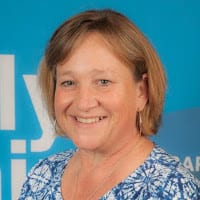
Jenny Froome is passionate about how supply chain management affects our lives on every level. Her original and now current profession is event management – the epitome of a well-honed supply chain. After many years working as COO of SAPICS – the professional body of supply chain management in South Africa she realized the importance of shining the light on the supply chains of Africa. Managing events such as the SAPICS annual conference, the People that Deliver Global Indaba, and the Africa Supply Chain Excellence Awards have truly allowed Jenny to combine her skills, knowledge, and community. Jenny’s lived all over the world and has settled in South Africa with her husband and many 4 legged friends while her sons are scattered around the world. Connect with Jenny on LinkedIn.
